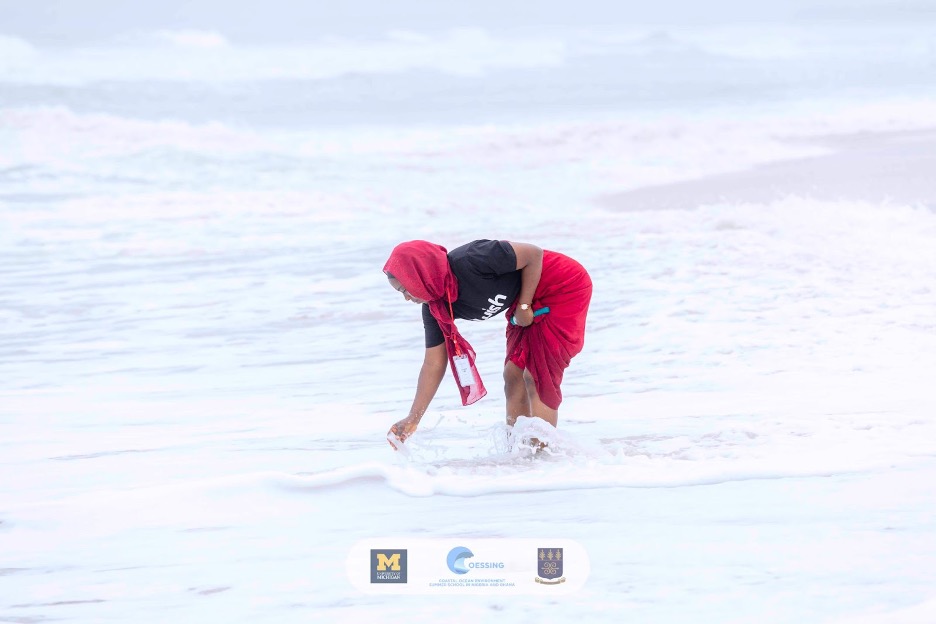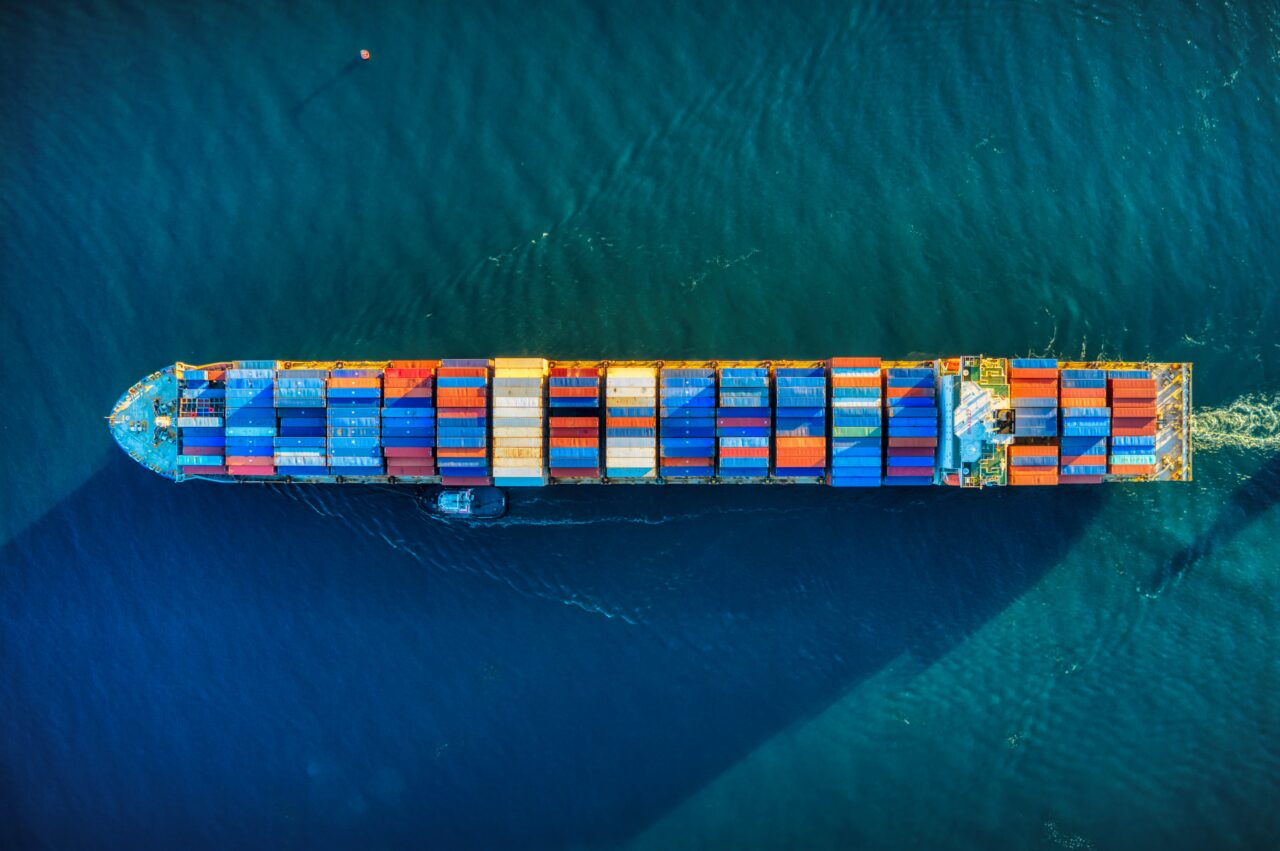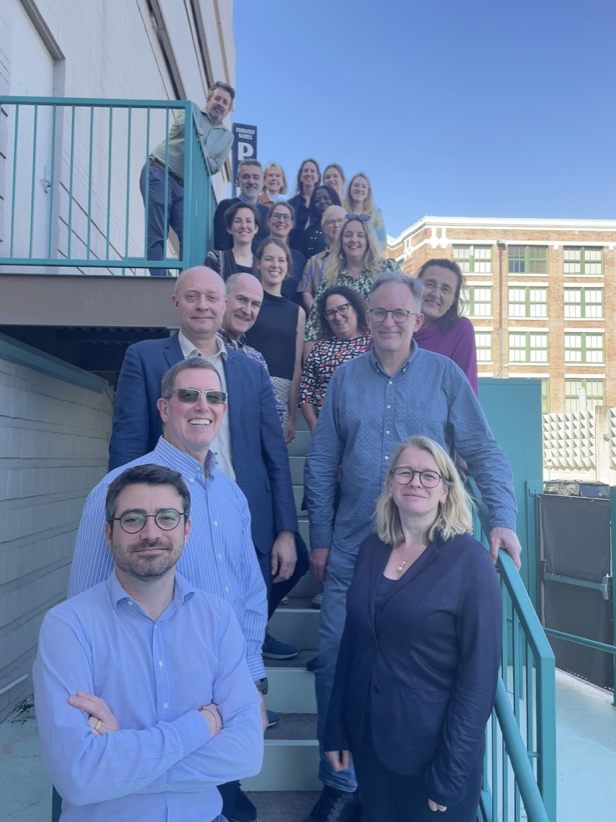Vision 2030
The Ocean Decade’s strategic ambition setting process on the road to 2030
What is the Vision 2030?
To strengthen momentum for ocean knowledge-based solutions, the Ocean Decade has launched a strategic ambition setting process to identify a common measure of success for each of the 10 Ocean Decade Challenges on the road to 2030.
It will take stock of current trends, gaps, and priority user needs and identify key targets and milestones to measure progress and enhance collective impact of the Decade.
The Vision 2030 process will provide the answer to the question: What does success look like for these Challenges at the end of the Decade?
How does it work?
To set up a comprehensive and visionary strategic ambition, the process will determine user needs, priority datasets, residual gaps in science, as well as scientific knowledge, resources or infrastructure, partnerships, capacity development, technology solutions and infrastructure required for each Challenge to ensure that it can be fulfilled by the end of the Ocean Decade in 2030.
Through concrete indicators and methodologies, the Vision 2030 process will contribute to the evaluation of the impact of the Ocean Decade, identify resource mobilization priorities, and ensure the ongoing relevance of the Challenges over time.
Discover the recordings of the two virtual sessions below.
Click here to access the presentation slides.
How is it structured?
The Vision 2030 process is coordinated by IOC/UNESCO in its role as coordinator of the Ocean Decade and led by 10 expert Working Groups, each dedicated to a specific Challenge.
These multistakeholder groups, including representatives from Decade Actions, government, intergovernmental organizations, private sector, Indigenous and local communities, early career ocean professionals, non-governmental organizations, academia, and philanthropic foundations, and representing diverse demographics, genders, and age groups,are led by two expert Co-Chairs.
Meet the Working Groups
Working Group 1: Understand and beat marine pollution
Co-Chairs:
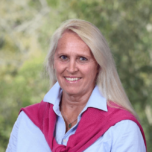
Rosemary Rayfuse
Rosemary Rayfuse is Emerita Scientia Professor of International Law at the Faculty of Law and Justice, UNSW Sydney (The University of New South Wales, Sydney, Australia). She is a Fellow of the Academy of the Social Sciences in Australia, a member of the Joint Group of Experts on the Scientific Aspects of Marine Environmental Protection (GESAMP), an Honorary Visiting Professor in the School of Business, Economics and Law, University of Gothenburg, Sweden, an Adjunct Professor at the University of Tasmania, a member of the International Law Association’s Committee on International Law and Sea level Rise and an Arbitrator under the Environmental Protocol to the Antarctic Treaty. A public international law generalist, she specialises in the Law of the Sea and protection of the marine environment, with particular focus on polar oceans, high seas fisheries, marine pollution, marine biodiversity in areas beyond national jurisdiction, and climate change and the oceans. She has more than 300 publications to her name and has provided advice to a number of governments, international organisations and international non-governmental organisations.
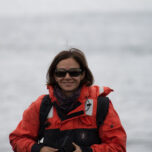
Vanessa Hatje
Vanessa Hatje is an oceanographer with a Ph.D. in Marine Sciences. Her research focuses on trace metals and carbon’s biogeochemical cycling and how natural and anthropogenic processes influence these elements. Her research group develops new analytical techniques to detect trace metals, including rare earth elements and organic contaminants in marine matrices. She and her students apply these novel and pre-existing methods to understand better the factors affecting trace contaminants cycling, transfers at continent-ocean interfaces, and interactions with biotic and abiotic components in coastal ecosystems. Her most recently funded projects include studying technology-critical elements (e.g., REE) in tropical marine environments, REE and Nd isotopes in Antarctica, and Blue C dynamics in mangroves and seagrasses. Between 2014 and 2020, she was a member of the scientific committee of the International GEOTRACES Program. Between 2019 and 2021, she was a member of the IAEA Standing Advisory Group on Nuclear Applications (SAGNA) and the Capacity Building Committee of the Scientific Committee on Oceanic Research (SCOR) between 2017-2022. She is a GESAMP Member and the chairman of the GESAMP working group WG45 – Climate Change and Greenhouse Gas Related Impacts on Contaminants in the Ocean. She serves as an associate editor for the journal Limnology & Oceanography.
Expert Members:
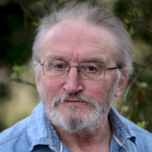
Peter Kershaw
Peter Kershaw is an independent marine environmental scientist based in the UK. From 1980 to 2014, he was based at the Centre for Environment, Fisheries and Aquaculture Science (Cefas) in Lowestoft, involved in a wide variety of national, European and international research projects and initiatives. These were concerned with many different aspects of marine environmental protection, from specific environmental processes, contaminants and activities to socio-ecological systems and the science-policy interface. Since 2014, he has operated as an independent consultant, largely within the international domain, with a main focus on plastics. He became involved in GESAMP in 2008, has been chair/co-chair of WG40 on ‘Sources, fate and effects of plastics in the marine environment since 2012, and is a former Chair of GESAMP (2013 – 2019). He has represented GESAMP in several Ocean Decade activities: i) Co-chair of Clean Ocean workshop at the Global Planning meeting in Copenhagen, May 2019; ii) Co-chair of WG1 Clean Ocean at the North Atlantic Regional Planning meeting in Halifax, January 2020; and, iii) speaker at the virtual Clean Ocean Laboratory in November 2021, leading the break-out session on ‘The quest for change – the need for knowledge sharing and capacity building’. Currently he is a co-convenor for a special session at the Annual Science Conference of PICES (October 2023, Seattle), as a contribution towards the Clean Ocean goal, on: ‘The emergence and ecological impact of emerging pollutants in the coastal marine environment’.
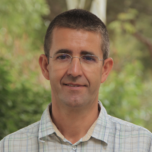
Paco Bustamante
Paco Bustamante is a Chair Professor at La Rochelle University, where he is also Deputy Director of the Doctoral School. His research focused on the bioaccumulation and transfer of pollutants in marine food webs with particular attention to the different upper compartments, cephalopods, fish, birds and marine mammals. In addition to marine ecotoxicology, he works on the trophic ecology of marine organisms using trophic tracers (stable isotopes, trace elements, lipids). He has published over 300 articles in peer-reviewed journals in these fields. From 2017 to 2022, he was a senior member of the IUF (Institut Universitaire de France), and since 2022, he serves a scientific expert for the OESG (Open-ended Scientific Group) on the Effectiveness Evaluation of the Minamata Convention on Mercury. principles.
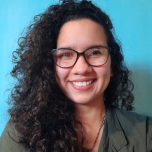
Lara Pinheiro
Lara Pinheiro is a Biologist with a MSc and a PhD degree Oceanography, which were mostly focussed on plastic pollution in the marine environment. Her research background goes all the way from assessing macro- and microplastics contamination in coastal systems (such as sandy beaches, salt marshes and mangroves), to understanding impacts of these pollutants to invertebrates, up until her current work on helping to develop safe alternatives to petroleum-based plastics using circular economy principles.
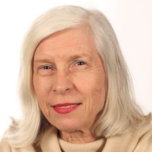
Heidelore “Heidi” Fiedler
Heidelore „Heidi“ Fiedler is a retired Professor of Chemistry of Örebro University in Örebro, Sweden (2015-2021). Prior to this assignment, she was working for 15 years with the Chemicals Branch of the United Nations Environment Programme (UNEP) in Geneva, Switzerland. She started her academic career at the University of Bayreuth at the Chair of Ecological Chemistry and Geochemistry and the Bavarian Institute for Waste Research in Augsburg, Germany. With a MSc in chemistry and a Ph.D. in natural sciences, her research focusses on environmental chemistry; from identification and quantification of sources of (persistent organic) environmental pollutants, to their fate in the environment and further transport to human exposure and effects in humans and the environment. Originally starting with polychlorinated dibenzodioxins and -furans, for the past years, she has led a global monitoring project on perfluorinated alkyl substances (PFAS) for UNEP in 42 countries. She is also a visiting professor at Tsinghua University (Beijing, China) and Jinan University (Jinan China), and has an honorary doctorate from Örebro University (2009). She has many years of experience in project management, publishing, conference organization (International Symposium on Halogenated Persistent Organic Pollutants, Dioxin20xx), and served on the boards of many national and international institutions.
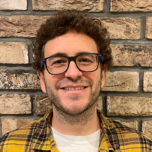
Maxi Castrillejo
Maxi Castrillejo is an oceanographer broadly interested in how the ocean takes, redistributes, and stores properties that are of critical importance for climate and the marine ecosystems. On the one hand, his research focuses on quantifying and understanding the origin and fate of marine radioactivity. For example, he was involved in quantifying radioactive releases from the damaged Fukushima Daiichi nuclear power plants into the Pacific Ocean and the discharges from European nuclear facilities into the Atlantic Ocean and the Mediterranean Sea. On the other hand, he uses natural and anthropogenic radioactivity to understand how ocean waters travel and mix across oceanic basins. Beyond that work, he also contributed to studies using radioactivity to quantify the strength of the marine biological pump and the atmospheric inputs into the ocean of essential micronutrients. In my everyday life, you may find Maxi in seagoing oceanographic expeditions, developing new methods in a chemistry laboratory or analyzing model output from ocean general circulation models.
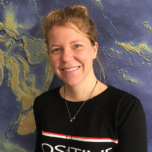
Rebecca Zitoun
Rebecca Zitoun is a Postdoctoral Researcher at GEOMAR Helmholtz Centre for Ocean Research Kiel working on trace metal biogeochemistry and the environmental impacts of deep-sea mining activities. Her background includes trace metal speciation, toxicology, ocean acidification, and paleoceanography. She is an active member of the Konsortium Deutsche Meeresforschung (KDM) and has worked as a consultant for the International Atomic Energy Agency (IAEA) on marine issues including marine plastics. In recent years, she has also focused on capacity building in Small Island Developing States, Ocean Literacy, Science Policy interfacing, and the engagement of Early Career Ocean Professionals (ECOPs) in the UN Decade. She is a former Young Ambassador of the European Marine Board, the chair of the SCOR Committee for Capacity Development, the co-chair elect of the Ocean Best Practice System (OBPS), the co-lead the Ocean Literacy Task Team of the UN Decade ECOP Program, and an invited expert of the GESAMP Working Group 45 “Climate Change and Greenhouse Gas Related Impacts on Contaminants in the Ocean”. She holds a PhD and a Postgrad Diploma from the University of Otago (New Zealand), a MSc from the University of Oldenburg (Germany), and a BSc from the University of Frankfurt (Germany).
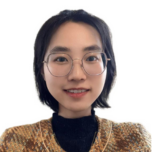
Chunhua Jiang
She focuses on the transport of microplastics in estuaries and plastic sampling methodologies on river banks and beaches for citizen science. She is voluntarily working as the current ECOP (Early Career Ocean Professionals) China Coordinator to assist in empowering ECOPs, participating in ocean literacy for Aisa, a member of the Regional Training and Research Center on Plastic Marine Debris and Microplastics, IOC/UNESCO, and a member of the Institute of Plastic Recycling and Innovation.
She has 8 years of studying experience in the marine field, gained an academic master’s degree from the State Key Laboratory of Estuarine and Coastal Research and Plastic Marine Debris Research Center at East China Normal University. Gain a bachelor’s degree in marine fishery science and technology at Ocean University of China. She will start an internship at CJN – Joint FAO/IAEA Centre of Nuclear Techniques in Food and Agriculture – Soil Water Management and Crop Nutrition Laboratory (SWMCNL) to research the microplastics in agricultural soils.
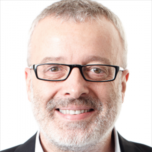
Charles Goddard
Charles Goddard is Executive Director of Back to Blue, an initiative of Economic Impact and The Nippon Foundation. Charles imagines and builds Economist Impact’s flagship initiatives, the purpose of which is to catalyse progress on key issues of the day. He works closely with partners on themes ranging from ageing and longevity to ocean health, focusing particularly on healthcare, the Anthropocene and the blue economy. Based in Hong Kong, Charles was previously editorial director, Asia, at the Economist Intelligence Unit, director of research in Asia, and managing director of the Economist Corporate Network, a peer network for senior executives. He is concurrently executive director of the World Ocean Initiative.
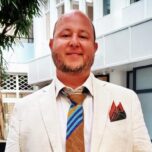
Andrei Polejack
Andrei Polejack is a senior ocean advisor for the Brazilian Ministry of Science, Technology and Innovation, with a Ph.D. in Maritime Affairs from the World Maritime University and a bachelor and Masters in Ecology from Universidade de Brasilia. Deeply involved in the science-policy interface, his duties include coordinating national ocean and polar research programs, providing technical advice to governance, formulating and implementing public policies, managing budget and negotiating international agreements, among many others. As a transdisciplinary researcher, Andrei is interested in Ocean Science Diplomacy as a field of study, seeking to understand the complex interaction of ocean scientists and diplomats, along with the political sphere of power dynamics and interests in the marine realm. Theoretically passionate about post‐ and de‐colonial reasoning applied to international relations and its many ways of linking with ocean science. A Latino soul, proud father of three of the best humans, and a lover of dogs, cats, sea puffins, beer, and fikas.
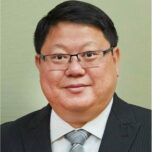
Kenneth Leung
Kenneth Leung is a Chair Professor at the Department of Chemistry in City University of Hong Kong where he also serves as the Director of the State Key Laboratory of Marine Pollution and Associate Dean (Research & Postgraduate Education) in the College of Science. His research interests include marine pollution, ecotoxicology, marine ecology, biodiversity conservation, and ecological restoration using eco-engineering. He has published over 280 peer-reviewed journal articles in these areas, with an H-index of 57 and over 10,500 citations. In June 2021, his proposal to launch the Global Estuaries Monitoring (GEM) Programme was endorsed by the United Nations as an Ocean Decade Action for the UN Decade of Ocean Science for Sustainable Development (2021-2030). Prof. Leung has received numerous awards and recognitions for his contributions to aquatic ecology and environmental toxicology in the Asia-Pacific region. He was conferred as a Fellow of the Society of Environmental Toxicology and Chemistry (SETAC) in 2017 and awarded the 19th Biwako Prize for Ecology by the Ecological Society of Japan. In 2018, he was recognized as one of the top 100 Asian Scientists by Asian Scientist Magazine. In 2022, Prof. Leung was elected as a Fellow of the Royal Society of Chemistry and a Fellow of the Royal Society of Biology.
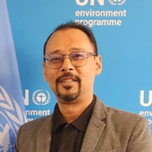
Mahesh Pradhan
With nearly three decades of experience with the United Nations Environment Programme (UNEP), Mahesh currently serves as the Coordinator for the Coordinating Body on Seas of East Asia (COBSEA), an intergovernmental mechanism bringing together nine countries (Cambodia, People’s Republic of China, Indonesia, Republic of Korea, Malaysia, the Philippines, Thailand, Singapore and Viet Nam) in protecting and conserving the East Asian Seas region. The Regional Seas Programme includes 18 Regional Seas Conventions and Action Plans globally, with its 50th anniversary coming up in 2024. COBSEA is among 7 Regional Seas Conventions and Action Plans administered by UNEP. In April 2023, COBSEA participating countries endorsed a new Framework on Marine and Coastal Ecosystems, under the overall theme of Sustainable Blue Economy. This Framework focuses on Marine and Coastal Spatial Planning, Marine Protected Areas, as well as Habitat Conservation and Restoration (coral reefs, mangroves, sea grass and coastal wetlands) in support of the goals and targets of the Kunming-Montreal Global Biodiversity Framework (K-M GBF). COBSEA participating countries earlier endorsed a Regional Action Plan on Marine Litter (RAP MALI), which is updated on a biennial basis. The COBSEA RAP MALI is closely linked to ongoing global efforts for a new legally binding treaty on plastics and marine litter through the Intergovernmental Negotiating Committee (INC) process. COBSEA hosts the East Asia Regional Node of the Global Partnership on Plastics and Marine Litter (GPML), which is knowledge platform that also includes a research database of over 700 scientific publications and data on plastic pollution in the East Asian Seas region.
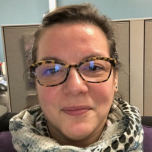
Kathryn Sheps
Kathryn is a marine scientist by training and a facilitator and convener at heart. After completing a masters’ degree in marine science at the University of South Florida, Kathryn split her time between the field and the laboratory, working for a small research and development company. Developing novel climate-related marine technologies and spending a lot of time on the waters in and around Tampa Bay instilled both a sense of urgency to address climate change and a passion for developing climate solutions, especially those involving the ocean. Returning to Vancouver, Kathryn followed her passion to the Morris J Wosk Centre for Dialogue at Simon Fraser University where she worked as a convener, facilitator and program manager in the climate solutions program, bringing people with diverse backgrounds and experiences together in transformative, solutions-focussed dialogue around crucial issues, ideas and policies. At the Ocean Decade Collaborative Center for the NE Pacific, Kathryn remains dedicated to the idea that working together there are no challenges that cannot be solved.
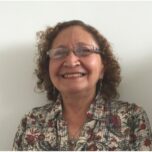
Soraya Silva
Soraya J. Silva is an Associate Researcher, head of Phytoplankton Laboratory, at the Center for Oceanology and Antarctic Studies (COEA) of the Venezuelan Institute for Scientific Research (IVIC). She is also the second focal point for IOC/UNESCO and is one of the Vice-Chairs of the Sub-Commission of IOC/UNESCO for the Caribbean and Adjacent Regions (IOCARIBE). She holds a PhD in Oceanography and Coastal Sciences, and studied the effects of diesel and copper on the phytobenthic community in a coastal area, through the analysis of photosynthetic pigments of different taxa using Liquid Chromatography High Resolution (HPLC). Her research interest is in the area of biological oceanography with a focus on phytoplankton dynamics and harmful algal blooms. She has extensive experience in the culture of microalgae and currently manages a culture collection of microalgae and cyanobacteria from different sources and coordinates several research projects, both national and regional. Together with the coordination and execution of research projects, she carries out activities for the transfer of knowledge to coastal communities and integrates teaching, tutoring and training activities for undergraduate and postgraduate students.
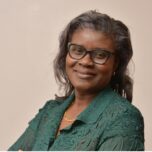
Joana Akrofi
Joana Akrofi is a Programme Management Officer at the United Nations Environment Programme (UNEP), Science Division, Big Data Branch. She is currently leading the co-design of the Global Environment Monitoring System on ocean (GEMS Ocean) with partners to makes available relevant data, analysis, and information guiding action to conserve and sustainably use the ocean and coasts. This includes the coordinating the building and convening of a global Community of Practice across experts and society at large to provide capacity, analysis, innovation and synthesized information to decision and policy makers, civil society, international organizations worldwide in a holistic approach to keep the global ocean and coasts healthy and productive. GEMS Ocean promotes and convenes a transdisciplinary partnership approach including UN and civil society partners, data providers, observing systems and knowledge asset holders to translate the collective ocean and coastal knowledge and expertise into sustained, targeted information for decision-makers, and to trigger transformative action at scale focused on sustainable coastal and ocean use and ecosystem health as well as informing developments such as sustainable blue economy and marine spatial planning. Her assignment in the Science Division has also included scientific assessments of the marine and coastal environment notably being part of the Global Environment Outlook (GEO), the World Oceans Assessment (WOA) and the GEF Transboundary Waters Assessment (GEF-TWAP). She is also the Joint Group of Experts on the Scientific Aspects of Marine Environmental Protection (GESAMP) Technical Secretary for UNEP and the Focal Point for the World Ocean Assessment (WOA). She is a product of the Kwame Nkrumah University of Science and Technology, Kumasi, Ghana and the University of Hull, United Kingdom.
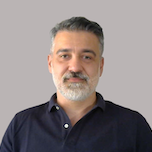
Dimitris Faloutsos
Dimitris Faloutsos is the Deputy Regional Coordinator of Global Water Partnership – Mediterranean and the Global Water Partnership’s Deputy Coordinator on the Transboundary Waters Cooperation theme. He is an Environmental scientist with an MSc in Oceanography. He has twenty years of experience in designing and implementing processes and projects in the fields of integrated water resources management applied in a source-to-sea context. He has extensively worked with multi-stakeholders partnerships and developed several strategic documents and management plans. His work has led to the enhancement of transboundary cooperation in a number of shared basins, including through the signing of relevant legal arrangements. He coordinates the implementation of the Healthy Rivers for Healthy Oceans programme endorsed under the UN Ocean Decade.
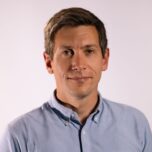
Daniel Jones
Dr Daniel Jones is a deep-sea biologist and Associate Head of the Ocean BioGeosciences Group at the National Oceanography Centre in Southampton UK. He specialises in understanding temporal and spatial patterns in deep-water ecosystems, including those impacted by anthropogenic disturbances. He applies his experience in working in the deep sea to improving environmental assessment and management including for deep-sea mining and offshore energy industries. He provides regular advice to government and engages in policy development. He has joined over thirty research expeditions, including voyages to two key areas of mining interest, the Pacific Clarion Clipperton Zone and the Mid-Atlantic Ridge. His 140+ scientific papers primarily focus on describing patterns and processes in deep-sea ecosystems. He has a key role in many major international research initiatives focussed on environmental aspects of deep-sea mining and is leading a £5M UK research programme, SMARTEX, investigating the responses of ecosystems to deep-sea mining disturbance.
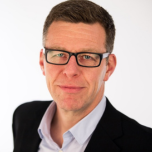
Thorsten Kiefer
Thorsten is the Executive Director of the Joint Programming Initiative Healthy and Productive Seas and Oceans (JPI Oceans). JPI Oceans is a pan-European intergovernmental platform that strengthens marine and maritime research and innovation by means of transnational cooperation through joint research & innovation calls, expert groups, infrastructure sharing, and coordinated action for policy impact. The thematic range is wide. Trans-national joint actions support, among others, ecological health, address pollution from microplastics, noise, light, chemicals and munition, assist adaptation to sea level change and carbon budget management, underpin regulations for deep-sea mining and the sustainable transformation of the ocean economy, and push for better ocean observation. Before joining JPI Oceans in 2019, Thorsten was director of the Future Earth Global Hub in Paris. Future Earth is a global network of researchers and innovators in support of sustainability in environmental and societal sectors. Going back further, Thorsten was Executive Director of the Past Global Changes (PAGES) programme, facilitating global research and synthesis of environmental changes that pre-date systematic measurements by using archives such as fossil corals, tree rings, sediments or ice cores. Thorsten’s roots are in research in the field of paleoceanography. At the Universities of Kiel, Germany and Cambridge, UK, he analysed deep-sea sediments to study the substantial oceanographic and climatic changes that took place over the past thousands to ten-thousands of years.
Working Group 2: Protect and restore ecosystems and biodiversity
Co-Chairs:
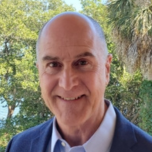
Frank E. Müller-Karger
Frank E. Müller-Karger is a Professor in the College of Marine Science, University of South Florida (USA). He studies marine ecosystems including the links between water quality, biological production, and biodiversity in coastal marine environments, and how these may be connected to climate change and human activities. He uses remote sensing and field work to better understand the impact of large rivers like the Amazon, Orinoco, and Mississippi on ocean biogeochemistry, to map coral reefs and wetlands, to assess the importance of continental margins in the global carbon budget, and to better understand how the sinking flux of particulate carbon affects marine life on mid-ocean ridges and the ocean bottom. Muller-Karger serves as the co-lead of the US and international Marine Biodiversity Observation Network (MBON), the Marine Life 2030 program endorsed by the UN Decade of Ocean Science for Sustainable Development, and the NOAA Climate Program Office/Sanctuaries Climate Indicator Task Force. He has published more than 340 peer-reviewed articles. He received the individual William T. Pecora Award in 2021, is a AAAS Fellow, and served on the U.S. Commission on Ocean Policy. Muller-Karger promotes science and technology as an integral element of society, working with the public and the applied and research communities to create social benefits and advance environmental conservation, locally, nationally, and internationally.
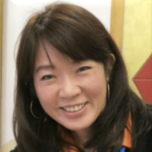
Aileen Tan
Professor Dato’ Dr. Aileen Tan Shau Hwai (AT) is a highly accomplished marine scientist renowned for significant contributions to marine science and community engagement. She holds the position of Professor at the School of Biological Sciences, Universiti Sains Malaysia (USM), and serves as the Director of the Centre for Marine and Coastal Studies (CEMACS). AT is also the Executive Director of the Asia-Pacific University-Community Engagement Network (APUCEN) since 2015. AT is a respected marine scientist worldwide, excelling in making complex science accessible to communities, driving positive transformations globally. Her multifaceted impact spans education, community advocacy, environmentalism, and humanitarianism. Notably, she became the first female President of UNITAS Malacologica, furthering sustainability in the Asia Pacific. She holds significant positions in global bodies like IOC Sub-Commission for Western Pacific (WESTPAC) and Partnership for Observations of the Global Oceans (POGO). AT’s dedication extends to empowering coastal communities via initiatives like giant clam conservation. Her emphasis on collaboration, respect, and local knowledge fuels sustainable practices and poverty alleviation. Her commitment earned her the prestigious Top Research Scientist Malaysia (TRSM) Award in 2020. AT’s influence reaches beyond Malaysia, as she globally promotes sustainable aquaculture and environmental conservation. She envisions marine scientists prioritizing environments and communities, underscoring her transformative impact in marine science, community empowerment, and environmental well-being.
Expert Members:
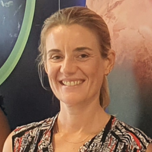
Joana Soares
Joana Soares has graduated in Aquatic Sciences and holds a PhD in Biomedical Science from the University of Porto. She has a solid research background in Ecotoxicology and Endocrine disruption and a strong experience in molecular biology and toxicogenomics. Over the last few years, she has worked as a researcher in several international research projects with multidisciplinary teams. Addressing global changes, in an integrative approach to space, climate, and ocean in the Atlantic, focusing on marine biodiversity conservation, are emergent topics of her work. Currently, she is the Executive Secretary of the Marine Biodiversity Observation Network (MBON) of the Group on Earth Observations Biodiversity Observation Network (GEO BON) and a Project Officer at the Earth Observation Laboratory of the Atlantic International Research Centre (AIR Centre).
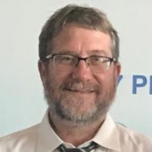
Steven Bograd
Steven Bograd is an oceanographer at the NOAA Southwest Fisheries Science Center in Monterey, CA, where he leads the Climate-Ecosystem Group, and is Adjunct Faculty in the Department of Ocean Sciences, University of California-Santa Cruz and Research Associate at Scripps Institution of Oceanography. Steven’s research interests are in the climate impacts on marine ecosystems, with a focus on eastern boundary upwelling systems. Steven currently co-chairs the North Pacific Marine Science Organization (PICES) flagship science program, FUTURE, and is the Editor-in-Chief of the journal Fisheries Oceanography. Steven also co-leads two United Nations Decade of Ocean Science Programmes (SmartNet and SUPREME). Steven received a B.S. in physics (University of Arizona), a M.S. in atmospheric sciences (University of Washington), and a PhD in physical oceanography (University of British Columbia). He did a post-doc at Scripps Institution of Oceanography before joining NOAA in 2001. Steven was born and grew up in Mississippi, USA, but has spent most of his adult life on the West Coast.
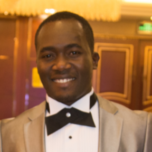
Anthony B. Ndah
Anthony B. Ndah is an Ecosystem Scientist based at Plymouth Marine Laboratory in the UK, where he also serves as the Regional Node Coordinator for Africa in the Early Career Ocean Professionals (ECOP) Programme, IOC-UNESCO. Anthony earned a post-graduate diploma in Observational Oceanography from the Alfred Wegener Institute for Polar & Marine Research as part of the NF-POGO program. During his postdoctoral research, he specialized in the developing zooplankton-based indicators and methodologies for ecological assessments in the German North Sea under the EU Marine Strategy framework Directive. Anthony holds a PhD in Environmental Studies, with a specialization in Marine Biogeochemistry and Air-Sea CO2 Fluxes in the South China Sea, from the University of Brunei Darussalam. He also worked as a graduate assistant lecturer at the same university. He holds an MSc. in Marine Affairs from Xiamen University, China, where he worked on Integrated Coastal Management and a BSc. in Geography from the University of Buea, Cameroon.
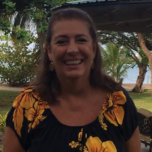
Paula Spiniello
Born and raised in Venezuela. She received a B.Sc. degree in Biology at the Universidad Central de Venezuela, a MSc in Environmental Engineering at the University of Connecticut, U.S., and a PhD in Ecology at the Universidad Central de Venezuela. She was an Associate Professor for the Institute of Tropical Zoology and Ecology (IZET) at Universidad Central de Venezuela, where she stayed for 15 years. Dr. Spiniello was also an Adjunct Faculty teaching Environmental Science and Oceanography for Golden West College (California-US), and State College of Florida (US). Since 2019, Dr. Spiniello holds an appointment as Assistant Professor for the Department of Biology, Ecology and Conservation at St. George’s University, Grenada, W.I. Dr. Spiniello research interest is in marine ecology, focusing on understanding the factors that control marine community structures and trophic transfer efficiencies in coastal waters. Dr. Spiniello research has focused on evaluating the effects of natural and human-driven impacts on plankton diversity and distribution, and the role of plankton in biogeochemical cycles, fisheries, and as indicator of coastal ecosystem health. In addition to facilitating and supporting the work of visiting research scientists from institutions all over the world, Dr. Spiniello has overseen a variety of undergraduate and graduate research projects from both St. George’s University and from the Universidad Central de Venezuela.
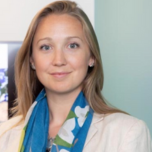
Harriet Harden-Davies
Harriet Harden-Davies is the Director of the Nippon Foundation-University of Edinburgh Ocean Voices Programme. Her research interests lie at the intersection of ocean law and science, including international ocean governance and equity, marine conservation and sustainable development, capacity building and ocean stewardship. Harriet co-founded the Early Career Ocean Professional Programme under the UN Ocean Decade and is a member of the IOC/UNESCO Group of Experts on Capacity Development. Her PhD and Postdoctoral research focused on the development of a new UN treaty for marine biodiversity beyond national jurisdiction. She is co-lead of the Deep Ocean Stewardship Initiative and is a member of the Editorial Board for Marine Policy, and a Deputy Director of the Nippon Foundation Ocean Nexus Centre. Her previous roles include Research Fellow at the Australian National Centre for Ocean Resources and Security, University of Wollongong; Visiting Science Diplomacy Fellow at Tufts University; Guest Investigator at the Marine Policy Centre of Woods Hole Oceanographic Institute; and Manager of Policy and Projects at the Australian Academy of Technological Sciences and Engineering.
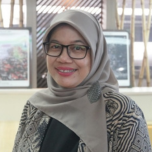
Virni Budi Arifanti
Virni Budi Arifanti, Ph.D. is a senior researcher at the National Research and Innovation Agency Republic of Indonesia (BRIN). Formerly she worked as a researcher at the Ministry of Environment and Forestry of Indonesia. In BRIN she is leading a research group on Mangrove Ecosystem Restoration and Conservation (MERCi). In 2023 Virni has been appointed as the Secretary of the Implementation Committee of Man and Biosphere (MAB) UNESCO Program for Indonesia. Since 2022 Virni was appointed as Indonesia’s Focal Point for Scientific and Technical Review Panel (STRP) of the Ramsar Convention. In 2023 she has been appointed as a Technical Expert of the STRP of the Ramsar Convention for the 2023-2025 triennium. She specializes in tropical mangrove ecosystems, wetlands ecology, blue carbon, greenhouse gas inventory and climate change studies. She has a keen interest in carbon dynamics and nature-based solutions (NbS) of wetland ecosystems. She has been involved in several international research collaborations and published in various peer reviewed international journals. Virni holds a PhD in wetlands ecology from Oregon State University, USA. Her MSc was obtained from Ghent University, Belgium, in forest geospatial science.
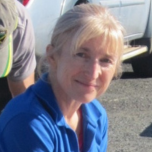
Dominique Pelletier
Dr Dominique Pelletier is a Senior Research Scientist at the French Institute for the Exploitation of the Sea (Ifremer) where she successively lead transdisciplinary projects on fisheries modelling and on the monitoring and assessment of Marine Protected Areas management effectiveness in both temperate and coral reef ecosystems. She developed a video-based monitoring protocol that is broadly used for benthic habitats and fishes. She is expert at the French National Pole on Biodiversity which develops tools for analysing and disseminating biodiversity data, and a member of the Marine Biodiversity Observation Network and the French BON.
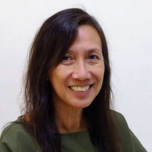
Maria Lourdes San Diego-McGlone
Dr. Maria Lourdes San Diego-McGlone is a pioneering figure in chemical oceanography in the Philippines. At the University of the Philippines Marine Science Institute (UP MSI), she established the Marine Biogeochemistry Laboratory, equipped for field surveys, water parameter analysis, and more. Her research spans changing coastal water quality, nutrient dynamics, ecosystem responses to stressors, blue carbon estimation, and harmful algal bloom mitigation. Her impact extends to addressing fish kills and mariculture’s environmental effects. She has been a mentor for international coastal zone studies and a leader in ocean acidification research. She is a water quality expert and has been a resource speaker in climate change discussions. Dr. San Diego-McGlone has 70 published papers and 5 book chapters. She held the distinction of UP Scientist from 2007, recipient of the UP Centennial Chair/Grant from 2008 to 2021, received an Invention Disclosure Award in 2016, and became Professor Emeritus in 2020. She has been a mentor to several graduate and undergraduate students, as well as college practicum and high school trainees. With a PhD in Chemical Oceanography from Old Dominion University, she’s received the Most Outstanding PhD Graduate in Oceanography award (1991).
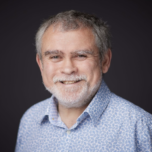
Alex David Rogers
Alex is a marine ecologist who is interested in how biodiversity is distributed in the ocean, especially in the deep sea and on tropical coral reefs. He is also interested in human impacts on the ocean and how to manage human activities to mitigate or reduce degradation of marine ecosystems. His work has taken him to the Atlantic, Indian and Southern Oceans and to the Caribbean investigating coral reef ecosystems, seamounts and deep-sea hydrothermal vents. Alex has worked with governments, intergovernmental and non-governmental organisations in publicising human impacts, especially those from deep-sea fishing and climate change, and on the development of policy solutions to such problems. He is Scientific Director of Ocean Census. Alex recently published the book The Deep: The Hidden Wonders of Our Ocean and How We Can Protect Them Wildfire (2019).
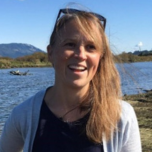
Rebecca Martone
Based near Victoria, BC, Canada, Dr. Rebecca Martone is the Executive Director of the Ocean Decade Collaborative Center for the NE Pacific, a contribution of the Tula Foundation. Over the past 20-years Dr. Martone has worked as an applied marine ecologist addressing a variety of issues in coastal ecosystems across the west coast of North America, including marine spatial planning, small-scale fisheries sustainability, cumulative impacts to coastal ecosystems, and monitoring to inform ecosystem-based management. Dr. Martone has a PhD from Stanford University in biological sciences, a Masters in environmental management from Duke University, and a B.A. in environmental sciences from Northwestern University. As the former Assistant Science Director at the Center for Ocean Solutions at Stanford University in California, she has experience linking science with decision making and co-developing science for solutions. Prior to her work at the Ocean Decade Collaborative Center, Rebecca worked as a marine biologist with the Province of British Columbia to help implement the Marine Plan Partnership and develop a network of Marine Protected Areas in collaboration with 17 coastal First Nations in northern BC. Rebecca is passionate about working with a diverse community of scientists, community members, industry representatives, and ocean and coastal practitioners to solve the major challenges facing our oceans, and to help protect our coasts and oceans while supporting people’s livelihoods and cultural connections.
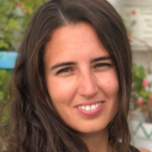
Veronica Relano
Veronica has a PhD in Oceans and Fisheries from the University of British Columbia and was supervised by Dr. Daniel Pauly. She is interested in marine conservation, connectivity and the socio-ecological issues resulting from the mismanagement of marine resources. One important component of her research is to understand how to better communicate conservation actions to a broader audience to achieve change on the ground. Her project “SOS – Somos OceanoS (ocean stories for conservation)” was endorsed by the UN Ocean Decade. It explores the needs of people living in and around ‘paper Marine Protected Areas’, raising local voices and finding ways to start a conversation for equitable management and conservation of marine resources. Veronica contributes her skills to advance the work of the NGO Onewater as the Oceans Program Manager.
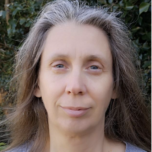
Louise Allcock
Louise Allcock is a professor of Zoology at University of Galway, Ireland. She is a member of the National Decade Committee for Ireland, chair of the North Atlantic Regional working group of the UN Ocean Decade programme “Challenger 150”, and vice chair of the UN Ocean Decade action “Marine Animal Forest of the World”. Louise is a member of the IUCN SSC Mollusc Specialist Group and has led the red list assessment of 750 cephalopod species. She chaired, on behalf of Ireland, the Status Assessments of deep-water OSPAR Listed Threatened/Declining VME Habitats working with international experts from across Europe. She is a member of Ireland’s Marine Protected Area (MPA) Advisory Group, providing expert advice to Government on MPA expansion. Louise has co-authored two richly-illustrated books: Octopus, Squid and Cuttlefish (University of Chicago Press, 2018) and Deep Ocean (Princeton University Press, 2023). She is a member of the Royal Irish Academy.
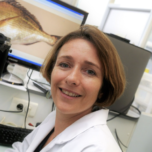
Audrey Darnaude
Audrey Darnaude is a marine scientist working for the French National Centre for Scientific Research (CNRS), in the MARBEC (Center for MARine Biodiversity, Exploitation & Conservation) joint research unit, which gathers scientists from varied French research institutes (CNRS, Ifremer, IRD, INRAE) at the Montpellier University (France). Originally specialized in fish ecology, she has studied the life-history diversity (growth, feeding and migration strategies) of varied marine species, as well as food-web structure in many regions of the world, mainly through the use of individual biogeochemical markers. Besides chairing a vast international initiative aiming to advance research on Marine Connectivity (the European COST Action & UN Ocean Decade project SEA-UNICORN: www.sea-unicorn.com), she currently studies the life strategies and population structure of various fish of high economic value, in link with coastal food web functioning and habitat connectivity at the sea-continent interface. She also teaches fish ecology, food web structure and biogeochemistry at the Montpellier University, and is involved in varied national and international expert groups, engaging in providing guidance on biodiversity conservation and sustainable maritime spatial planning, in relation to connectivity issues.
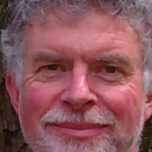
Mark John Costello
An ecologist specialising in biogeography, Marine Protected Areas, and the effects of climate change on biodiversity, including aquaculture-environment interactions. He pioneered ‘ocean biodiversity informatics’, notably by leading the establishment of the World Register of Marine Species and Ocean Biodiversity Information System databases. He played leading roles in many international organisations, including: being a lead author in the recent Intergovernmental Panel on Climate Change 6thAssessment Report where he co-led the Cross Cutting Chapter on Biodiversity Hotspots; co-chairing the Group on Earth Observations Marine Biodiversity Observation Network for 10 years; President and Secretary of the International Association for Biological Oceanography; Vice-Chair of the Global Biodiversity Information Facility Scientific Committee. Mark has supervised over 70 graduate students. He has over 270 peer-reviewed publications (total over 500, cited 19,000 times), and a H-index of 68 (57 since 2018). He currently leads the MBON Europe initiative to establish a long-term network of marine biodiversity monitoring in Europe, and MPA Europe, a project mapping the best places to protect biodiversity and carbon stores in all European seas. From Ireland, a fascination with wildlife led to studying in Galway (BSc Hon.), followed by a PhD based in Ireland’s only Marine Reserve, post-doc’s at the Marine Biological Association in Plymouth England and Scottish Office Aberdeen and Napier University in Edinburgh Scotland, a lectureship in Trinity College Dublin, establishing the environmental consulting company EcoServe, and a term as Executive Director of the Huntsman Marine Science Centre in Canada until returning to an academic position in Auckland New Zealand. He is currently a professor at Nord University, Arctic Norway, and a Visiting Professor at the Ocean University of China, Qingdao.
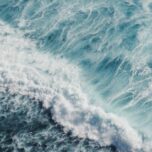
Britt Dupuis
More details to come.
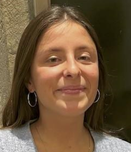
Alice Terpereau
Graduated in economics and mathematics, Alice pursued her academic path in sustainable territorial development. Interested in numerous domains at the crossing point of environmental and social sciences, she deepened her expertise in nature-based solutions and climate-induced disasters through research projects in different regions of the world. Currently enrolled in a traineeship at the European Commission, she is dealing with IT projects.
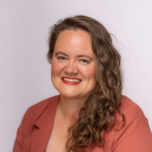
Martina H. Stiasny
Dr. Martina H. Stiasny is a marine biologist working in fish (larval) ecology, evolutionary ecology, and interdisciplinary fisheries science. Martina is interested in questions related to striking the balance between food security and sustainability in fisheries management, the effects of climate change on fish populations and how to incorporate economic and social constraints into fisheries management that is nonetheless based on solid ecological data and theory. She is a graduate of the University of St Andrews (BSc) in Scotland and Kiel University (MSc. In Biological Oceanography based at the GEOMAR) in Northern Germany, where she also completed her Doctoral degree in Fish and Fisheries Biology. After postdoc positions in Germany and Norway and a year working for the European Commission in Brussels, Martina has recently started a lectureship at the University of Southampton in England. She has started her own research group, continuing her work in the research aquarium of the National Oceanography Centre, looking into effects of climate change and other anthropogenic stressors on temperate fish.
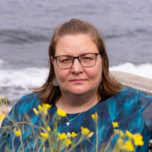
Lina Mtwana Nordlund is an associate professor in Natural Resources and Sustainable Development at Uppsala University in Sweden. Nordlund is rooted in social-ecological systems theory with a focus on coastal and marine environments. Her expertise is foremost in inter- and transdisciplinary approaches for sustainable coastal futures. She has done extensive research in East Africa and the Western Indian Ocean, particularly focusing on intertidal ecosystems, seagrass, fisheries, management, and policy. Her research focus in the Baltic Sea is on integrated marine monitoring and blue foods. She has previously worked as a manager for a Marine Protected Area and she has a keen interest in local ecological knowledge and futures thinking. Nordlund is the seagrass co-lead on the Global Ocean Observing System (IOC/UNESCO) Biology and Ecosystem Expert Panel and serves as Director of the Indo-Pacific Seagrass Network.
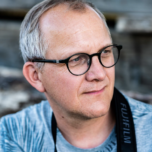
Ward Appeltans
Mr Ward Appeltans is the marine biodiversity focal point at UNESCO’s Intergovernmental Oceanographic Commission (IOC) where he manages the Ocean Biodiversity Information System (OBIS) and supports the Biology and Ecosystems Panel of the Global Ocean Observing System (GOOS BioEco). Mr Appeltans also manages two eDNA projects, one in the Pacific Islands to detect marine invasive species and a recent one to assess biodiversity in UNESCO’s marine World Heritage sites. Mr Appeltans is also a member of the steering group of the Marine Biodiversity Observation Network (MBON) and is a member of the coordination team of the UN Ocean Decade Marine Life 2030 programme.
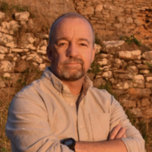
Linwood Pendleton
Linwood Pendleton is the Executive Director of the Ocean Knowledge Action Network and a professor at the European Institute for Marine Studies. He served on the Executive Planning Committee and the Interim Advisory Board for the UN Decade of Ocean Science for Sustainable Development and now serves on the Advisory Board of the UN Decade on Ecosystem Restoration. He was the Senior Vice-President for Science at the Centre for the 4th Industrial Revolution; Ocean, Global Lead for Ocean Science at the WWF; and Acting Chief Economist for the National Oceanic and Atmospheric Administration from 2011-2013.
Working Group 3: Sustainably feed the global population
Co-Chairs:
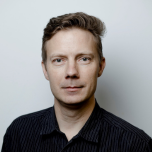
Erik Olsen
Erik Olsen is the head of the Research Group for Sustainable Development at the Institute of Marine Research, in Bergen, Norway, where he has been working since 1999. He has earned a PhD in fisheries biology in the University of Bergen (2002). Erik is board member of the Ocean Portfolio in the Norwegian Research Council. He is actively involved in the UN Ocean Decade, both as the leader of the ClimeFOOD Ocean Decade Project, and as a member of the Norwegian National Ocean Decade Committee. He has extensive experience with organizing and leading scientific surveys and investigations in Norwegian waters as well as in Africa and Asia. Integrated ocean management, ecosystem modelling and marine spatial planning has also been a key area of work, and Erik was deeply involved in the development of the Norwegian Integrated management plans.
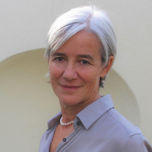
Vera Agostini
Dr. Vera Agostini is the Deputy Director of the Fisheries and Aquaculture Division at the United Nations, Food and Agriculture Organization (FAO) where she provides oversight, strategic leadership and technical support. From 2007-2017 Vera was with The Nature Conservancy, initially as Senior Scientist with the Global Oceans Team, and then as Director of Science and Director of Climate Adaptation with the Caribbean team. Dr. Agostini is a fisheries scientist by training, who has held positions across three sectors (non-governmental, government, and academia/educational) providing technical and strategic leadership across a range of multi-disciplinary efforts around the globe. Her experience ranges from comprehensive ecosystem research to broad policy and planning. Although her work began in temperate systems, she has spent a considerable part of her career focusing on tropical geographies.
Expert Members:
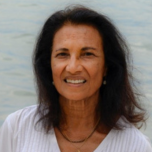
Shakuntala Haraksingh Thilsted
Shakuntala Haraksingh Thilsted is the Director for Nutrition, Health and Food Security Impact Area Platform, CGIAR. She was previously the Global Lead for Nutrition and Public Health at WorldFish. She was awarded the 2021 World Food Prize for her ground-breaking research, critical insights, and landmark innovations in developing holistic, nutrition-sensitive approaches to aquatic food systems. She was awarded the 2021 Arrell Global Food Innovation Award for research innovation. She is Chair of the Scientific Advisory Committee (SAC) of the UN Food Systems Coordination Hub. She is a member of the Steering Committee of the High Level Panel of Experts on Food Security and Nutrition (HLPE) of the United Nations Committee on World Food Security (CFS). She was Vice Chair of the UN Food Systems Summit 2021: Action Track 4 – Advance Equitable Livelihoods, and also a Food Systems Champion. In 2022, Shakuntala was appointed co-chair of the EAT-Lancet 2.0 Commission. Shakuntala holds a PhD from the Royal Veterinary and Agricultural University, Denmark. She holds Honorary Doctorates from the Swedish University of Agricultural Sciences and The University of the West Indies.
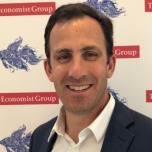
Christopher Costello
Christopher Costello is a professor of Environmental & Resource Economics and Director of the Environmental Markets Lab at the University of California, Santa Barbara, and is a Research Associate at the NBER. He received his Ph.D from the University of California, Berkeley in 2000 and conducts research on natural resource economics and policy concerning property rights, with a focus on decision making under uncertainty, information, asset values, and natural resource scarcity. His work combines applied theory with modeling and empirical analysis, often to inform policy in the ocean, land use, climate, and environmental market design. Costello’s work is global, but includes recent projects in French Polynesia, Seychelles, Peru, Mexico, and Indonesia. Costello serves on the board of trustees for Environmental Defense Fund and The Nature Conservancy (California), and serves on the California Governor’s Council of Economic Advisors. He has published over 100 peer-reviewed papers in economics and science journals, has served as primary advisor for over 30 PhD students and post-docs.
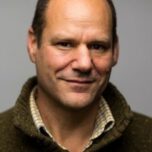
Edward Allison
Eddie Allison works at the interface between research, policy and development practice, with a focus on governing aquatic food systems to address poverty, malnutrition and inequity through food system and ocean governance transformations. Eddie has worked for international development organizations (FCDO and UN FAO) and as a consultant, and has held university faculty positions in Development Studies at University of East Anglia,UK, and in Marine Affairs, at University of Washington, USA. He has a PhD in fisheries assessment and management from the University of Liverpool, U.K. He has published over 250 research articles and is in the top 0.1% of the world’s most influential interdisciplinary scientists, based on Clarivate citation counts of his work. He was a lead author on the High Level Panel on the Future Ocean Economy’s ‘blue paper’ on ‘The Human Relationship with the Oceans’ and a contributing author to the papers on Equity and on Ocean Governance Transformation. Currently, he leads the Sustainable Aquatic Food Systems science unit at WorldFish and is based in Penang, Malaysia. He also holds adjunct and visiting professorships at the University of Washington, Seattle, USA, and Lancaster University, UK.
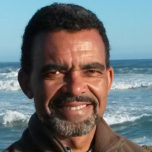
David Obura
David Obura is a Founding Director of CORDIO East Africa, a knowledge organization supporting sustainability of coral reef and marine systems in the Western Indian Ocean. CORDIO takes research to management and policy, builds capacity, and works with stakeholders, managers and policy makers. David’s primary research is on coral reef resilience, biogeography and climate change impacts, and turning now towards sustainability science using coral reefs as a model and earth systems science framing.
At the boundary between science and action, David works to integrate conservation and development across scales, in the context provided by global sustainability goals and targets. He works from the local scale, through fostering innovative action to promote sustainability, through regional scale alignment and integration, to global scales, bringing knowledge and local-regional practice into decision-making contexts. David serves on the Earth Commission, Co-Chairs the IPBES Nexus Assessment (2022-2024) and has been active in bringing sustainability science into the Kunming-Montreal Global Biodiversity Framework and other international processes on biodiversity, oceans and climate change, and in identifying African priorities, opportunities and positions for achieving a sustainable future. David was awarded Kenya’s national honour, Moran of the Burning Spear in December 2021, and the Coral Reef Conservation Award of the International Coral Reef Society in 2022.
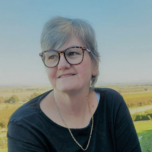
Janet Coetzee
Janet Coetzee is a senior fisheries scientist at the Department of Forestry, Fisheries and the Environment in Cape Town, South Africa with expertise in hydroacoustic survey methods, forage fish fisheries and ecosystem dynamics. She has actively participated in the assessment and management of South Africa’s forage fish resources over the past 30 years and contributed to the understanding of their ecological significance and the role that they play in the economy and food security of the country. She has participated in inter-disciplinary research collaboration both within the Benguela Current Large Marine Ecosystem and elsewhere, has explored potential new fisheries and formulated policies that promote the sustainability of existing forage fish fisheries. She has comprehensive knowledge and experience in this domain and a balanced approach to dealing with conflict between fishing industries and conservation bodies.
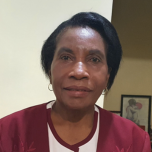
Flower Msuya
Dr. Flower Msuya, a Freelance Senior Researcher and Consultant (having worked with the University of Dar es Salaam, Tanzania, for 33 years), is expert in seaweed aquaculture with 30+ years of experience. She researches on seaweed aquaculture including livelihood development, climate change, and health issues as well as integrating seaweed with marine animals for enhanced food production. Dr. Msuya is the Founder and Chairperson of Zanzibar Seaweed Cluster Initiative where she links farmers and small-scale processors to research, government and private sector. She produced the first seaweed value-added product in 2006, products are currently marketed all over Eastern Africa, the products include food products. She engages in developing climate-smart farming technologies for farming seaweed and other marine organisms in deep waters to curb the impact of climate change and produce seaweed food in the blue economy endeavors. Dr. Msuya is a member of bodies of some international organizations including Steering Committee of Safe Seaweed Coalition, Scientific Council of Global Seaweed Coalition and Board of International Marine Biotechnology Association.
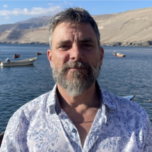
Stefan Gelcich
Stefan Gelcich is a Marine Biologist based at the Universidad Catolica de Chile, he studies the linkages and feedbacks between social and ecological systems. He is particularly interested in advancing science which contributes to the sustainable management of coastal oceans. He has been part of multiple interdisciplinary projects and centers over the past 20 years where he has led research focused on human behavior, ecosystem services and ecology. In all projects Stefan contributes by linking social-ecological dimensions. Current project themes include marine conservation and management, adaptive capacity of coastal industries and illegal fishing, among others. Research has been funded by national and international institutions. Stefan is the director of the Instituto Milenio en Socio-ecologia Costera.
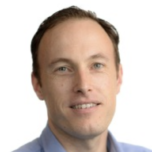
Michael Fabinyi
Michael Fabinyi is an Associate Professor at the Climate, Society and Environment Research Centre at the University of Technology Sydney. From 2010-2016 he worked at the Australian Research Council Centre of Excellence for Coral Reef Studies, James Cook University, and he has lived and worked in China, Indonesia, Malaysia, Papua New Guinea, the Philippines and Solomon Islands. He is an environmental social scientist, and his primary research interests are in coastal livelihoods, food security in coastal contexts, and seafood trade.
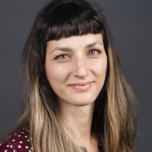
Andreea L. Cojocaru
Andreea L. Cojocaru is Associate Professor at University of Stavanger in Norway. She has an actuarial science and statistics background from University of Toronto and KU Leuven complemented by a PhD in industrial economics from UiS. Her research focuses on the economics of oceans, with concentration on aquaculture, fisheries, seafood markets and coastal communities. Originally from Romania, Andreea has lived, studied, and worked in Canada, Belgium, Norway and the US. She strives to be involved in interdisciplinary collaborations recognizing the many facets of natural resource issues while remaining mindful of the complexities of socio-environmental systems.
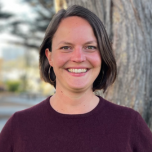
Michelle Tigchelaar
Dr. Michelle Tigchelaar is a Research Scientist with the Center for Ocean Solutions at Stanford University. She is an interdisciplinary climate scientist whose work focuses on the impacts of climate change on food systems, spanning the aquatic and terrestrial and the ecological and human. Since 2020, Michelle has been coordinating the Blue Food Assessment, an integrative assessment of the role of aquatic foods in transformations towards healthy, sustainable, just and resilient food systems, as well as supporting the Aquatic/Blue Food Coalition in bringing blue food insights into key policy arenas. Her active research involves developing tools for assessing blue-green climate risk to nutrition and identifying climate impacts and adaptations for food worker health.
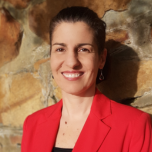
Maria Darias
Dr. Maria Darias is a tenured research scientist at the French National Research Institute for Sustainable Development (IRD). Her primary focus is the development of sustainable aquaculture practices in low- and middle-income countries, with a particular emphasis on nutrition-sensitive aquaculture. Her research interests revolve around exploring the interplay between aquaculture conditions, particularly nutrition, and the nutritional composition of aquatic foods. Dr. Darias serves as the co-director of the African Interdisciplinary Laboratory in Sustainable and Nutrition-Sensitive Marine Aquaculture (LIMAQUA), an interdisciplinary research and training initiative jointly coordinated by South Africa and France addressing the nutritional and sustainability challenges faced by marine aquaculture in the region. Additionally, Dr. Darias leads the UN Ocean Decade program ‘Nutrition-Sensitive Marine Aquaculture in Africa’ (AfriMAQUA).
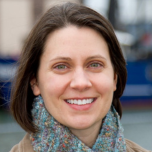
Katherine Mills
Dr. Katherine Mills is a senior research scientist at the Gulf of Maine Research Institute in Portland, Maine. She earned her Ph.D. in Natural Resources at Cornell University. As a quantitative fisheries ecologist, Kathy studies marine ecosystem changes and fish-ecosystem-fishery relationships with a focus on the Gulf of Maine and Northeast US Shelf regions. Specifically, her research investigates (1) how physical and ecosystem conditions are changing; (2) how these changes affect fish populations, biological communities, and marine fisheries; and (3) how fisheries and fishing communities can effectively respond. Much of her work is interdisciplinary and collaborative, working with scientists and stakeholders to understand and inform management of fisheries as coupled social-ecological systems and to support climate adaptation and resilience in marine fisheries. She leads a UN Ocean Decade program—Fisheries Strategies for Changing Oceans and Resilient Ecosystems by 2030 (FishSCORE), is lead author for the ‘Ocean Ecosystems and Marine Resources’ chapter of the US 5th National Climate Assessment, and serves as a chair of the ICES-PICES Strategic Initiative on Climate Change Impacts on Marine Ecosystems (SICCME).
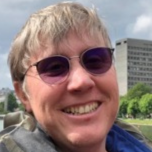
Beth Fulton
Dr Beth Fulton is a Chief Research Scientist with CSIRO. Beth is the CSIRO’s research domain leader for integrated oceans stewardship and the blue economy. In shaping the strategic direction for CSIRO’s research in this area, she is building off more than 20 years of work developing various system modelling tools for looking at marine ecosystems and sustainability. Beth is also an Adjunct Professor and Deputy Director at the Centre of Marine Socioecology, which focuses on finding transdisciplinary, equitable and sustainable solutions to the problems facing coasts and oceans. The common theme to Beth’s work has been on developing system-scale decision support tools in support of sustainable management of potentially competing uses of marine environments and adaptation to global change.
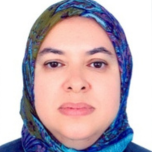
Fatima Zohra Hassouni
Head of the sustainability and fisheries resources management division, within the maritime fisheries department, has more than 23 years of experience in the field of fisheries resources development and management and more than 15 years of experience with regional and international fisheries management organizations (GFCM, ICCAT, CECAF, FAO, etc.). Committee member and focal point of several projects dealing with the sustainable management of marine resources and the preservation of ecosystems and biodiversity, Maritime Spatial Planning, Marine Protected Areas, Blue Economy. National Focal Point for Marine and Coastal Biodiversity.
Working Group 4: Develop a sustainable and equitable ocean economy
Co-Chairs:
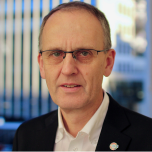
Peter M. Haugan
Institute of Marine Research, Norway. More details to come.
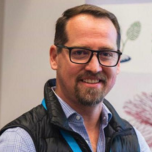
Andrew John Rhodes Espinoza
Andrew John Rhodes Espinoza currently works as Ocean Coordinator, attached to the Undersecretariat for Multilateral Affairs and Human Rights of the Ministry of Foreign Relations of Mexico and serves as Sous Sherpa for the High Level Panel for a Sustainable Ocean Economy. Prior to this assignment, he held executive positions in the National Commission for Protected Natural Areas (CONANP); as National Commissioner (head of agency), General Director of Institutional Development and Promotion and Director of Climate Change Strategies. Additionally, he served as General Director of the Pronatura System as well as Central Coordinator of the Fund for Protected Natural Areas in the Mexican Fund for the Conservation of Nature AC. Finally, Andrew Rhodes is the Deputy Chair for World Commission on Protected Areas of the International Union for Conservation of Nature.
Expert Members:
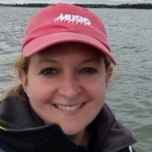
Georgia Park
Georgia is Senior Programme Manager for the Science in Public Life Programme at the Royal Society, which facilitates the transfer of knowledge and people between academia and policy. The Ocean Science Policy workstream provides a platform for early career researchers, professionals and policymakers in marine and ocean science across the UK to access the knowledge and networks at the science-policy interface, and the programme’s professional development opportunities help to build a talent pipeline for future scientific advisers and scientifically-trained civil servants in Government. The Ocean Science Policy programme is endorsed as an official contribution to the United Nations Decade of Ocean Science for Sustainable Development 2021–2030. Prior to her work at the Royal Society, Georgia has worked in academic publishing for Macmillan and Oxford University Press, and holds a BA in Geography from the University of Southampton and an MSc from Edinburgh Napier University.
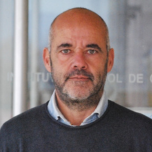
Rafael Gonzales-Quiros
Rafael is the Director of the Centro Oceanográfico de Gijón, one of the nine coastal laboratories of the Spanish Institute of Oceanography (IEO-CSIC). His research career is focussed on the relationship between ecosystem and fish population dynamics and plankton ecology, and he has been always involved in multidisciplinary long-term ocean observational programmes. During the past 8 years he has had different responsibilities at the Spanish Institute of Oceanography, which is the largest institution in Spain exclusively devoted to Ocean Sciences and with the mandate to provide scientific advice for ocean policies to the Spanish Government, particularly in fisheries and environmental issues. Before being the Director in Gijón he was the Head of the Marine Environment Area (one of the three research-advice areas at IEO together with Fisheries and Aquaculture), Deputy Director for Research and temporarily the Director of IEO (overlapped with Deputy Director). Rafael also has an active role of representation in different international and national organisations and processes related with ocean sciences and ocean sustainability. He has been the Head of the Delegation of Spain at the Intergovenmental Oceanographic Commission since 2017, member of the Group of Experts for the third cycle of the World Ocean Assessment, Coordinator of the National Decade Committee and a Working Group on Marine Data in Spain among others.
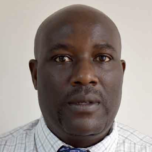
Joel Mokenye
Mr. Joel Mokenye holds a MSc. Degree in Marine and Lacustrine Science and Management and BSc. Degree in Fisheries and Aquatic Sciences. He’s more than 15 years working in coastal and marine fisheries management aspects. Initially worked as a Research Associate at KMFRI between 2011-2018, Part-time Lecturer at Technical University of Mombasa in the Department of Environment and Health Sciences, Marine sciences section (to date) and currently as Aquatic Biodiversity Specialist at African Union InterAfrican Bureau for Animal Resources (AU-IBAR) since 2022. Mr. Mokenye’s experiences span around scientific research, Fisheries management, aquatic ecosystems management through the use of MPAs, MCS and MSP frameworks and a wide range of consulting nationally, regionally and internationally. His multidisciplinary experience in marine and fisheries science ranges from marine and fisheries ecology, oceanography, environmental & social impact assessment of projects, Conceptual Blue economy, Benthic environment, environmental and marine plastic pollution. He’s held a number of assignments including; Kenya Coastal Development Project (KCDP) funded by the World Bank; Diagnostic Study on the Sources, Pathways, and Impacts of Marine Litter in Coastal Kenya project, funded by the World Bank and executed in partnership with Cardno Emerging Markets Ltd” along Kenya’s coastline; Small Scale Fisheries Management in the Transboundary conservation area in Southern Kenya – WCS- BAF-Project; Standing Stock Marine Litter Survey along Kenya’s coastline” (A joint survey between CSIRO and the United Nations Environment Programme (UNEP); Developed a conservation program and Trained local conservation groups on the establishment of LMMAs/CCAs/CMAs in lower Tana river, north coast Kenya; Coordinated a collaborative community wetland restoration project at Kilelengwani Co-Management Area, lower Tana river, north coast Kenya; and currently implementing the project “Conservation of aquatic biodiversity in African blue economy” at AU-IBAR where regional economic communities (RECs), RFMOs, WBs and AU member states are implementing partners.
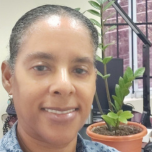
Susanna DeBeauville-Scott
Susanna possesses over 20 years of experience working in the field of conservation and sustainable development, and has direct experience in the following areas: development and implementation of climate change adaptation and disaster risk reduction measures; protected area management; biodiversity management; fisheries management; integrated coastal zone management; ocean governance and marine spatial planning; environmental impact assessment; waste management; and policy development. She is also a certified project manager with experience in managing national and regional projects in the Caribbean. Susanna currently works with the Organisation of Eastern Caribbean States (OECS) Commission where she provides technical support and manages projects on blue economy matters, including waste management and pollution reduction.
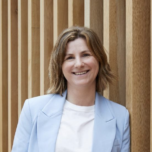
Emma Hospes
Emma is Director of Strategic Environment and Permitting and has worked on topics associated with environment and ecology impact management in the marine and coastal environment for more than 15 years. Ørsted is one of the world’s largest renewable energy companies and the global leader in offshore wind energy. In 2021, Ørsted set an industry-leading biodiversity ambition. The same year it became the first energy company to have its net-zero target validated by the Science-Based Targets initiative. The company has been at the forefront of the green energy transition and sustainable ocean stewardship and champions integration of action on climate and biodiversity. Emma’s role at Ørsted encompasses a wide range of topics associated with the marine and ocean environment. She represents Ørsted’s world leading global environment and permitting teams, which include more than 120 marine and environmental scientists, policy experts, and stakeholder managers working with local communities and environmental impact identification and management in countries around the world. Her team is also responsible for management of Ørsted’s global research programme on the marine environment and implementation of Ørsted’s industry leading global biodiversity programme. Prior to joining Ørsted, Emma worked in environmental consultancy and held marine and environmental policy roles in UK national and local government. She holds a BSc in Marine Biology and Oceanography from the University of Southampton and has a MSc in Ecological Management from Imperial College London.
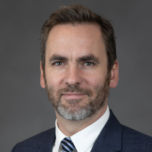
Erik Giercksky
Erik Giercksky has led the UN Global Compact’s work on Ocean since January 2018. UNGC is the UN’s main body for cooperation with international business and is, with its 12,000 signatory companies and 4,000 civil society organizations, the world’s largest sustainability initiative. The UNGC’s board is chaired by the UN Secretary General Antonio Guterres. The UNGC Ocean Stewardship Coalition consists of globally leading marine and maritime companies, as well as academic institutions, central UN organizations and NGOs. Since its inception, the work has been a significant normative factor for sustainability work in ocean-related industries. Of particular importance was the establishment of the Sustainable Ocean Principles during the UN General Assembly in 2019. Giercksky is also the lead author of the Blue Bonds Reference Paper, a reference document for the bond market’s work on sustainability for ocean related companies and part of the World Bank’s approach. Giercksky has previously worked as communications director in the Norwegian Shipowners’ Association and has held leadership roles in a number of companies and organizations. Giercksky started his career as a Norwegian diplomat and was part of the team that led Norway’s work with peace processes in different parts of the world. Giercksky has a master degree from the London School of Economics and from the University of Oslo.
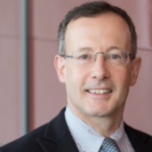
Torsten Thiele
Torsten Thiele is Honorary Fellow at Plymouth Marine Laboratory, UK and Affiliate Scholar at the Research Institute for Sustainability, Helmholtz Centre Potsdam, Germany. He works on ocean governance and sustainable blue finance, drawing on over 20 years experience in project and infrastructure finance with leading financial institutions plus a decade of ocean research. He is Founder of Global Ocean Trust, Strategic Advisor to the IUCN Blue Natural Capital Financing Facility and Senior Advisor to the Ocean Risk and Resilience Action Alliance (ORRAA) and acts as consultant to governments and other ocean stakeholders. Recent publications address climate policy, coastal infrastructure, nature-based solutions and innovative ocean finance (H-Index 15, 1099 citations). Torsten Thiele holds graduate degrees from the universities of Cambridge, Bonn and Harvard

Erika Harms
More details to come.
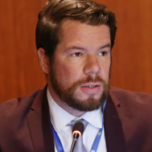
Joseph Appiott
Joe Appiott coordinates the work on marine, coastal and island biodiversity at the Secretariat of the Convention on Biological Diversity (CBD). At the CBD Secretariat, Joe works with governments, international organizations and other stakeholders to support the implementation of the Convention. This work includes facilitating the description and mapping of ecologically or biologically significant marine areas (EBSAs), coordinating capacity building activities, and synthesizing policy advice related to pressures on marine biodiversity. Joe work also includes coordination with, and input to, other UN agencies and multilateral processes with regards to issues related to marine, coastal and island biodiversity.
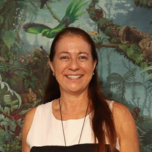
Vivienne Solis Rivera
Vivienne Solis Rivera is a biologist from the University of Costa Rica. MSc in Systematics and Ecology from the University of Lawrence/ Kansas USA. Biology. With more than 30 years of experience in biodiversity conservation in Mesoamerica and the Caribbean . Her work in the last 30 years has been developed in the field of marine conservation and human rights, leading the inputs from civil society, governments, and fishing organisations for the implementation of the SSF guidelines in her region and promoting IPLC governance models towards more equitable, efficient and effective marine conservation. She is part of CoopeSoliDar R.L, a Cooperative for Social Solidarity based in Costa Rica that promotes the conservation of biological and cultural diversity as a main asset for resilience of Indigenous Peoples and local communities to new challenges and opportunities. She is part of the Board of Directors of the International Collective for the support of fishworkers and an Honorary member of the ICCA Consortium, IUCN CEESP and Protected Area Commissions and the UN Women Major group within others at the International Level.

Stefan Gelcich
Stefan Gelcich is a Marine Biologist based at the Universidad Catolica de Chile, he studies the linkages and feedbacks between social and ecological systems. He is particularly interested in advancing science which contributes to the sustainable management of coastal oceans. He has been part of multiple interdisciplinary projects and centers over the past 20 years where he has led research focused on human behavior, ecosystem services and ecology. In all projects Stefan contributes by linking social-ecological dimensions. Current project themes include marine conservation and management, adaptive capacity of coastal industries and illegal fishing, among others. Research has been funded by national and international institutions. Stefan is the director of the Instituto Milenio en Socio-ecologia Costera.
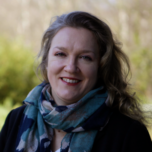
Louise Heaps
Louise Heaps is WWF’s global lead on sustainable blue economy, with a focus on influencing mainstream finance and policy enablers, as well as addressing the barriers to delivering an inclusive sustainable blue economy at coastal community levels. Louise has worked in ocean conservation and natural resource management for over 25 years, leading ocean policy and field-based programmes in the global north and south, with 5 years in the Pacific Islands region as the Conservation Director of WWF South Pacific. She subsequently led WWF-UK’s domestic and international ocean programme before becoming their Marine Chief Adviser. After completing an MBA at Exeter University in 2016, Louise led the process to develop the Sustainable Blue Economy Finance Principles in partnership with the European Commission, European Investment Bank and the Prince of Wales’ International Sustainability Unit. She is now a member of the UNEP FI steering group for the Sustainable Blue Economy Finance Initiative and the Steering Council of the Ocean Risk and Resilience Action Alliance.
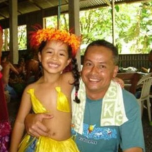
William N Kostka
William N Kostka is a dedicated conservationist and advocate for sustainable development initiatives in Micronesia. Since joining the Micronesia Conservation Trust (MCT) in 2006, he has played a pivotal role in transforming the organization to a recognized global leader in conservation and climate change adaptation. Kostka’s visionary leadership has led to remarkable achievements, positioning MCT as one of the few nationally accredited entities for the Adaptation Fund and the Green Climate Fund in the Pacific. This success underscores his commitment to securing funding for crucial conservation projects. Under Kostka’s guidance, MCT has acquired over $50 million in grants and funds, fostering collaborative efforts with regional partners. This financial support has allowed the implementation of impactful conservation initiatives that safeguard Micronesia’s natural heritage, encourage sustainable development, and enhance ecosystem and community resilience. Kostka’s contributions were acknowledged with the prestigious Pew Marine Fellowship in 2006, recognizing his instrumental role in launching the Micronesia Challenge Initiative, a landmark endeavor in natural resource conservation. His involvement showcases his dedication to addressing environmental challenges and his ability to unite stakeholders toward a common goal. Beyond MCT, Kostka actively engages in national, regional, and international boards and networks. As a founding member of the Pacific Islands Managed and Protected Areas Community and the Micronesians in Island Conservation Peer Learning Networks, he fosters collaboration and knowledge sharing among Pacific conservation practitioners. His commitment is further evident in roles on boards like the PIFS Subregional Subcommittee on Regionalism, the Global Greengrants Fund Pacific Advisory Board, and the IUCN-WCPA. Kostka’s profound dedication to nurturing emerging leaders is evident in his establishment of internships, scholarships, and fellowships through MCT. These opportunities empower Micronesia’s talent to contribute to conservation and sustainable development. William N Kostka’s profound dedication, strategic leadership, and active engagement in regional and international conservation initiatives have earned him a respected place in the global conservation community. Through his relentless efforts, he continues to drive positive change, ensuring the preservation of Micronesia’s natural resources for future generations.
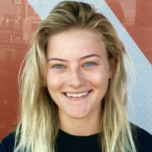
Ronnie Noonan-Birch
Ronnie Noonan-Birch is a marine socio-ecologist based at the Ocean Frontier Institute in Halifax, Nova Scotia, Canada. Her work focuses at the intersect of people and the ocean, specifically on how human well-being is intrinsically linked to ocean health. Ronnie recently completed her masters research which operationalized the SDGs to create a Blue Economy standard for Canada that is socially equitable, environmentally sustainable and economically viable. Ronnie is also one of the co-founders of ECOP Canada, a national node of the UN Decade endorsed ECOP Network Programme.
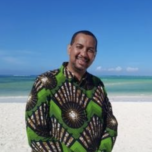
Aboud S. Jumbe
Dr. Aboud S. Jumbe is the Principal Secretary at the Ministry of Blue Economy and Fisheries, Zanzibar, in the United Republic of Tanzania. Dr. Jumbe has been involved in various dialogue and development processes in the implementation of Ocean Governance, Blue Economy & Marine Spatial Planning processes, focusing on the Western Indian Ocean (WIO) and the UNEP Nairobi Convention Area. Moreover, Dr. Jumbe has also taken part in programs related to Blue Economy initiatives in the WIO region supported by the Indian Ocean Commission (IOC), United Nations’ Economic Commission for Africa’s (UNECA), Indian Ocean Rim Association (IORA) and UNDP. Under the UNEP Nairobi Convention, Dr. Jumbe has participated in various Marine Regions Forums initiative, and the aspirations to develop an Ocean Governance Strategy across the Regional Seas Programs – creating an effective and multilateral partnership for a future management of Areas Beyond National Jurisdiction, especially in the Western Indian Ocean Region. Dr Jumbe has been a member of different platforms on ocean in the WIO region including the “Marine Regions Forum” and “Our Blue Future”. He holds BSc. Degree (General) Botany, Chemistry and Zoology from the University of Delhi (2000). He also holds MSc. and PhD Degrees, respectively, in Environmental Sciences, from the University of Bangalore (India).
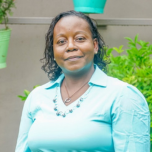
Marie-May Jeremie
Marie-May Jeremie is the Chief Executive Officer of the Seychelles Conservation and Climate Adaptation Trust (SeyCCAT). Marie-May holds a Masters of Environment Degree from the University of Melbourne and an undergraduate degree in Biological Sciences from Edith Cowan University. Ms Jeremie is a highly skilled Senior Executive with strong interest and experience in Biodiversity Conservation, Ocean Governance, science-to-policy advocacy and establishment and management of protected areas in the Seychelles. She is a trained Conservation Biologist who has been actively involved in national biodiversity conservation and environmental management, as well as development of environmental policies and legislation in the Seychelles. Over the past 13 years, she has been active in conservation works both at governmental and non-governmental organisation platforms. Ms Jeremie is also a seasoned negotiator on multilateral environmental agreements including but not limited to the Convention on Biological Diversity, Nairobi Convention, CITES and Biodiversity beyond National Jurisdiction (BBNJ).She has served on many Boards in the environment, conservation and resource management sectors. Before joining SeyCCAT, Marie-May served as the Director General for Biodiversity Conservation and Management Division where she focused on the establishment and implementation of all biodiversity related policies and legislation. She played an instrumental role as policy lead for ocean governance including the work on the Seychelles Marine Spatial Plan, where she still forms part of the Steering committee. Ms Jeremie is also the current President of the Board of the Western Indian Ocean Marine Science Association (WIOMSA).
Working Group 5: Unlock ocean-based solutions to climate change
Co-Chairs:
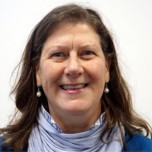
Carol Robinson
Carol Robinson is a Professor of Marine Sciences at the University of East Anglia in the UK. She leads a research team which studies the role of marine bacteria, phytoplankton, and zooplankton in the global cycling of carbon and oxygen, and how this varies with changing environmental conditions such as increasing nutrient supply, temperature and carbon dioxide and decreasing dissolved oxygen. Carol is a Fellow of the Royal Society of Biology, past President of the Challenger Society for Marine Science and past Chair of the SCOR/Future Earth global research network IMBeR (Integrated Marine Biosphere Research). She is currently co-Chair of the IOC Expert Group Integrated Ocean Carbon Research (IOC-R) and co-Chair of the UN Decade programme on Ocean Negative Carbon Emissions (ONCE).
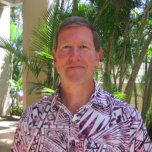
Christopher Sabine
Christopher L. Sabine is the University of Hawai‘i at Mānoa interim Vice Provost for Research and Scholarship and a full professor in the Oceanography Department. He received his PhD. in chemical oceanography from UHM in 1992. Since that time he has published over 160 journal articles and book chapters on carbon cycling, climate change and ocean acidification. His current research focuses on understanding the global carbon cycle, the role of the ocean in absorbing CO2 released from human activity, and ocean acidification. He has been a scientific advisor for a number of national carbon programs in the U.S. and internationally. He has won several awards including the U.S. Department of Commerce Gold Medal Award for pioneering research leading to the discovery of increased acidification in the world’s oceans and was recognized by the Intergovernmental Program on Climate Change (IPCC) for his contributions to the IPCC when they were awarded the Nobel Peace Prize in 2007.
Expert Members:
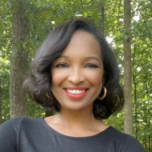
Courtney McGeachy
Courtney McGeachy currently serves as the Director of the Ocean Visions – UN Decade Collaborative Center for Ocean Climate Solutions. Courtney previously directed the GOLD+ Program (planetGOLD) at Conservation International. Prior to joining Conservation International, Courtney served as the Principal of the Pew Marine Fellows Program at the Pew Charitable Trusts, as well as the Manager of the Marine Conservation portfolio at the National Fish and Wildlife Foundation. During her time at the National Fish Wildlife Foundation, Courtney managed several marine conservation programs including the Fishing for Energy Program, Coral Reef Conservation Program, and the Emergency Prescott Grants Program just to name a few. Courtney holds a B.Sc. degree in Marine and Environmental Science from Hampton University, and a M.Sc. in Marine and Estuarine sciences from the University of Maryland Eastern Shore. Courtney also previously served as a co-chair for Integrity, Diversity and Equity at the Citizen Science Association.
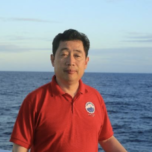
Fangli Qiao
Dr. Fangli Qiao, Member of Academia Europaea (MAE), Academician of International Eurasian Academy of Sciences and Editor-in-chief of Ocean Modelling, is the Chair Professor of physical oceanography and the Deputy Director General of the First Institute of Oceanography (FIO) of Ministry of Natural Resources of China. His research interests cover ocean and climate model development, ocean dynamics, turbulence and air-sea interaction etc. He find the key roles of small scale surface wave in large scale ocean circulation and global climate system through modulating ocean turbulence (Bv) and air-sea fluxes, called Qiao Theory. The theory has been used by tens research centers from different countries and all ocean and climate models are dramatically improved. He developed the first in the world new generation surface wave-tide-circulation fully coupled ocean model (FIO-COM) which overcomes the ground challenge for half-century of too shallow simulated mixed layer depth in the upper ocean, overestimated sea surface temperature especially in summer, the atmosphere-ocean-wave coupled Typhoon/Hurricane model (FIO-AOW) which greatly enhances the Typhoon intensity forecasting ability which has been a bottleneck for several decades , and the earth system model including surface waves (FIO-ESM v1.0 and 2.0) which kills more than half of the long-standing tropical biases. Dr. Qiao is the Executive Planning Group and then Decade Advisory Board member of the UN Decade of Ocean Science for Sustainable Development. He received numerous academic awards including Wooster Award of PICES, National Innovation Awards of China etc. He has more than 400 publications on peer-review scientific journals.
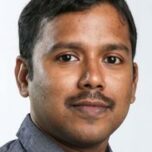
Dhrubajyoti Samanta (Dhruba)
Dr. Dhrubajyoti Samanta (Dhruba) is a Senior Research Fellow at the Earth Observatory of Singapore in Nanyang Technological University (NTU), Singapore. He is also a Research Affiliate at Cooperative Institute for Research in Environmental Sciences at University of Colorado Boulder, USA. Before joining NTU, Dhruba worked as a postdoctoral researcher at the University of Aizu, Japan, and Texas A&M University at Qatar. Dhruba obtained his PhD from the Indian Institute of Technology Kharagpur, India. Dhruba is a member of the CLIVAR Pacific Region Panel and an international working group member of Past Global Changes (PAGES) CoralHydro2K. He is a life member of the Ocean Society of India and The Indian Science Congress Association. Dhruba has worked on several interdisciplinary projects in six countries (including India, Qatar, Japan, Singapore, USA, and Norway). He has contributed significantly to understanding ocean and climate dynamics over the tropical Indo-Pacific region and improving their simulations in climate models. Three of Dhruba’s recent first-authored publications are cited in the IPCC 6th Assessment Report (AR6). He was actively involved in the review processes of multiple chapters of the IPCC AR6. He has reviewed several grants and more than 130 journal publications in reputed international journals. Dhruba has received several awards such as outstanding reviewer and trusted reviewer for his commitment to scientific integrity. He is actively involved in teaching, supervising, acquiring research funding, and outreach activities. Dhruba’s research concerns ocean and climate dynamics and their representation in climate models. His main aim is to understand and predict the role of ocean dynamics that have determined tropical climate changes in the past, and which will shape such changes in the future. His specific research focus is on climate modelling, sea-level studies, monsoons, tropical cyclones, and ocean-atmosphere interactions.
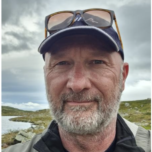
Richard Bellerby
Prof. Richard Bellerby is Chief Scientist at the Norwegian Institute for Water Research, Bergen, Norway, Director of the SKLEC-NIVA Centre for Marine and Coastal Research, East China Normal University, Shanghai, China and Adjunct Professor in the Faculty of Applied Sciences, UCSI University, Kuala Lumpur, Malaysia. With a background as a marine biogeochemist, he researches the interplay between climate and ocean change, marine ecosystems and ecosystem services with an increasing focus on socioecology. He has published over 150 research articles and book chapters. He is leader of the AMAP Ocean Acidification working group, a lead author on the AMAP Climate Expert Group, co-lead of the IMBeR-Future Earth Coasts Continental Margins Working Group, Executive Committee member on the Global Ocean Acidification Observing Network, Steering committee member of South Asia Regional Hub on Ocean Acidification, Co-Champion on the OARS Decade program and regional coordinator on the GO-BC Decade Program.
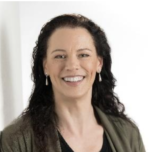
Sonia Batten
Sonia Batten has a scientific background as a biological oceanographer, studying plankton and their role in the ocean ecosystem. She initiated the North Pacific Continuous Plankton Recorder (CPR) Survey and was its coordinator from 2000 to 2020, contributing to over 35 papers based on the survey’s data. During the latter part of this role she was also a member of the GOOS Bio-Eco panel and Chaired the Global Alliance of CPR Surveys. In April 2020, she became Executive Secretary of the North Pacific Marine Science Organization (PICES). PICES is an intergovernmental science organisation which promotes collaborative marine research in the northern North Pacific and adjacent seas across the six member countries that border the region (Canada, Japan, People’s Republic of China, Republic of Korea, the Russian Federation, and the United States of America). Priorities for PICES are to promote the collection and rapid exchange of scientific information on the ocean environment, climate change, living resources and their ecosystems, and the impacts of human activities in the North Pacific. PICES sponsors and organizes international conferences and capacity development events, as well as its own Annual meeting, to facilitate, promote and disseminate scientific knowledge on these issues.
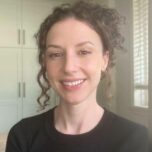
Liliana Bastian
Liliana Bastian, PhD is a Program Officer at Ocean Visions, where she supports strategic initiatives for the Ocean Visions-UN Decade Collaborative Center for Ocean-Climate Solutions and the Global Ecosystem for Ocean Solutions (GEOS), a UN Decade-endorsed action. She is a marine social scientist with a background in human geography and sustainable development. Before joining Ocean Visions, Liliana conducted participatory marine justice research and implemented multi-sector capacity building projects in sustainable development and climate resilience in the US, the UK, and Southeast Asia. Liliana holds a PhD in Human Geography from the University of Exeter, a Master of Marine Affairs from the University of Washington, and a B.S. in Environmental Geoscience from Texas A&M University.
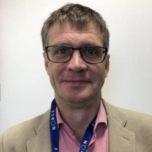
Richard Sanders
Richard Sanders works at NORCE in Bergen and serves as coordinator of the Horizon Europe OceanICU project. He has participated on a broad range of ocean biological pump projects over the last 25 years and has recently moved into a more policy-facing role as director of the Ocean Thematic Centre in the Integrated Carbon Observation System. Prior to his move to Bergen, he served as chair of the Ocean Biogeochemistry and Ecosystems Research Group in the U.K. National Oceanography Centre. He holds an honorary chair in ocean biogeochemistry at the University of Southampton in the U.K.
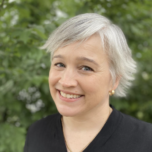
Galen McKinley
Galen McKinley is Professor of Earth and Environmental Sciences Columbia University and the Lamont-Doherty Earth Observatory. She is Deputy Director of the Center for Learning the Earth with Artificial Intelligence and Physics (LEAP), an NSF Science Technology Center (STC) for 2021-2026. Professor McKinley is an ocean, carbon cycle and climate scientist whose research focuses on the physical, chemical and ecological drivers of the ocean’s anthropogenic carbon sink at scales from regional to global. Her research tools include models of the ocean and climate, in situ and satellite datasets, and machine learning. Professor McKinley holds a BS in Civil Engineering from Rice University and a PhD in Climate Physics and Chemistry from MIT. She is member of the US National Academies Ocean Studies Board and the US National Academies Climate Security Roundtable. Selected honors include the 2020 Ocean Science Voyager award from the American Geophysical Union and, in 2011, the Class of 1955 Teaching Award at University of Wisconsin – Madison.
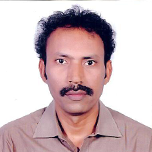
V.V.S.S. Sarma
V.V.S.S. Sarma is the CSIR-National Institute of Oceanography, Chief Scientist and Regional Director for its regional centre, Visakhapatnam and a professor at the Academy of Scientific and Innovative Research (AcSIR). He received his PhD. in chemical oceanography from Goa University in 1999. Since that time he has published over 175 journal articles and book chapters on the cycling of carbon, oxygen and nitrogen, climate change, aerosol chemistry, and ocean acidification through observations, remote sensing and numerical models. His current research focuses on the air-sea exchange of CO2 in the Indian Ocean, the oxygen minimum zone, Ocean acidification, and the role of human impact on the biogeochemistry of carbon, nitrogen and oxygen cycling in the Indian Ocean. He is a member of the research advisory committee of several laboratories in India and abroad and also a member of the Expert Advisory Committee for Oceans theme of Climate Sustainability Working Group under G20, Ministry of Environment, Forest and Climate Change and Member of the National Nitrogen Steering Committee to Implement UNEA4 Resolution of Sustainable Nitrogen Management in India, Ministry of Environment, Forest and Climate Change. He is one of the pool of experts for the United Nations. He won several national and international awards including National Award on Ocean Sciences and Technologies, Hidaka outstanding publication award and the Young Scientist Award. He is a fellow of the National Academy of Sciences, Bengaluru, India.
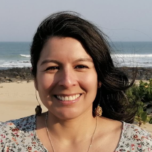
Kelly Ortega
Kelly is a researcher at the Department of Biological Sciences, University of Cape Town. She has a background in biology and fisheries science, and her research focuses on using ecosystem modelling to investigate the functioning of marine ecosystems and support ecosystem-based management. Her research interest also includes the influence of environmental variability and climate change on marine ecosystems, and the vulnerability and adaptive capacity of ecosystems to climate change. Kelly is a co-coordinator for the regional models of the Fisheries and Marine Ecosystems Model Intercomparison Project (FishMIP), which aims to better understand and project the impacts of climate change on fisheries and marine ecosystems.
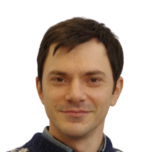
Robert Blasiak
Robert is a researcher at the Stockholm Resilience Centre (SRC) at Stockholm University, where he focuses on different aspects of ocean science, including vulnerability and risk associated with climate change, changing norms of ocean stewardship, and issues of equity and transparency associated with use of marine genetic resources and biotechnology. Robert is a member of the Ocean and Climate Platform Scientific Committee, a member of the editorial board of the ICES Journal of Marine Science, a participant in the UN Global Compact Ocean Stewardship Coalition, a member of the Expert Review Committee for the Seafood Stewardship Index, and coordinates the scientific input to the SeaBOS initiative (Seafood Business for Ocean Stewardship). He is currently leading the FORMAS project on “The marine biotechnology industry and equitable governance of marine genetic resources” and is co-leading the SRC’s Human Ocean research theme. Before joining SRC, Robert worked as a researcher in the Laboratory of Global Fisheries Science at the University of Tokyo and a communications officer at the United Nations University. He has previously been a senior research fellow with the Nippon Foundation NEREUS Program, as well as a visiting researcher with the University of Tokyo and the United Nations University.
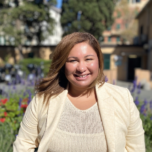
Andrea Lira Loarca
Andrea is a coastal scientist and research fellow at the MeteOcean research group at the University of Genoa, Italy. She holds a Ph.D. from the University of Granada, Spain and the University of Parma, Italy specializing in Coastal Management. Her research focuses on high-resolution modeling of waves and storm surge and their change due to climate change effects and coastal impacts due to compound hazards. Andrea was recently awarded a Young Researchers Seal of Excellence grant from the Italian Ministry of University and Research to develop a project focusing on the enhanced assessment of future coastal multi-hazards and compound risks in the Mediterranean Sea. Andrea has participated in several international research projects and collaborates with researchers around the globe. She is the Guatemalan national coordinator for the Central American Early Career Ocean Professionals of the UN Ocean Decade. She has more than 35 contributions to top-tier coastal and climate science journals and international conferences.

Suchana Chavinich
More details to come.
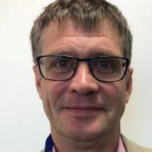
Richard Sanders
Richard works at NORCE in Bergen and serves as coordinator of the Horizon Europe OceanICU project. He has participated on a broad range of ocean biological pump projects over the last 25 years and has recently moved into a more policy-facing role as director of the Ocean Thematic Centre in the Integrated Carbon Observation System. Prior to his move to Bergen, he served as chair of the Ocean Biogeochemistry and Ecosystems Research Group in the U.K. National Oceanography Centre. He holds an honorary chair in ocean biogeochemistry at the University of Southampton in the U.K.
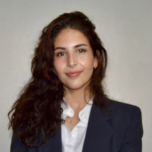
Sophia Laarissa
Sophia Laarissa is a PHD student specializing in Law of the Sea at Cadi Ayyad University in Marrakech, Morocco. Holder of a national excellence research grant, her thesis focuses on “The definition and settlement of disputes related to investments at the sea.” Sophia actively contributes as a member of the International Cooperation for Development Research Laboratory and the African Network of Deep-water Researchers. Additionally, she serves as a Coordinator of ECOP Africa’s Ocean Literacy and Capacity Building Task Team. She actively participates in national and international events such as the Hague Academy of International Law’s outdoor training on “The Law of the Sea,” the “Women In The Law of the Sea” conference organized by the International Seabed Authority, and she has recently moderated the “African Day of Seas and Ocean” event organized by ECOP Africa in collaboration with IOC- Africa. Sophia has also delivered communications on topics such as “Ocean Literacy” and “The overlapping dispute settlement mechanisms in the Law of the Sea and WTO law.” She believes in the critical role of transdisciplinarity in understanding the complexity and diversity of the ocean system’s components and addressing present and future challenges in the context of the Ocean Decade Vision process development.
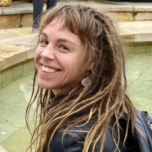
Jess Melbourne-Thomas
Dr Jess Melbourne-Thomas is a Transdisciplinary Researcher and Knowledge Broker, and leads a marine socio-ecological systems team with CSIRO Environment in Hobart. She has a background in mathematical modelling and Antarctic climate change science, and her work focuses on connecting research to decision-making for sustainability and climate change adaptation. Jess was a Lead Author for the Intergovernmental Panel on Climate Change (IPCC) 2019 Special Report on the Oceans & Cryosphere in a Changing Climate and she is a co-convenor of the international program MEASO (Marine Ecosystem Assessment for the Southern Ocean).
Working Group 6: Increase community resilience to ocean hazards
Co-Chairs:
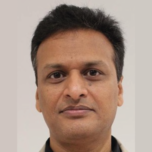
Srinivasa Kumar Tummala
Dr. Srinivasa Kumar Tummala holds a Ph D in Marine Science and made impactful contributions to the field of operational oceanography and coastal multi hazard early warning systems. Working at the Hyderabad-based Indian National Centre for Ocean Information Services (INCOIS) of the Ministry of Earth Sciences (MoES) since 2004, he was responsible for implementing several important projects including the Potential Fishing Zone Advisories, Multi Hazard Vulnerability Mapping, Coral Reef Bleaching Alert System, Satellite Coastal and Oceanographic Research, etc. Post the 2004 tsunami, he coordinated the successful establishment of the Indian Tsunami Early Warning System, as a multi-institutional project. The tsunami early warning centre, based at INCOIS is identified as one of the Tsunami Service Providers under the Indian Ocean Tsunami Warning and Mitigation System (IOTWMS) framework of the Intergovernmental Oceanographic Commissions (IOC) of the UNESCO. Between October 2016 to August 2020, he worked with the IOC-UNESCO as Head of the IOTWMS Secretariat in Perth, Australia. During this time, he was instrumental in strengthening the regional tsunami early warning system in active collaboration with 28 Member States, global harmonization of tsunami watch operations and implementation of the Tsunami Ready community recognition programme. Having started his scientific career with a with a brief stint at the Indian Space Research Organisation (ISRO), Dr. Tummala is currently the Director of INCOIS. He is also Vice Chair of the IOC for the Region IV, Co-chair of the IOC – WMO Joint Collaborative Board and Chair of the Ocean Decade Tsunami Programme Scientific Committee.
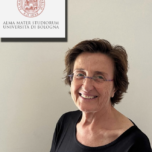
Nadia Pinardi
Nadia Pinardi, Department of Physics and Astronomy, University of Bologna. Nadia PINARDI holds a Ph.D. in Applied Physics from Harvard University, and she is full professor of Oceanography at Bologna University. Her major achievement is the conceptual design and practical implementation of ocean forecasting systems across the world open ocean and coastal areas. From 2012 to 2019 she was co-president of the Joint Committee for Oceanography and Marine Meteorology (JCOMM) of UNESCO-IOC and WMO and she is, since 2019, elected vice-president of the Commission for Observation, Infrastructure and Information Systems (Infrastructure Commission) of WMO. She is chair of the UN Decade for Ocean Science Program “CoastPredict” and Director of the UN Decade Collaborative Center for Coastal Resilience hosted by the University of Bologna.
Expert Members:
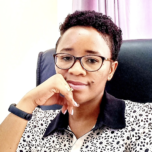
Hellen J. Kizenga
Hellen J. Kizenga is an early career marine scientist and an assistant lecturer at the Institute of Marine Sciences of the University of Dar es Salaam, Tanzania. She holds a BSc in Microbiology and a Master’s degree in Marine Sciences from the University of Dar es Salaam. She also has a postgraduate certificate on Observational Oceanography from the NF-POGO Centre of Excellence program at the Alfred Wegener Institute for Polar and Marine Research, Germany. Her research is based on marine and coastal resources, mainly focusing on primary productivity (Phytoplankton), marine biogeochemistry, remote sensing and small pelagic fisheries. In her research, she is highly interested in applying remote sensing, in-situ observations, and social sciences in ensuring that science collaborates with traditional knowledge for the generation of concrete information on the sustainability of marine and coastal resources.
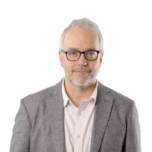
Enrique Alvarez Fanjul
Dr. Enrique Alvarez Fanjul is the Technical Coordinator of the OceanPrediction Decade Collaborative Center, at Mercator Ocean International. He has an experience of 33+ years in operational oceanography, having developed operational ocean forecasting services and managed ocean measurement networks. He has coordinated several national and European projects. He is the author of more than 100 peer reviewed publications.
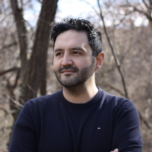
Leonardo Valenzuela Perez
Leonardo Valenzuela Perez is the Director of International Partnerships and the Global Ecosystem for Ocean Solutions (GEOS) at Ocean Visions. GEOS is a United Nations Decade of Ocean Science for Sustainable Development endorsed programme that articulates a multi-sectoral global network dedicated to the development and deployment of equitable and scalable ocean-based solutions to address climate change and major Sustainable Development challenges. Previously, he has led international climate justice initiatives in alliance with grassroots organizations in the energy and mining sectors. Leonardo has been working for nearly two decades at the intersection of Indigenous rights, climate activism, and environmental justice research with a global focus. Leonardo holds a PhD in Human Geography from the University of Sydney, as well as a Master of Human Settlements and the Environment and a Bachelor of Sociology from the Pontifical Catholic University of Chile.
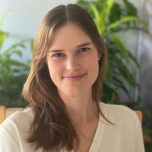
Martina Muller
As programme management officer at the UN Office for Disaster Risk Reduction, Martina Müller provides policy advice and substantive guidance to Member States to integrate the Sendai Framework for Disaster Risk Reduction and risk-informed sustainable development into intergovernmental decisions. Ms. Müller has served the United Nations in various capacities for five years, including by monitoring the performance of the UN development system in the fields of environment and climate and by supporting intergovernmental negotiations on the 2030 Agenda for Sustainable Development. She also served as international advisor to the São Paulo State Secretary for the Environment between 2015-2017, connecting the global to the local by developing pioneering policies and cooperation projects; and as a manager at the sustainability non-profit Ceres, leveraging corporate efforts to address tropical deforestation. Ms. Müller holds a master’s degree in public policy (Harvard University) and is a licensed lawyer (São Paulo University / Ludwig-Maximilian University) specialized in environmental law. She speaks English, Spanish, French, German, and Portuguese.
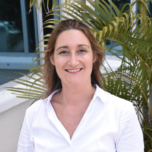
Iris Monnereau
Dr. Iris Monnereau is currently the Fishery Officer-Shocks and Emergencies based at FAO-HQ. She supports countries worldwide in enhanced disaster prevention, preparedness, response and rehabilitation of the fisheries and aquaculture sector. This covers natural, technological, and biological disasters as well as complex emergencies. She also provides content and updates NFI strategies and planning on Disaster Risk Management for fisheries and aquaculture and supports resource mobilization. From 2017 until 2022 she has been the Project Officer with FAO-SLC in Barbados coordinating the project Climate Change Adaptation in the Eastern Caribbean Fisheries Sector (CC4FISH). The USD 5.5 million project was carried out in 7 Eastern Caribbean countries and supported building resilience of the fisheries sector to climate change, including work on capacity building of fisherfolk and aquaculturists, Disaster Risk Management, fisheries and aquaculture development and mainstreaming of climate change and Disaster Risk Management into fisheries plans and policies. Iris Monnereau earned a PhD degree in 2012 from the University of Amsterdam, The Netherlands, Faculty of Social and Behavioral Sciences, for which she investigated the impacts of different lobster fisheries governance and value chains systems on the wellbeing of fisherfolk in Belize, Nicaragua and Jamaica. She conducted a two year Post-doc from 2012-2014 at the University of the West-Indies, Centre for Resource Management and Environmental Studies (CERMES) in Barbados where she researched climate change vulnerability of the fisheries sector in Small Island Developing States. She has published extensively on climate change impacts and vulnerability of the fisheries sector in the Wider Caribbean region both during her time as a researcher as well as at FAO.
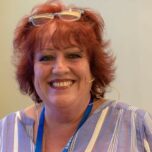
Loreto Duffy-Mayers
Loreto Duffy-Mayers is a distinguished professional with extensive expertise in the fields of Tourism, Environmental Sustainability, and Energy Efficiency. Hailing from a diverse background of Irish and Barbadian heritage, she has dedicated her career to fostering positive change in the Caribbean region and beyond. With a remarkable track record, Loreto has held pivotal roles in various regional programmes. She has served as the Project Lead for the United Nations Environment’s Caribbean Cooling Initiative, a visionary project that addressed energy efficiency and climate-friendly solutions in the cooling sector across Caribbean nations. Loreto’s passion for sustainable tourism has driven her to contribute significantly to the development of eco-friendly practices in the Caribbean hospitality industry. Notably, she managed the IDB Caribbean Hotel Energy Efficiency and Renewable Energy Programme (CHENACT), fostering energy efficiency and renewable energy solutions in the region’s hotels. A prolific speaker, Loreto has presented at numerous international conferences, sharing her insights on sustainable tourism, environment, energy, and climate change. Beyond her professional achievements, Loreto is actively involved in various committees and organizations dedicated to sustainability. She is a Board Member of the Caribbean Alliance for Sustainable Tourism, The Ocean Thermal Energy Association and a member the UNESCO IOC Decade of the Oceans, working group. Loreto’s commitment to creating a greener and more resilient future for the Caribbean has earned her numerous awards in The Caribbean for both energy and tourism. Her holistic approach, combined with exceptional communication and leadership skills, continues to make a lasting impact in the fields of tourism, environment, and energy.
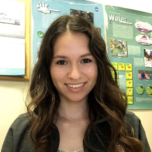
Alessandra Burgos
Alessandra (Ali) Burgos completed her undergraduate studies at Rutgers University in 2016, earning a Bachelor of Science in meteorology. Subsequently, she pursued her postgraduate education at Old Dominion University, where she achieved a Master of Science in oceanography in 2018. She dedicated her research to reconstructing the 20th century global relative sea level rise and modeling future nuisance flooding in Norfolk, Virginia. Having a desire to move into science policy, Ali was accepted into the esteemed Sea Grant Knauss Fellowship and spent a year in Washington D.C. at the National Oceanic and Atmospheric Administration (NOAA) headquarters. Here, she worked to enhance their coastal resilience portfolio, supporting congressional engagement and grant management. Presently, Ali works at Oregon State University as a project manager for the National Science Foundation funded project ‘The Cascadia Coastlines and People’s Hazards Research Hub’ whose goal is to increase coastal resilience for coastal communities in the Pacific Northwest.
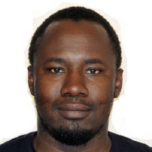
Joel Kamdoum Ngueuko
Joel Kamdoum Ngueuko is an environmental, climate change, and ocean planning specialist; coupled with his advocacy for spatial data literacy and gender balance. He has over ten years of experience in multidisciplinary programs, in addition to the development of quantitative and qualitative methodologies for spatial public policy planning and implementation, capacity building, and sustainable development. Kamdoum’s activities have included amongst others, his previous works as IOC-UNESCO’s intern and international consultant under the LME/IW: LEARN and the MSPglobal frameworks. He has authored scientific articles and co-authored the Technical Report on the Status of Coastal Vulnerability in Central African countries (technical series N°152, ICAM file, IOC-UNESCO). He holds a Bachelor of Science (Honours) Degree in Chemical/Environmental Engineering, a Postgraduate Diploma in Remote Sensing/GIS, and an Erasmus Mundus Masters of Science Degree in Maritime Spatial Planning.
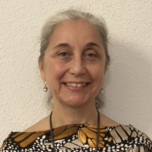
Purificació Canals
Purificació Canals has a BSc and a PhD in Biological Sciences from Barcelona University (1986 and 1996). She works as international free-lance consultant on marine and coastal conservation and as associated professor of Physiology at University Rovira i Virgili (Tarragona). Since 2009 she’s the President of MedPAN (Mediterranean Network of Marine Protected Areas Managers). From 2016-2019 she contributed to MPA networks across the Atlantic as Team Leader of the EU Transatlantic MPA Network Project, enlarged to the Southeast Asia since 2020 under the EU Ocean Governance Project. She’s also member of the Advisory Council for Sustainable Development of Catalonia (CADS) since 2014; the Scientific Council of Conservatoire du Littoral, since 2004; and the World Commission on Protected Areas of IUCN since 2007. Among other positions, she was Regional Councillor of IUCN (International Union for Nature Conservation) for West Europe (2000-2008); Vice-president of IUCN (2004-2008); President of the Preparatory Committee of the IV World Conservation Congress organized by IUCN in Barcelona (2006-2008); President of the League for the Defence of Natural Heritage (DEPANA) (1994-2010) and the Iberian Council for Defence of Nature (CIDN) (1998-2010). In 2020 she was awarded the St. George’s Cross by the Government of Catalonia for her work on coastal and marine conservation, and in 2022 she received the Alfred Toepfer Medal, from the EUROPARC Federation, for her contribution to nature conservation in Europe.
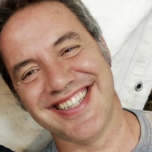
Giovanni Coppini
Principal Scientist and Director of the Ocean Predictions and Applications Division of Centro Euro-Mediterraneo sui Cambiamenti Climatici (CMCC) Foundation in Lecce, Italy. He holds a Phd in Environmental Science: protection and management of natural resources from Bologna University. From 2003 he is working in the field of operational oceanography applications development. He was co-chair of MONGOOS (Mediterranean Oceanography Network for the Global Ocean Observing System-GOOS) and he is the Emergency Response Office manager the MONGOOS-REMPEC agreement. He was a member of the JCOMM Task Team on Maritime Safety and chair of the JCOMM Expert Team Marine Environmental Emergency Response. Since May 2015 he is Leader of the European Copernicus Marine Service (CMEMS) for the Mediterranean Monitoring and Forecasting Centre (MFC) that provides ocean forecasting for the Mediterranean Sea. He was Deputy Leader of the Black Sea MFC. He has 45 papers in peer reviewed international journals. At CMCC he has coordinated and contributed to the development of several applications relevant to maritime safety and marine environment based on CMEMS data including Sea-Conditions, VISIR, WITOIL and OCEAN-SAR. Since June 2021 he is member of the Steering Committee of CoastPredict UN Ocean Decade programme and since June 2022 he coordinates the PredictOnTime UN Ocean Decade action.
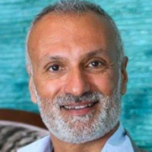
Andrea Valentini
Andrea Valentini is an environmental engineer with a PhD in the field of control and modelling of environmental systems. He is now chief scientist and programme expert at the UN Decade Collaborative Centre for Coastal Resilience hosted by the University of Bologna. Previously Head of the Marine and Coastal Numerical Forecasting Unit at the Hydro Meteo and Climate Service of the Regional Agency for Prevention, Environment and Energy of the Emilia-Romagna region, he has a strong background in ocean-coastal dynamics and modelling, climate change, observing systems and marine data analysis. Project manager of several EU research and cooperation projects, mainly related to the climate change and adaptation plans for coastal areas, coastal risk assessment, reduction and mitigation, and marine pollution management and prevention. Adjunct Professor of Advanced Technologies and Decision Support Systems in Water and Coastal Management at the University of Bologna – Department of Biological, Geological and Environmental Sciences. Member of several national and international working group in the field of the ocean observation systems, management of bathing water quality and short-term water pollution.

Antoine Queval
More details to come.
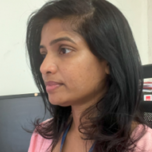
Sunanda Manneela
Ms. Sunanda Manneela is working as scientist at Indian National Centre for Ocean Information Services (INCOIS), Ministry of Earth Sciences, Govt. of India, Hyderabad. Her broad research areas include Plate tectonics, Subduction zone earthquake mechanisms, Tsunami Forecasting using GNSS and Disaster Management. She has made significant contribution for the successful establishment of the Indian Tsunami Early Warning System. She has overseen seismic module of tsunami warning system since warning centre inception. Ms. Sunanda has been representing INCOIS at the Intergovernmental Coordination Group for the Indian Ocean Tsunami Warning and Mitigation System (ICG/IOTWMS) of UNESCO. Currently, she is vice chair of Sub-regional Working Group for the North West Indian Ocean. She is also member of Ocean Decade Vision 2030 WG-6: Coastal Resilience and Working Group on GNSS Augmentation for Tsunami Warning of Global Geodetic Observing System (GGOS), International Union of Geodesy and Geophysics (IUGG). Ms. Sunanda has been involved with UNESCO-IOC Tsunami Ready since it was first piloted in the Indian Ocean region (India) and is passionate about the expansion of the programme. She is a versatile person with a notable career and proven track record of 12 years at INCOIS.For her significant contributions to Indian Tsunami Early Warning System, she was awarded “National Geoscience Award” for the year 2010 and prestigious “Young Achiever Award for 2016” which is given once in every four years.
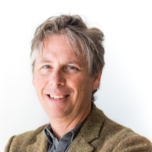
Martin Smith
Martin D. Smith is the George M. Woodwell Distinguished Professor of Environmental Economics in the Nicholas School of the Environment and the Department of Economics at Duke University. He earned a PhD at University of California, Davis in Agricultural and Resource Economics (2001) and a BA at Stanford University in Public Policy (1992). Smith studies the economics of the oceans and works primarily on bioeconomics of the fishery, economics of global seafood markets and trade, and economics of coastal climate change adaptation. He has served as Editor-in-Chief of the journal Marine Resource Economics and as a member of the Ocean Studies Board of the U.S. National Academies of Sciences, Engineering, and Medicine, a member of the Scientific and Statistical Committee of the Mid-Atlantic Fishery Management Council, and President of the International Institute of Fisheries Economics and Trade. Smith has published over 100 scholarly articles, book chapters, and reviews, including works in The American Economic Review, Nature, Science, and PNAS. He has made appearances on National Public Radio and BBC Radio to discuss seafood issues and has received national and international awards, including an Aldo Leopold Leadership Fellowship, Quality of Research Discovery from the Agricultural and Applied Economics Association, and Fellow of the International Institute of Fisheries Economics and Trade. His research has been funded by the National Science Foundation and National Oceanic and Atmospheric Administration.
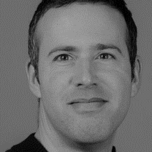
David Cabana
Dr David Cabana is an interdisciplinary scientist focused on the multiple dimensions of marine conservation and ocean sustainability. With an extensive background in research and consultancy, his current work focuses on a better understanding of the human dimensions of coastal areas. He is based at the Climate Service Center Germany (GERICS), an institution of Helmholtz-Zentrum Hereon, where he works on supporting coastal communities to adapt to climate change. His main interests include the integration of climate services into coastal governance and management as the promotion of community-driven approaches to address the impacts of climate change on coastal regions.
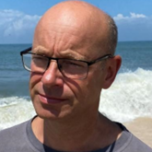
Jason Holt
Jason Holt leads the Marine Systems Modelling group at the National Oceanography Centre (UK; noc.ac.uk). He has been actively involved in the development of coastal ocean modelling for research, climate and operational oceanography since the 1990’s. His research interests are in the impacts of climate change on the physics of coastal and shelf seas, and consequences for the biogeochemistry, investigating potential ‘climate surprises’ in shelf seas around the world. He champions global approaches to coastal ocean modelling and climate impacts studies. He leads the NOC’s National Capability International Science programme: Future states Of the global Coastal ocean: Understanding for Solutions (FOCUS; noc.ac.uk/projects/focus) and helps lead the UN Decade of Ocean Science project Future Coastal Ocean Climates (FLAME), part of the COASTPREDICT programme (coastpredict.org). He is a visiting honorary professor at the University of Liverpool and a member of the NEMO steering committee. He has been principle or co- investigator in over 30 UK research projects and has published 88 peer reviewed journal papers.
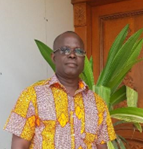
Joseph Ansong
Dr. Joseph K. Ansong is presently a Senior Lecturer in the Department of Mathematics at the University of Ghana, Legon. He received his PhD in Applied Mathematics from the University of Alberta in Canada, a MSc degree in Engineering Mathematics from the University of Twente (the Netherlands) and a Bachelor of Science degree in Mathematics from the University of Cape Coast (Ghana). His area of research is in Applied Mathematics, specifically in Fluid Dynamics, Mathematical Modeling and Physical Oceanography. He is interested in applying mathematics to understand geophysical flows, oceanic internal/surface gravity waves, and the dynamics of turbulent plumes. He also enjoys using laboratory experimentation to understand buoyancy driven flows. He is involved in capacity development in ocean sciences. He is a co-organizer of the Coastal Ocean Environment Summer School in Nigeria and Ghana (COESSING; https://coessing.org/), which is aimed at building capacity in oceanographic and environmental sciences in Ghana and Nigeria, and other countries in the Western African subregion. Dr. Ansong is a reviewer of several scientific journals: Journal of Fluid Mechanics, Journal of Physical Oceanography, Geophysical Research Letters, Ocean Modeling, Journal of Advances in Modeling Earth Systems, Scientific Data, and Frontiers in Marine Science. He is also a reviewer of proposals of the National Science Foundation (USA).
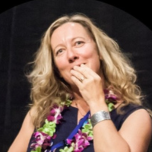
Juliet Hermes
Juliet leads a team focusing on observations, modelling and research of the marine environment around southern Africa as part of the South African Environmental Observation Network. Juliet is also a Professor at the University of Cape Town and the Nelson Mandela University. She has significant experience with developing and managing national, regional and international multidisciplinary, ocean observations. Her passion is in fostering regional and international collaborations as well as capacity development. Juliet focuses attention on development through ensuring knowledge generation and sharing, as well as growing a diverse cohort of marine scientists. Juliet has been part of the CLIVAR Indian Ocean Regional Panel, GEO Blue Planet, the Indian Ocean Rim Association, GCOS and the African Group Negotiators Experts Support. She supports global ocean observing systems through the GOOS Observation Coordination Group, as well as their standards and best practices through the IOC/GOOS Ocean Best Practices Group.
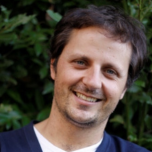
Mitchell Harley
Dr. Mitchell Harley is a leading international researcher in coastal hazards, coastal monitoring technology and coastal forecasting. He has published over 50 peer-reviewed journal publications in distinguished journals such as Nature Geoscience, Nature Communications, the Journal of Geophysical Research and Coastal Engineering. In 2017 he founded the program CoastSnap, a crowd-sourced beach monitoring technique using smartphones that is now operating in over 25 countries worldwide. Recently, Dr. Harley was awarded the inaugural Coastal Achievement Award at the International Coastal Sediments conference, in recognition for his contribution to the field of coastal research over the past 7 years.
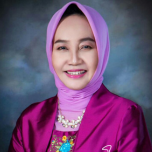
Dwikorita Karnawati
Prof. Dwikorita Karnawati (Rita) Ph.D, has been appointed as the Head of Indonesia Agency for Meteorology, Climatology and Geophysics (BMKG), since November 2017, after her completion in serving as the President of Universitas Gadjah Mada (UGM), a prominent university with 55,000 students in Indonesia.She has an extensive professional experiences and academic backgrounds as the Professor in Environmental Geology and Disaster Mitigation at UGM. Indeed, she is very active in promoting and developing the National Multi Hazard Early Warning System (MHEWS), and very well-respected as the one of the key figures in the preparation of the Presidential Decree on Indonesian Tsunami Early Warning System (InaTEWS) (Presidential Decree, Number 93 of 2019). Obtaining the Ph.D Degree in Earth Sciences from Leeds University, UK in 1996, she continued her research on The Prediction of Hydrometeorological Disaster through the Post Doctoral Program at Tokyo University of Agriculture and Technology, Japan in 1997. Afterwards, Prof. Rita consistently worked on the capacity development and education programs for Disaster Mitigation since 1997. Between 2004 and 2014, she served as The Coordinator for the ASEAN University Network – Southeast Asia Engineering Education Program (AUN Seed Net) in the Field of Disaster Mitigation (which include hydrometeorological disaster). She received the Leverhulme Professorship Award to further develop her research in Community-Based Landslide Early Warning System, in The Institute for Advanced Studies, at Bristol University, UK in 2003. Indeed, due to her extraordinary works in research-based education programs for Disaster Mitigation, she received series of research grants from the World Bank, as well as from Japan International Cooperation Agency (JICA) and the British Council, which then very important to support the process of developing the Multi Hazard Early Warning System, especially related to hydrometeorology disaster, earthquake and tsunami in Indonesia, with respect to life survivability and environmental protection. In October 2011, her research in Community-Based Landslide Early Warning System was selected as one of the best research on Landslide Disaster Risk Reduction by the International Consortium on Landslides, which led to the appointment of her University UGM as the World Center of Excellence for Landslide Disaster Risk Reduction. Furthermore, she was awarded the Fulbright Senior Research Program to develop Integration of Technical and Human Sensors for Early Warning System of Landslides, carried out in The Visualization Center-Department of Geology, at San Diego State University, California, USA in 2011-2012. Since 2015, Prof. Rita has been appointed as the Vice President of the International Consortium on Landslides (ICL). In such position, she actively promoted and developed the integration of the technical sensors and human sensors for hydro-meteorological early warning system, in which one of her team innovative products had become an international reference (ISO 22327) in 2018. Accordingly, in 2019 she has been elected as the Executive Council Member of the World Meteorological Organization (WMO) and the Chair of the Intergovernmental Coordination Group of Indian Ocean Tsunami Warning and Mitigation System (ICG/IOTWMS). She has also appointed as a Steering Committee Member of Global Ocean Observing System (GOOS) as a representative of WMO in 2021. In her recent position as the Head of the Agency, she actively drives the innovation on Early Warning Technology and Impact-based Forecasting Systems for Meteorology, Climatology and Geophysics, powered by the Big Data, Artificial Intelligent (AI), and Internet of Things (IOT), which also connected to Social Media, Mobile Aps and You Tube. She also actively promotes the Community Awareness Program on Climate Adaptation through Climate Field School for fisheries and farmers, which are considered as the most vulnerable communities during this Covid-19 pandemic. Furthermore, she facilitates the Development and Implementation of Coastal Flood Inundation System to reduce the risk of socio economical loss in the coastal area in Jakarta Bay. And now she plays a strong leadership in Modernizing and Strengthening the National Marine – Atmospheric Observations and Forecasting System across Indonesian Maritime Region, in order to support the improvement of maritime economic development and resiliency in the country. Receiving an extensive recognition from national and local counterparts as well as from various international organizations for her work, she also has been invited to deliver keynote speeches and lectures in conferences, meetings, and events in various universities and institutions in USA, Europe, Australia, New Zealand, India, Japan, China, and Africa, to share her best practices of her experiences in Disaster Risk Reduction and Early Warning System.
Working Group 7: Expand the Global Ocean Observing System
Co-Chairs:
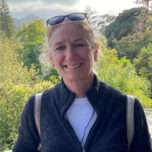
Patricia Miloslavich
Dr. Patricia Miloslavich is the Program Lead of the East Antarctic Monitoring Program with the Australian Antarctic Division. The program aims to implement sustained, long-term scientific observations of essential biological, physical, and biogeochemical variables in East Antarctica and the Southern Ocean. Between 2020 and 2023, Patricia was the Executive Director of the Scientific Committee on Oceanic Research (SCOR), an international body aimed to advance ocean science and address global issues requiring a multidisciplinary approach.
She is a marine biologist with a PhD in Oceanography from the University of Quebec at Rimouski, and a retired senior professor from Simon Bolivar University in Venezuela. For the last 30 years, she has worked with international programs addressing scientific, technological, capacity development, and sustainability challenges related to marine biodiversity and biological oceanography.
She was the International Project Officer of the Biology and Ecosystems Panel from the Global Ocean Observing System (GOOS) coordinating activities to implement global sustained observations of marine biodiversity and ecosystems. Patricia played key roles with the Census of Marine Life program, the SCOR Executive Committee and with the Marine Biodiversity Observation Network of GEO-BON. She contributed to the IOC/UNESCO Ocean Sciences and Ocean Observations sections, the UN Ocean Conferences, the IPBES global assessment and the UN World Ocean Assessments I and II among others. She was the President of the International Association for Biological Oceanography (IABO). Patricia was the recipient in 2015 of the Venezuelan National Science Award.
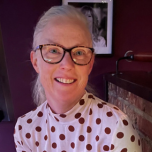
Joe O’Callaghan
Being in or on the ocean is Joe’s happy place. Dr Joe O’Callaghan is a research scientist with 20 years experience. She uses an observational approach to better understand the ocean areas where people work and play. Joe is the Director of Oceanly Science, an independent science company that provides research throughout Aotearoa New Zealand and internationally. Specifically biophysical oceanography regulating tropical ecosystems in the Pacific and Atlantic Oceans. Joe spent 15 years at NIWA undertaking science across coastal, shelf seas and deep sea oceanography where she led a paradigm shift in ocean observing through autonomous technology for Aotearoa New Zealand. Her research interests are broad spanning land-sea interactions, deep sea mining impacts, ocean mixing in storms, and marine heatwaves. She is well-versed in connecting observations and modelling approaches to maximise their mutual science benefits for society and the blue economy. Joe understands the needs and constraints for ocean observing at the local-scale, yet has a strategic vision to achieve global connectedness for the Ocean Decade Vision 2030 Challenges.
Expert Members:
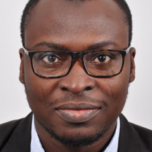
Isa Olalekan Elegbede
Dr. Isa Olalekan Elegbede (PhD) has charted an unparalleled course in Ocean resource observation for sustainability. Armed with a doctorate in Environmental Science from the Brandenburg University of Technology (BTU), Germany, his contributions have been pivotal in advancing the study and protection of marine ecosystems. Driven by the resilience and an unwavering commitment to the marine realm, Dr. Elegbede began his academic journey with a BSc in Fisheries from the Lagos State University, Nigeria. Further quenching his thirst for knowledge, he acquired an MSc in Marine Sciences from the University of Lagos and another MSc in Environmental and Resource Management from BTU, Germany. His educational trajectory also encompasses numerous international professional trainings and certifications. Beyond his role as an adjunct professor at the Department of Environmental Sciences, National Open University of Nigeria, Dr. Elegbede has passionately imparted knowledge at the Fisheries Department, Lagos State University. His earlier research and teaching experience at BTU, Germany, witnessed his lectures on marine sustainability, leaving an indelible mark on the subject. His international affiliations further enhance his academic portfolio: Visiting Fellow and Scholar at the Ocean Frontier Institute (OFI) and the Robin Rigby Trust (RRT), supported by the Marine Environmental Observation, Prediction and Response Network (MEOPAR) at Dalhousie University, Halifax, Canada, Alumni of the Graduate Program in Oceanography at the Oceanographic Institute of the University of São, Brazil. Dr. Elegbede’s leadership prowess is evident in his multifaceted roles: Co-chair of the GEO BON Blue Planet Fisheries Working Group, Deputy Chair of the IUCN/CEESP/TGER, Switzerland, Fellow of the Future Earth Coast (FEC), Member of the Deep Ocean Stewardship Initiative (DOSI) fisheries division, Central and South Atlantic Regional Scientific Research Working Group member, Co-lead of the African Network of Deep-water Researchers of Challenger 150, Co-Coordinator of the West African Regional Early Career Ocean Professional (ECOP). Dr. Elegbede leverages his interdisciplinary background in ocean data observation, innovations and management. Recognizing the imperative need for knowledge dissemination in Africa, he has worked as a diaspora expert with prominent German institutions: the Deutsche Gesellschaft für Internationale Zusammenarbeit (GIZ) GmbH and the German Federal Employment Agency. A recipient of numerous awards, Dr. Elegbede’s global involvement resonates with contributions and volunteerism towards multiple Sustainable Development Goals (SDGs). His honorary membership with the Indigenous and Community Conserved Area (ICCAs) in Switzerland is a testament to his dedication to ocean sustainability. In the ever-evolving marine landscape, Dr. Isa Olalekan Elegbede’s contributions remain unparalleled, shaping a brighter, more sustainable future for our blue planet.
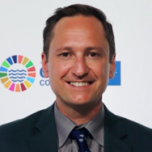
Nicholas Rome
Mr. Nicholas Rome joined the Consortium for Ocean Leadership in 2009 and is the Senior Program Manager for UCAR’s Center for Ocean Leadership. Mr. Rome provides strategic planning and program management for all ocean observing programs at COL, which includes the planning and execution of OceanObs’19 and coordination of several related UN Ocean Decade activities. Mr. Rome provides program management across various ocean science and technology initiatives at COL and leads ocean observation partnerships, collaboration, and stakeholder engagement. Before joining COL, he completed a master’s in international environmental policy and worked as a Policy Analyst for the Monterey Bay Aquarium Research Institute.
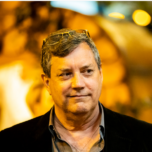
Terry McConnell
With over thirty-five years’ experience collecting and extracting knowledge from remotely sensed data about the earth and its cultural infrastructure, Terry recently joined IOC – UNESCO in the role of Lead for the Decade Collaboration Centre for Ocean Observing.
Terry is not new to the Decade. On secondment from Fugro NV, a Dutch Geo-data company, Terry worked for six months as the Data & Knowledge Management Officer within the Ocean Decade Coordination Unit. There he worked to create the strategic framework for the core digital data eco-system needed to support the UN Ocean Decade.
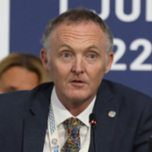
Steve Widdicombe
Professor Steve Widdicombe is a marine ecologist with over 30 years of experience in using field observations and large manipulative experiments to address issues relating to marine ecology, climate change, biodiversity and ecosystem function. For two decades he has been instrumental in developing the understanding of ocean acidification and its effects on the marine environment. Steve is currently the Co-Chair of the Global Ocean Acidification Observing Network (GOA-ON) Executive Council, a collaborative international network with around 1,000 scientists from more than 100 countries. GOA-ON’s goals are to detect, understand and forecast the drivers and impacts of ocean acidification. The network is fundamental to providing early warning of the impacts of ocean acidification on natural ecosystems, wild and aquaculture fisheries, coastal protection, tourism and local economies. Steve represented the GOA-ON on OSPAR’s Intersessional Correspondence Group on ocean acidification and was an author of the ocean acidification chapter in the 2023 Quality Status Report. Steve co-leads the UN Ocean Decade endorsed programme ‘Ocean Acidification Research for Sustainability’ (GOA-ON : OARS), which aims to provide society with the observational and scientific evidence needed to sustainably identify, monitor, mitigate and adapt to ocean acidification; from local to global scales. Steve regularly contributes to high level policy discussions such as at the UN Climate Change meetings the UNFCCC COPs, as moderator of a 2022 UN Ocean Conference Dialogue; through Co-Chairing a previous CBD international expert group meeting and presenting at the CBD COP15. He is currently a member of the UN Convention for Biological Diversity (CBD) ad-hoc Technical Expert Group on Indicators for the Kunming-Montreal Global Biodiversity Framework, the UN Ocean Decade Conference (2024) Programme Committee and the UN 3rd World Ocean Assessment Pool of Experts.
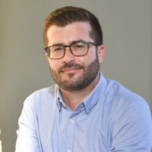
Aridane Gonzalez
Degree in Marine Sciences, Master’s in Oceanography, and a Ph.D. in Marine Sciences from the Universidad of Las Palmas de Gran Canaria (ULPGC). Upon completing the PhD Thesis (2011), he did a series of postdocs at the ULPGC (Spain), Toulouse and Brest (France), Five years later, in 2017, they returned to Gran Canaria with a Postdoctoral contract at ULPGC. Since 2020, he is Lecturer at the same institution. Currently, he is also the Director of research and Technology Development. In addition, he coordinate the Expert in Circular Economy in Isolated Territories.
With over 60 JCR-indexed publications, more than 120 presentations at national and international conferences, and involvement in various European and national projects, their academic contributions are substantial. They have actively participated in numerous oceanographic campaigns, including those in the Arctic and the Canary Islands, where they were involved in volcanic eruptions in Tagoro (El Hierro) and Tajogaite (La Palma). As part of the QUIMA group, he is also participating in the Canary network of CO2 system and acidification (included in the ICOS program). His research also focuses on studying the biogeochemical cycles of metals in natural waters, primarily in oceans, exploring the role of organic compounds in metal chemistry and speciation, and seeking new bioindicators of marine pollution. All this work is conducted under a changing world due to the impact of Climate Change and ocean acidification.
In terms of management, he is the President of the Scientific Committee for the Government of the Canary Islands on Climate Change, Circular and Blue Economy since 2018. This leadership role has presented a significant opportunity for fostering intense cooperation between universities, research centers, private enterprises, and public entities.
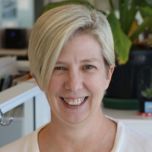
Michelle Heupel
Dr Michelle Heupel is Director of Australia’s Integrated Marine Observing system (IMOS). She is a research scientist with over 25 years’ experience working on ecology, conservation and management of marine predators, predominantly sharks and fish. Her career has spanned a range of sectors in marine science (university, public funded research agency, private non-profit research laboratory, joint ventures). She is a former member of the Commonwealth Threatened Species Scientific Committee and was a member of the Australian Delegation to the Convention on Migratory Species Sharks MOU meetings in 2016 and 2018. In 2022 she was invited to address the twenty-second meeting of the United Nations Open-ended Informal Consultative Process on Oceans and the Law of the Sea, at United Nations Headquarters in New York and is Vice-Chair of the Global Regional Alliance of the Global Ocean Observing System. She is considered a national and international leader in the application of ocean data to support policy and decision-making.

Laura Lorenzoni
More details to come.
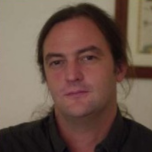
Pierre Testor
Pierre Testor is a physical oceanographer at LOCEAN, Paris, France. He is has been the first in Europe to deploy gliders in 2004 and has participated in the scientific animation of the worldwide glider community since then, in particular through the EGO network. He has helped to launch OceanGliders as an associated program of the GOOS in 2016 and is presently co-chair of it. Scientifically, he is concerned with ocean variability with emphasis on observations of ocean circulation and mixing using various platforms, and gliders in particular. He is more specifically interested in 1) the regional oceanography of the Mediterranean Sea and the development of long-term ocean observatories in this hot spot of climate change and biodiversity (he is co-coordinating a northwestern component, Mediterranean Ocean Observing System for the Environment, MOOSE, the mesoscale and submesoscale phenomena and their role in the cross-slope exchanges, the winter water formation, and the physical-biological coupling.
pierre.testor@locean.ipsl.fr, https://www.researchgate.net/profile/Pierre-Testor.
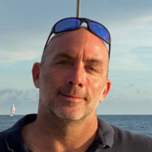
Jerome Aucun
Jerome Aucan leads the Pacific Community Center for Ocean Science, at the Pacific Community (SPC). Jerome brings decades of experience in Ocean science in the Pacific Ocean region. Prior to his position at SPC, Jerome was a research scientist within the French Institute for Research and development (IRD). His research topics used ocean observation and modeling to address key questions of relevance for the Pacific, relating to sea level variations and ocean circulation. Before working for IRD, Jerome worked for 10 years within the University of Hawaii Sea Level Center, in charge of maintaining tide gauges throughout the Pacific Islands. During that time, Jerome established a new network of wave monitoring buoys, that later formed the backbone of the Pacific Islands Ocean Observing System. Jerome is a member of several scientific committees and councils, and he is the chair of the science committee of the Joint Task Force to investigate the use of submarine telecommunications cables for ocean and climate monitoring and disaster warning (SMART Cables). Jerome holds a Doctorate in Physical Oceanography from the University of Hawaii, a Postgraduate diploma in Applied Maths and Physics from James Cook University in Townsville Australia, and a Masters of Engineering in Marine Environment from the Ecole Nationale Supérieure des Techniques Avancées (ENSTA Paris, France).
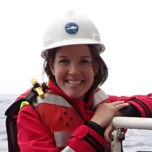
Erin Satterthwaite
Erin Satterthwaite, PhD, serves as a California Sea Grant extension specialist and marine ecologist at the Scripps Institution of Oceanography. Her work focuses on sustainable marine resource use and management in the face of a changing climate. Erin is the coordinator for the California Cooperative Oceanic Fisheries Investigations (CalCOFI), a long-term marine ecosystem time series with a 72-year history, contributing valuable insights into the effects of climate change on the California Current Ecosystem and coastal communities. Her expertise spans ocean sustainability issues, including marine biodiversity, ocean observations, biological oceanography, ecosystem-based management, social-ecological systems, participatory research, diverse engagement, and ocean governance. Erin has engaged with institutions such as The Oceanography Society (TOS), the Interagency Ocean Observing Committee (IOOC), the Global Ocean Observing System (GOOS), and the North Pacific Marine Sciences Organization (PICES). Additionally, Erin plays a role in international initiatives, contributing to the UN Decade of Ocean Science for Sustainable Development through the Early Career Ocean Professional program, the Global Ecosystem for Ocean Solutions program, the SmartNet program, and the UN Ocean Decade Collaborative Center for the North Pacific. Erin Satterthwaite helps to advance our understanding of marine ecosystems and promote sustainable practices in a changing world. Erin obtained her PhD and Masters from the University of California, Davis in Ecology and her B.Sc from Juniata College.
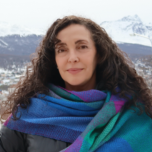
Irene Schloss
Dr. Irene Schloss leads the Biological Oceanography laboratory at the Austral Center for Scientific Research from the Argentinian National Council of Scientific Research (CONICET), based in Ushuaia, Argentina. She is also a researcher at the Argentinean Antarctic Institute, and a professor at the Tierra del Fuego National University. In the last 25 years, she developed a wide expertise in the dynamics of polar and sub-polar marine plankton, temporal and spatial variations of plankton communities, and the response of physicochemical variables to global climate change from field data, experimental work, and modelling. She played a leading role in many international research projects, relating climate change to CO2 fluxes between the atmosphere and the ocean, the effects of UVB radiation and the role of the marine plankton. Dr. Schloss is committed to promoting international scientific co-operation, particularly with regard to research in Polar Regions, and is currently Vice-Chair of SOOS.

Mathieu Belbeoch
More details to come.
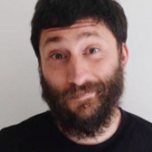
Marcos Fontela
Oceanographer and biologist passionate about the carbon cycle in a changing ocean. Early career chemical oceanographer specialized in biogeochemistry and large-scale processes in the Atlantic Ocean, with a focus in the Iberian Peninsula (Spain/Portugal). Research lines with a strong component of operational oceanography and in situ multidisciplinary data collection, mostly ship-based. Member of ECOPs Spain node. Alumni of Euromarine OYSTER – Orienting Young Scientist Through Euromarine working group to support Early Career Researchers in marine science.
Working Group 8: Create a digital representation of the ocean
Co-Chairs:
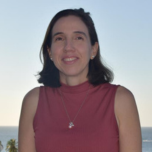
Paula Cristina Sierra-Correa
Since 1996 Paula Cristina Sierra-Correa works at INVEMAR. She was a part of the team that elaborated the environmental coastal zone policy in Colombia. Since 2009, she has an important career in activities related to the information and data Projects into the Flanders UNESCO Trust Fund (FUST), such as: 1) Focal Point for SPINCAM Project “Red de Información del Pacífico Sur en apoyo a la Gestión Integrada de Áreas Costeras (Chile, Colombia, Ecuador, Panamá y Perú)”; 2) active research participation at the Caribbean Marine Atlas (CMA) linked with CLME+ and south-south cooperation with Africa (ACMA Atlas); 3) Since 2014 she is a Coordinator of RTC into OTGA Strategy of IOC/IODE/UNESCO; 4) She was a part of the Editorial Board for the Global Ocean Science Report II lead by IOC/UNESCO; as well as, 5) part of the Clearing House Mechanism, now OIH/ODIS for Latin-American and Caribbean Region. Since 2012, she is the Secretary ad hoc of the Board of the Directors at INVEMAR. Currently, she is a leader of GEF project “Conservation and Sustainable Use of the Ciénaga Grande de Santa Marta, Colombia 2023-2028”. Also, she leads a European Union Action on mangroves, seagrasses and local communities at the Caribbean 2017-2023 (MAPCO initials in Spanish). From the other side, she participated in the implementation of Colombian coastal zone policy with elaboration, execution and coordination of more than 30 research projects (at least 5 international projects in Latin America). Author of more than 20 scientific publications. Technical and administrative leader of research team with at least 40 people. She has been part of the official Country Delegations to the United Nations Conference on Oceans, the Conference of the Parties to the Ramsar Convention on Marine and Coastal Wetland and the Climate Change Convention.
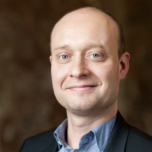
Jan-Bart Calewaert
Jan-Bart Calewaert trained as a bio-engineer in cellular and genetic biotechnology (University of Ghent, 2001). After working for a major agrochemical company for a short while, he returned to study, completing an additional Masters in Marine Environment Management from the Free University of Brussels and University of Antwerp (2004). Since then, Jan-Bart has been coordinating a range of multidisciplinary research projects, initiatives and science policy advisory bodies in support of marine research, sustainable management of marine and coastal environments, and related policy frameworks at national, regional and global level. For more than six years at the European Marine Board Secretariat, Jan-Bart coordinated foresight and policy activities across a range of marine issues, before establishing the Secretariat of the European Marine Observation and Data Network (EMODnet) in 2013 to coordinate its activities, in support of the EC Directorate‐General for Maritime Affairs and Fisheries (DG MARE). In 2017, Jan-Bart co-founded Seascape Belgium, leading a professional team of dedicated marine science and data specialists, securing and managing funds for multi-partner collaborative marine knowledge projects and initiatives at national, European and international level. Since the start of the Decade of Ocean Science for Sustainable Development Jan-Bart has been supporting its progress, among others as co-chair of the Decade’s Data Coordination Group (DCG) which has produced the first version of the Decade Data and Information Strategy released in May 2023 (https://unesdoc.unesco.org/ark:/48223/pf0000385542). Since June 2023, Jan-Bart has taken on a new assignment as Lead Manager of the Decade Coordination Office (DCO) on Ocean Data Sharing (ODS) to establish the DCO on solid grounds, support the Decade actors on data and information sharing related challenges and opportunities and secure funding for the further growth and evolution of the DCO. He looks forward to establish the DCO and drive the development of the data sharing component of the digital ecosystem needed to support the successful implementation of the Decade’s ambitions.
Expert Members:
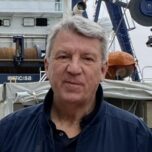
Dick Schaap
As MSc Coastal Engineering, Dick started his career in 1980 working as project engineer in Rijkswaterstaat North Sea Directorate (Netherlands Public Works Department), and continued since end 80s as Managing Director of MARIS foundation and later also MARIS company, as a spin-off from the earlier governmental MARIS project aimed at improving overview and access to marine data. As such he has extensive experience in coordination of many national and EU projects on marine data management infrastructures. He is a true European expert, both in a technical and an organizational sense, organising and managing cooperations on a transnational scale. He is co-founder and technical coordinator of SeaDataNet, the Pan-European network of NODCs. He also has major involvement in the conception and deployment of EMODnet as a leading European infrastructure for marine data products, and functions as technical coordinator of both EMODnet Bathymetry and Chemistry, as coordinator of EMODnet Ingestion, and as partner in EMODnet Physics. He also has been technical coordinator of the ODIP 1 and 2 projects, standing for Ocean Data Interoperability Platform, bringing together leading MDM infrastructures from Europe, USA, and Australia. Moreover, he is technical coordinator of the Horizon Europe Blue-Cloud 2026 project, next to participating to several other EU projects, including several on FAIRness, data interoperability, smart infrastructures, and the European Open Science Cloud (EOSC).
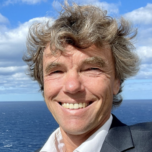
Martin Visbeck
Martin Visbeck is head of research unit Physical Oceanography at GEOMAR Helmholtz Centre for Ocean Research Kiel and professor at Kiel University, Germany. His research interests revolve around ocean’s role in the climate system, ocean circulation, upwelling systems, integrated global ocean observation, digital-twins of the ocean and the ocean dimension of sustainable development. He is deeply involved in the UN Decade of Ocean Science for Sustainable Development (2021-2030) and promoting sustained ocean observations and Digital Twins of the ocean. He serves on a number of national and international advisory committees including member of the Governing Board of the International Science Council (ISC), Joint Scientific Committee of the World Climate Research Programme (WCRP), Research Board of the World Meteorological Organization (WMO), leadership council of the Sustainable Development Solutions Network (SDSN), and past member of the Interim Decade Advisory Board for the UN Decade of Ocean Science Decade for Sustainable Development 2021-2030 and the EU ocean mission board assembly. He was elected fellow of the AGU, AMS, TOS, ISC and the European Academy of Sciences.
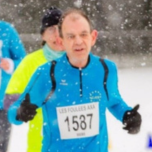
Iain Shepherd
Iain Shepherd is an active senior in the European Commission’s Directorate General for Maritime Affairs and Fisheries. A physics graduate, he worked for many years at the Commission’ Joint Research Centre supporting EU policy with science on issues such as nuclear safety, humanitarian aid, demining, fisheries management and control and (prevention of) weapons of mass destruction. Since moving to the Directorate General for Maritime Affairs and Fisheries he has contributed on issues such as marine environmental and economic data, marine litter, investment in the blue economy, climate change and (lately) ocean observation.
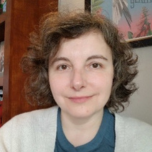
Véronique Jégat
Véronique Jégat is Senior Geo-Data engineer at Fugro. She has over 20 years’ experience in hydrography covering a wide range of applications: remote sensing, multibeam and lidar data acquisition processing, nautical charting and capacity building. Based in the Toronto area, she currently leads earth-observation projects for marine applications. She has an Engineering degree (Master of Science eq.) from ENSTA Bretagne (FIG/IHO/ICA S-5 Category A).

Alain Arnaud
More details to come.
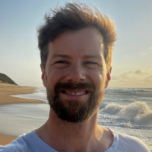
Gustav Kågesten
Gustav Kågesten is Director of Data at HUB Ocean, a non-profit foundation which work to unlock global ocean data for a healthier ocean. With a background in environmental engineering and ocean science, Gustav has 15+ years’ experience from private and governmental sectors in ocean geospatial data. His specific skills include seafloor habitat mapping and ecosystem based cumulative impact assessments in diverse contexts globally, realizing the need for open data in ocean governance. He recently co-led an international coalition through the Nairobi convention, developing a science to policy tool “WIO Symphony” for Marine Spatial Planning in the Western Indian Ocean.
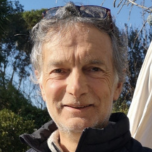
Marc Taconet
Marc Taconet is the Team Leader of the Information Management and Knowledge Team at FAO’s Fisheries and Aquaculture Division, in Rome Headquarters. With an education background of agronomic engineer specialized in fisheries, his career spans from 15 years of appointments in the Caribbean, West Africa, Western Indian Ocean and North Africa as biostatistician and GIS expert involved in capacity development activities, to 24 years of various responsibilities in FAO’s Fisheries and Aquaculture Department (Rome), including Head of the Statistics and Information Branch, leading FAO’s Fisheries Global Information System (FIGIS), Secretary of the Fisheries and Resources Monitoring System (FIRMS) Partnership, interim Secretary of the Coordinating Party on Fishery Statistics (CWP) during years 2015-2019, Chair of the iMarine Board, and alternate focal point for SDG Indicator SDG14.4.1.
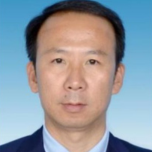
Ren Xingyuan
Master’s degree in computer science, the chief of Science and Technology Planning and Management Division of NMDIS. Mainly engaged in marine information engineering design and construction, cloud computing architecture design and information security, information system development and integration, international cooperation related work. In recent years, as the lead of several national level projects, fruitful achievements have been made in the demonstration and construction of smart ocean engineering, top-level design of marine informatization, construction and management of ocean information networks, and construction of ocean cloud computing platforms.
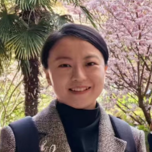
Sun Miao
PHD in geographical information system, foreign affairs management post of NMDIS, research interests including marine data mining, sharing and application. Participated in the National key research and development project ‘the research and development of Marine big data analysis and forecasting technique’ and the project “the development of ODINWESTPAC system” within the IODE framework.
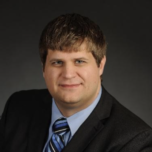
Mike Smit
Dr. Mike Smit studies the intersection of people, information, and technology, drawing on information and computer science to explore how we use emerging technology to benefit people, organizations, and society. Much of his recent work is on ensuring ocean, environment, and climate data is available, accessible, and usable. He is the Deputy Scientific Director for the Ocean Frontier Institute, the principal for the Atlantic Regional Association of the Canadian Integrated Ocean Observing System, and recently was one of the leads in developing the Transforming Climate Action proposal. He is the acting Dean of the Faculty of Management at Dalhousie University, and an award-winning interdisciplinary scholar and instructor.
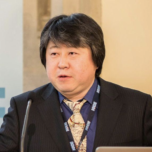
Toru Suzuki
Dr. Toru Suzuki is a director-general of Marine Information Research Center, Japan Hydrographic Association. His scientific background is physical oceanography, and his work focuses management, rescue and quality control for oceanographic data and information with nearly 25 years’ experiences. He is member of several steering groups of IODE of UNESCO/IOC and also member of Technical Committee on Data Exchange of North Pacific Marine Science Organization.
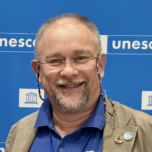
Steve Hall
Steve Hall has worked in the ocean science, technology and policy since 1990 when he joined the UK Natural Environment Research Council to work on the World Ocean Circulation Experiment. By the late 90s he was managing the Autosub AUV science missions programme, based at what is now the National Oceanography Centre. His work focused on sustained ocean observing, robotic systems, risk management for deep ocean moorings and schools liaison until he moved into Policy in 2006. He drafted position papers & responded to government consultations on areas ranging from decommissioning nuclear submarines and safe AUV operations to regulating scallop dredging, development of marine renewables, fisheries reform and marine spatial management. He joined the UK delegation to UNESCO-IOC, becoming Head of Delegation in 2013 & elected as a Vice Chair of IOC in 2015. In that role he was involved in IOC input to development of High Seas policy at the UN, and the formation of the UN Ocean Decade. In 2017 he moved into the private sector as CEO of the Society for Underwater Technology, in 2021 as CEO Pembrokeshire Coastal Forum & Marine Energy Wales, in 2022 becoming a private consultant working primarily for the Nippon Foundation / GEBCO Seabed 2030 project and clients in marine technology, policy and governance. Steve is a Fellow of IMarEST and SUT, a Chartered Marine Scientist, and a member of the Marine Technology Society, Challenger Society for Marine Science & Scottish Association for Marine Science. He’s a certified drone operator and has filmed footage for clients including the New York Times in Greenland, and archaeology contractors in Wales.
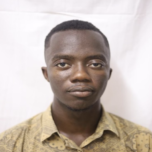
Peter Teye Busumprah
Peter Teye Busumprah is the Node Coordinator for Early Career Ocean Professional (Ghana Node) (UN OCEAN DECADE). I currently had a studentship at the International Association of Geodesy of (IUGG) (Germany) and Association for the Sciences of Limnology and Oceanography (Texas, USA) who is working towards the UN Ocean Decade Challenges 8&9 to create a digital representation of the ocean & skills, knowledge and technology for all. Peter Teye Busumprah is a member of the International Association of Hydrological Science of (IUGG)(Germany), American Fisheries Society (USA), African Network of Deep-water Researchers and Global Ocean Observation System. His university certificate and additional certificates are narrowed to Fisheries, Marine, Aquaculture and Information Technology (I.T). Peter Teye Busumprah is currently affiliated with the Ministry of Fisheries and Aquaculture Development (Government of Ghana) and is a student of National Aquaculture Center (GHANA). Peter is highly motivated and conscientious in computing and simulations using ESA SNAP image processing tool, Programming, Website development, Copernicus (Satellite imagery), Hacking, Remote sensing and Data analysis. He makes a conscious effort towards obtaining new skills and self-development.
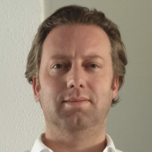
Gerben J. de Boer
Dr. Gerben J. de Boer has over 20 years of experience in marine and coastal information systems. After graduating as a hydraulic engineer, he obtained his PhD in coastal oceanography from Delft University of Technology. For 12 years, he worked at research institute Deltares as an expert consultant on remote sensing, 3D numerical modelling and data management. Funded by the Dutch Building with Nature consortium, he co-founded the OpenEarth community to spread the use of open standards, open source tools to enable multidisciplinary data sharing. 2010-2015 he was a member of the MODEG marine data export group to the European Commission that advised on EMODnet; currently he is member of the successor expert group MKEG from an industry perspective. In 2014, Gerben joined Van Oord, a marine contractor for offshore energy, dredging and coastal climate adaptation. At Van Oord he established the Datalab, which he grew to an internal department of 20 FTE that develops innovative apps to turn data into value. Since 2023 he is R&D and innovation manager at Van Oord.
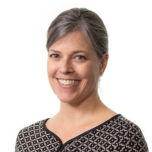
Kate Crosman
Kate is the André Hoffman Fellow in Big Data with the World Economic Forums’s Ocean Action Agenda and the Norwegian University of Science and Technology’s Department of Marine Technology, based in Trondheim, Norway. Her current research focuses on the use of big data technology in governance and decision-making for oceans and coasts, specifically how big data technology and related processes interact with stakeholders’ perceptions and trust judgements. Related prior work examines social equity in ocean governance, and stakeholder knowledge, attitudes, incentives and decision-making in complex governance of oceans and climate. Kate’s work draws from public policy, political science, collaborative management, common pool resources, organizational sociology, human cognition and behavior, and risk and sustainability studies, and is grounded in interdisciplinary collaboration. She works with both qualitative and quantitative methods, and her field experience varies from co-creating social-ecological systems research with the Quinault Indian Nation on Washington State’s outer coast to participant observation of big data ocean monitoring technology deployment in Svalbard, Norway. Kate holds a PhD in Public Policy and Management from the University of Washington and a MSc in Natural Resources and Environment from the University of Michigan.
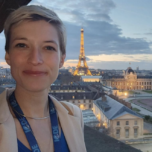
Ann-Christine Zinkann
Ann-Christine Zinkann joined NOAA in 2020 as a Sea Grant Knauss Fellow and has been continuing her work as a Project Specialist at UCAR CPAESS and NOAA’s Global Ocean Monitoring and Observing Program, supporting the programs ocean observing goals in the World Meteorological Organization (WMO), Intergovernmental Oceanographic Commission (IOC) Global Ocean Observing System; Observations Coordination Group; All-Atlantic Observing System; the Ocean Decade and data. Ann is representing Early Career Ocean Professionals (ECOP) on the two Ocean Decade programs Ocean Observing Co-Design and Digital Twins of the Ocean, serves as a member on the Observations Coordination Group under GOOS and on the newly formed Advisory Group for Oceans in WMO. She holds a PhD from the University of Alaska Fairbanks in Marine Biology and previously worked on polar food web dynamics using stable isotope analysis and food web modeling.
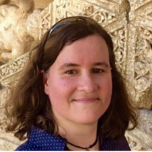
Tanya Haddad
Tanya Haddad is an Information Systems Specialist at the Oregon Coastal Management Program, with a background in Biology/Environmental Science and Computer Science. She holds a Masters of Coastal Environmental Management from Duke University, and is an experienced Data Manager with a focus in Coastal Management, Marine Spatial Planning, and technical implementations. Tanya is involved in outreach related to data, information and knowledge sharing both locally as the lead Oregon Coastal and Marine Framework Implementation leader, and regionally as a technical lead on the West Coast Ocean Data Portal. She also currently serves as a Co-Chair of ICAN, the International Coastal Atlas Network, a project of the IODE.
Working Group 9: Skills, knowledge and technology for all
Co-Chairs:
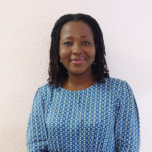
Edem Mahu
Edem Mahu is a Senior Lecturer of Marine Biogeochemistry at the University of Ghana. Her teaching and research span paleoclimatic and environmental reconstructions of marine ecosystems, marine pollution, conservation, and nature-based approaches to mitigating climate-induced coastal hazards. She currently leads the Oyster Reef Restoration and Conservation for Livelihood and Ecosystem Protection, and Mangroves as Nature-based Solutions to coastal hazards in Ghana projects. She is a fellow of the African Union/European Union ARISE Programme and the Royal Society FLAIR programme. She is a board member of the Partnership for Observation of the Global Ocean. She is heavily involved in ocean science capacity development activities within Africa and has served as a co-organizer of the Coastal Ocean summer school in Ghana and Nigeria (COESSING) since 2015. She serves on the boards of four (4) UN Ocean Decade-endorsed programmes, namely, CoastPredict, the Global Ocean Corps and Conveyor, EQUISEA, and the Ocean Best Practices System. Through the support of the National Geographic Society and other partner organizations, she is leading the University of Ghana to host the West Africa Marine Science Symposium. The symposium which aims to Foster Partnerships to Advance Ocean Science in West Africa is the first of its kind to be held in the Sub-region and has been endorsed as an activity of the Decade. Mahu is the recipient of the 2022 American Geophysical Union (AGU) Africa Award for Research Excellence in Ocean Science. She is passionate about mentoring the next generation of marine scientists in Africa and creating opportunities for early career ocean professionals on the continent.
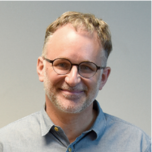
Brian Arbic
Arbic is a former US Peace Corps volunteer and a physical oceanographer. His group’s research, funded by NASA, NOAA, DOE, NSF, and the Office of Naval Research, focuses on tides, internal gravity waves, mesoscale eddies, and the role of the ocean in weather and climate. Arbic founded the Coastal Ocean Environment Summer School in Ghana (COESSING), which has been running for one week every year since 2015, and the Global Ocean Corps and Conveyor, a global effort to increase the number of oceanographers from less-resourced nations. The COESSING and Ocean Corps teams include many early career scientists and scientists from less-resourced nations. COESSING is an endorsed project of the United Nations Ocean Decade for Sustainable Development, and Ocean Corps is an endorsed global programme of the Decade.
Expert Members:
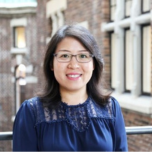
Zhen Sun
Zhen Sun, Associate Professor (Research/Ocean Sustainability, Governance & Management), WMU-Sasakawa Global Ocean Institute, World Maritime University.
Zhen’s main research interests include law of the sea, international regulation of shipping, gender equality in ocean governance, climate actions and the protection of the marine environment. She has contributed to the delivery of the MSc and the PhD Programme in Maritime Affairs through substantial teaching and supervision commitments. Zhen has contributed to the editorial work of a couple of book projects and published a number of book chapters and journal articles on various topics on the law of the sea and ocean governance. At WMU, Zhen has played an active role in the launch and execution of a number of high-level research programmes, including serving as Co-Principal Investigator (PI) for the Empowering Women for the United Nations Decade of Ocean Science for Sustainable Development Programme. The Empowering Women Programme has being endorsed as a Decade Action (Programme Level) by the IOC/UNESCO.
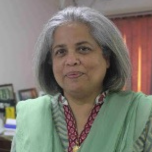
Samina Kidwai
Dr. Samina Kidwai is the Current Director General, National Institute of Oceanography, Ministry of Science & Technology, Government of Pakistan. Marine Scientist (Biological Oceanography) for over 29 years, 26+ years at NIO with more than 15+ years of post-doctoral experience. MSc. Marine & Fisheries Sciences (University of Aberdeen, Scotland), PhD in Marine Biology, University of Karachi, Post-doctoral Training in Observational Oceanography, Bermuda Atlantic Time-Series, BIOS, Bermuda. Research interests in Biological Oceanography. Master in Business Administration, IoBM, specialization in HRM. Interested in National Capacity Building & Strengthening in Ocean Sciences for Pakistan, and Pakistan preparedness for International programs. Involvement in International Scientific diplomacy and national coordination for progress in oceanography. Has been a visiting scientist in Danish Institute of Fisheries Research DFRIS (now DFU), Rosenstiel School of Marine and Atmospheric Research (RSMAS), Miami, USA. Won Fellowships for Post-doc training and DIFRES through open International competition. Represented Pakistan in Bangladesh, Belgium, Bermuda, China, Denmark, India (SAARC), Italy, Kuwait, Lebanon, Malaysia, Norway, Oman, Sri-Lanka, Thailand, United Kingdom, United States of America. Member of National Committee of SCOR (Scientific Commission of Oceanographic Research) since 2005, member of the UNESCO IOCINDIO, in personal capacity member Capacity Building Task Team(CBTT) of IMBeR (Integrated Marine Biogeochemistry & Ecosystem Research) since 2010, Member of the Executive Council of IOC/UNESCO (PAKISTAN-Group IV). Recipient of several International Prizes including the YOUNG SCIENTIST CERTIFICATE OF COMMENDATION IHDP, IGBP,WCRP, Washington, USA for her publication. Coordinator from Pakistan side for two International collaborations of NIO with Chinese research institutions. More than 60 scientific publications (scientific journals/peer reviewed with impact factor, book chapters, project/technical reports, etc.) and more than 200 days of sea time experience. Team lead in many research and consultancy projects of NIO. Project Director of two Public Sector Development Project, GOP, have experience of Project Management Cycle and Public Procurement.
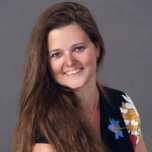
Evgeniia Kostianaia
Evgeniia is the Global Coordinator of the UN Ocean Decade endorsed Programme for Early Career Ocean Professionals (“ECOP Programme”) and Consultant at the IOC/UNESCO. The goal of the Programme is to support Early Career Ocean Professionals in their capacity development and work by providing meaningful networking, training, professional development, funding opportunities and creating capacity for cooperation and knowledge exchange. Evgeniia is a marine environmental manager with research interests in marine pollution, ocean clusters, and connections between climate change and food security, and impacts of climate change on coastal tourism and railway infrastructure. Evgeniia also acts as the Moscow Focal Point of the International Ocean Institute (Malta). She is a member of a working group on sustainable development of the Caspian Sea region and the Caspian Integrated Scientific Network (CASPISNET). Co-editor of a two-volume book “Plastics in the Aquatic Environment” (Springer, 2022).
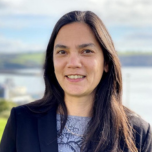
Sophie Seeyave
Sophie Seeyave is the CEO of the Partnership for Observation of the Global Ocean (POGO), based at Plymouth Marine Laboratory in the UK. Her scientific background is in phytoplankton ecology, with a PhD on Harmful Algal Blooms in upwelling systems, from the University of Southampton. Since 2009, she has been involved in scientific programme management, initially working for the Surface Ocean Lower Atmosphere Study (SOLAS). Sophie provides leadership to POGO, as an international organisation and UK charity, and oversees the work of the Secretariat, a team of four other staff members located in the UK and Portugal. The POGO membership consists of 55 oceanographic research institutions in 29 countries, working together towards global ocean observations. POGO’s mission is articulated around 3 pillars: innovation, capacity development and outreach/advocacy. POGO is a Decade Implementing Partner, and one of its objectives in this context is to help increase participation of developing countries in the Decade. POGO is also the lead organisation for the Ocean Biomolecular Observing Network (OBON), a Decade-endorsed programme. Sophie contributes to the oversight of scientific programmes such as the International Quiet Ocean Experiment (IQOE), OBON, and previously the GEO Blue Planet Initiative, for which she served as Co-Chair from 2016 to 2020. She also represents POGO within intergovernmental organisations, such as the Group on Earth Observations (GEO), the Intergovernmental Oceanographic Commission (IOC/UNESCO) and the United Nations Framework Convention on Climate Change (UNFCCC).
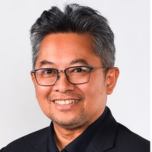
Aidy M Muslim
Aidy M Muslim is a full professor at the Institute of Oceanography and Environment, Universiti Malaysia Terengganu, Malaysia. Aidy is involved in various research on the application of space technology and data management, especially in remote sensing, GIS and related technologies. His research group have received funding for international and national bodies in various sectors especially national resources, environmental and disaster management, and strategic planning. Aidy established himself internationally, especially in the Intergovernmental Oceanographic Commission of UNESCO. Since 2015 he is the Co-Chair of the OceanTeacher Global Academy and member to various international steering groups amongst them the IOC Quality Management framework, IOC Group of Experts On Capacity Development (GE-CD) and IOC Ocean Data and Information System (ODIS).
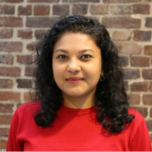
Sarah Mahadeo
Research Fellow. Sasakawa Global Ocean Institute, World Maritime University, Malmo, Sweden. Sarah is a spatial planner with a background in Biology, Urban Planning, Marine Spatial Planning (MSP) and Blue Economy. She currently works as a researcher on MSP in the Eastern Caribbean on themes including stakeholder engagement, transboundary planning, land-sea interactions and developing MSP in small island developing states (SIDS). Prior to research, she worked in planning practice with the state in her native Trinidad and Tobago. She has also worked with the MSP Global initiative of the IOC-UNESCO for capacity development activities on MSP and Blue Economy and as editor for a series of policy briefs related to MSP on a range of topics including Climate Change, Ocean Governance, Blue Economy and Capacity Development. Sarah is also experienced in planning and facilitating workshops on Blue Planning, participating in training events for the Caribbean SIDS and countries of the Western Indian Ocean.
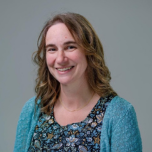
Pamela Buchan
Research Fellow, University of Exeter, UK. Buchan is a marine social scientist and activist scholar working at the interdisciplinary and multisectoral interface of humans and the ocean. Buchan won the ESRC Impact Prize 2022 and leads the Ocean Decade endorsed activity Co-conceptualising Marine Identities. As a researcher, Buchan is focused on understanding motivations of marine citizenship and democratising marine governance, as a means to tackle Challenge 10 of the UN Ocean Decade. With a background in marine biology and coastal zone management, her current research spans human geography, environmental psychology and environmental law, amongst other disciplines. To support this mission, Buchan also serves in public office with Devon & Severn Inshore Fisheries and Conservation Authority and Cattewater Harbour Commissioners, which respectively manage regional inshore fishing in marine protected areas and the commercial port of Plymouth, UK.
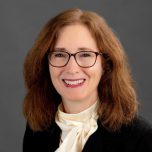
Kristina Alexander
Kristina Alexander is the Endowed Chair for Marine Policy & Law at the Harte Research Institute for Gulf of Mexico Studies (HRI) in Corpus Christi, Texas. She has practiced natural resources law for over 20 years, including with the Congressional Research Service in Washington, D.C., and with Sea Grant. Currently, she focuses on communicating legal matters related to fishery management, coastal resiliency, desalination, and other marine issues, via teaching and in the HRI publication Third Coast Lines.
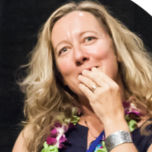
Juliet Hermes
Juliet leads a team focusing on observations, modelling and research of the marine environment around southern Africa as part of the South African Environmental Observation Network. Juliet is also a Professor at the University of Cape Town and the Nelson Mandela University. She has significant experience with developing and managing national, regional and international multidisciplinary, ocean observations. Her passion is in fostering regional and international collaborations as well as capacity development. Juliet focuses attention on development through ensuring knowledge generation and sharing, as well as growing a diverse cohort of marine scientists. Juliet has been part of the CLIVAR Indian Ocean Regional Panel, GEO Blue Planet, the Indian Ocean Rim Association, GCOS and the African Group Negotiators Experts Support. She supports global ocean observing systems through the GOOS Observation Coordination Group, as well as their standards and best practices through the IOC/GOOS Ocean Best Practices Group.
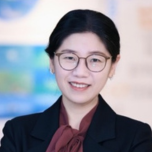
Xin Lin
Associate Professor of College of Ocean and Earth Sciences, Xiamen University.
Xin is a marine biologist. Her research, funded by National Natural Science Foundation of China and National Key Research and Development Program of China, focuses on marine biodiversity, phytoplankton physiology and ecology, harmful algal bloom, coral symbiosis, and blue carbon ecosystem. Xin is the committee member of 70.8 Media Lab, which is the first marine media created jointly by top research institutions and authoritative media in China, and dedicated to become an innovative platform for the dissemination of marine science knowledge, cultivation of science talents and transformation of scientific and technological achievements. Xin is the IPO member of the COASTAL-SOS project, that is an endorsed project of the United Nations Ocean Decade for Sustainable Development. This initiative articulates a novel approach of cross-sectoral partnership in designing, conducting and delivering “the science we need for the ocean we want. We are partnering with multiple stakeholders, including leading academic institutions, industry enterprises, and non-profit foundations and NGO/IGOs, from Eastern Asian countries to effectively co-design the implements of the project.
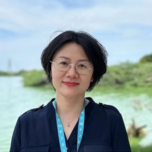
Li Li
Li is the Director of International Cooperation Division at the First Institute of Oceanography (FIO), Ministry of Natural Resources, in China. She is experienced in organizing international training events, activities and conferences, as well as managing and coordinating international scientific projects. She is also a marine geochemist and her research interest is in biogeochemical cycling processes of trace elements in marine system. She has led a number of projects founded by CNSF, COMRA, and MOST in China. She is currently the representative of China National Decade Committee.
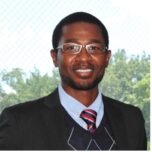
Elígio de Raús Maúre
Oceanographer with extensive oceanographic cruise experience and currently working on development of geospatial solutions in Google Earth Engine (GEE). A former researcher of Northwest Pacific Region Environmental Cooperation Center (NPEC), a non-profit organisation in Toyama, Japan, where he spent 4+ years working on the application of satellite imagery to water quality monitoring and to the promotion of ocean literacy through training delivery in satellite remote sensing data analysis using Google Earth Engine and Python. He contributed the Global Eutrophication Watch, a GEE app for eutrophication monitoring using satellite imagery. It is the first of its kind and was developed within the “Marine Coastal Eutrophication” project as part of the initiative to offer cost-free access to GEE by the Group on Earth Observations (GEO) to increase the use of Earth Observations to address the world’s greatest challenges. Since 2022 he has been leading a group of Early Career Ocean Professional (ECOPs) across Africa on the development of training resources in ocean colour data analysis to help the African ECOPs better address Ocean Decade challenges. Holds a PhD in environmental studies (oceanography) and postgraduate degree in clinical environmental studies from Nagoya University-Japan. His PhD research focused on the impacts of mesoscale eddies on phytoplankton productivity.
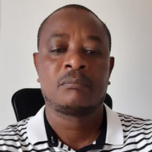
Cosmas Nzaka Munga
Cosmas Nzaka Munga is a Senior Lecturer at Technical University of Mombasa (TUM) serving as the Chairman in the Department of Environment and Health Sciences. Under this department, for the past 4 years since 2019, he has been managing 5 academic programs: Public Health, Community Health, Environmental Sciences, Nutrition and Dietetics, and Marine and Fisheries with a total of 13 fulltime academic staff and at any one time a total of 8 part time lecturers. For more than 18 years he has been working on the ecology, biology, stock assessment of both artisanal and semi-industrial fisheries along the Kenya coast. Specifically to answer research questions on the exploitation status of commercial fishery species of finfish and shellfish in promoting sustainable utilization. This is in addition to the application of Ecosystem Approach to answer research questions related to environmental sustainability and promotion of human wellbeing.
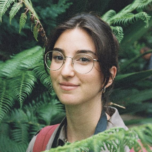
Gail Sant
Gail Sant is a Maltese woman who is personally and professionally motivated by a lifelong love for the ocean. She has a background in biology and global ocean and climate policy and works as the Programme Officer for the Nippon Foundation-University of Edinburgh Ocean Voices Programme. In addition, Gail works on environmental projects at various organizational levels through her independent consultancy. Her experience includes working with UNFCCC, Earth Negotiations Bulletin, The Conservation Collective, and more. Throughout her work, Gail finds that she always ‘returns to the grassroots.’ This notion stems from a deep appreciation and an actionable recognition that the communities at the forefront of ocean and environmental challenges need to be the leaders of larger global movements. During her time working and the many hours she spends outdoors, Gail seeks to learn more about humanity’s relationship with nature and how our systems can reflect the belief that there is no true separation between the two groups. She hopes that through her work, she can be a small part of the paradigm shift towards an equitable, healthy planet for all.
Working Group 10: Change humanity’s relationship with the ocean
Co-Chairs:
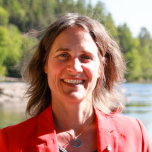
Diz Glithero
Diz’s work as an interdisciplinary educator, social science researcher, and project leader specializes in ocean, climate, and sustainability learning and civic engagement. Through 20 years of experience as an educator, researcher, Adjunct Professor (University of Ottawa), and consultant, Diz has led several regional and national projects. In 2017, Diz served as the Education Lead for Canada C3, a 150-day ship-based expedition from Toronto to Victoria via the Northwest Passage. Since 2018, Diz has served as the National Lead of the Canadian Ocean Literacy Coalition, co-leading the Understanding Ocean Literacy in Canada study (2019-2020), co-authoring Land, Water, Ocean, Us: A Canadian Ocean Literacy Strategy (March 2021), and co-founding Ocean Week Canada. Diz serves as one of Canada’s Ocean Decade Community of Champions. Internationally, Diz co-leads the Ocean Literacy Research Community (OLRC) initiative, as well as serving as a Steering Committee member of the IOC-UNESCO-led Ocean Literacy With All Program, an expert on the All-Atlantic Ocean Research and Innovation Alliance’s Ocean Citizen Awareness Working Group, a Programme Committee member for the UN Ocean Decade 2024 Conference, and co-chair of Working Group 10 for the Ocean Decade Vision 2030 process. Diz is mom to an amazing son and daughter, and is an avid skier, paddler, open water swimmer, and reader.
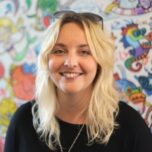
Nicola Bridge
Nicola Bridge is the Head of Ocean Advocacy and Engagement at the Ocean Conservation Trust (OCT). Nicola is a Conservation Biologist with over 17 years of experience in both formal and informal environmental education and engagement and science communication, specifically linked to the marine environment. Nicola has dedicated her career to supporting people to connect with the Ocean, accessing the benefits it provides, whilst simultaneously fostering their own understanding of how they can help support a thriving Ocean themselves. Through her work, many thousands of people have been able to experience the Ocean first-hand. Nicola is a member of the Defra Ocean Literacy Working Group and a co-founder of the We Are Ocean network. Nicola is President of EMSEA (European Marine Science Educators Association), leading the organisation in its mission to act as a hub for the European marine education community, promoting Ocean literacy across society and working with scientists, teachers, policy makers and the public. She is passionate about changing the narrative about what constitutes conservation, recognising that everyone on the planet is responsible for the health of the natural world that sustains us, protecting habitats and species in many cases is just a question of human behaviour. Nicola also, loves the Ocean!
Expert Members:
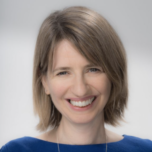
Louisa Hooper
Louisa has had a long and varied career at the Foundation and since 2010 has pioneered programmes under the UK Branch’s environmental funding pillar. In recent years, this has focused on Valuing the Ocean – supporting new networks and approaches to promote effective engagement on marine protection in collaboration with colleagues in Portugal and the conservation sector. Louisa was instrumental in the establishment of the Marine CoLABoration group. She sits on a number of advisory groups including for the UN Decade for Ocean Science and Sustainable Development and the UK’s Ocean Literacy Working Group. Louisa was Secretary to the Trustees for the Saint Sarkis Charitable Trust (also created by Calouste Gulbenkian) from 2003-13 and has a background in communications, publishing and education. Early work for the Foundation included production of the art and environment anthology, Wild Reckoning, and of Saudade: An anthology of fado poetry with original translations by the leading names in English poetry today. Past roles include teaching in Japan and working for the Japan National Tourist Organisation. Louisa studied English at Cambridge and is a published poet. She has been a judge for the Koestler Awards and edited Brittle Star magazine for new writers for many years.
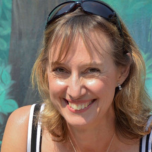
Judy Mann-Lang
Judy is passionate about the oceans. She started her career with the South African Association for Marine Biological Research (SAAMBR) in Durban in 1992, where she held various roles including – Director of Education, uShaka Sea World Director, the first woman Chief Executive Officer of SAAMBR and Conservation Strategist. She is now Executive – Strategic Projects with the Two Oceans Aquarium Foundation in Cape Town. She holds a Master’s Degree in Ichthyology, a Bachelor’s Degree in Business Administration and PhD in Culture and Environmental Learning from the University of Queensland in Australia. She is President of the International Zoo Educators Association (IZE) and serves on the Council of the World Association of Zoos and Aquariums (WAZA).
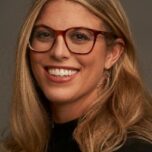
Carlie Wiener
Dr. Carlie Wiener is the Director of Communications and Engagement Strategy for Schmidt Ocean Institute. In this leadership role, she has drawn international attention to the science completed through the institute’s ship-based program and expanded global partnerships. Dr. Wiener has more than fifteen years of experience in marine science communications working on strategy, research, community outreach, evaluation, and professional leadership. She received her bachelor’s degree magna cum laude in communications and her Master’s and Doctorate degree in environmental studies from York University in Toronto, Canada. Her previous research has focused on integrating natural and social science for marine management, environmental education, experiential learning, and marine mammal tourism. Carlie also hosted the monthly marine science podcast, All Things Marine for six years, and has taught several courses on communicating ocean sciences for the public. She has more than twelve peer-reviewed publications spanning research in ecosystem based management, qualitative analysis, environmental impact, and science education.
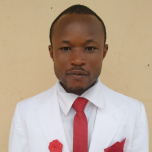
Achare Elvis Ayamba
With a master’s degree in Fisheries and Aquatic Sciences, Achare Elvis Ayamba is an Early career Ocean Professional (ECOP) with over 06 years of experience in the conservation of freshwater, coastal and marine ecosystems, working with Indigenous People and Local Communities (IPLC), Youth, and young Women. He is the founder of Environment and Food Foundation (E2F), with mission to minimize and reduce marine, coastal and freshwater ecosystems degradation and build a future in which humans have the right mindset to live in harmony with nature by using the power of: Education, Activism, Policy advocacy, Circular economy, Research and Conservation. Ayamba is a passionate change maker involved in; Bringing up new approaches to conservation that takes into account IPLC rights, values and cultures, as well as critical youth perspectives on conservation of nature and biological diversity, having an inclusive, diverse and equity space for all actors and promoting an effective co management and equitable governance in marine protected and conserve areas. Ayamba is committed to building a sustainable future for Cameroon and Africa where people and nature thrive, striving on a clear path to sustainable, low carbon, and resilient development. Ayamba has membership in more the 20 international networks and coalitions including: An expert member of Working Group 10 for the Ocean Decade Vision 2030 process of IOC of UNESCO. A member of Global Ghost Gear Initiative (GGGI). A member of Prevent Waste Alliance. Member IUCN commissions of WCPA, CEC and CEM. Member of Africa CSOs Biodiversity Alliance (ACBA). Member of ECOP Africa regional node. Ayamba has equally won 4 outstanding international awards including: Awardee of Commonwealth Youth Award for Excellence in Development Work, Awardee of EE 30 Under 30, Awardee of Top 100 Young African Conservation Leaders and Awardee of Youth Innovation Challenge.
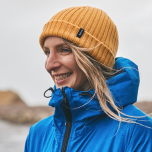
Easkey Britton
Dr. Easkey Britton is a renowned Irish surfer and marine social scientist with a deep love and passion for the sea. Specialising in ‘blue health’ and the interdependencies between oceans and humans, she contributes her expertise on national and international research projects, including the Erasmus+ funded INCLUSEA project fostering greater inclusion for people with disabilities in surfing in Europe. Easkey has published numerous peer reviewed journal articles and is the author of several books on our human relationship with the ocean, including ‘Saltwater in the Blood’ (2021), ‘50 Things to Do By the Sea’(2021), and ‘Ebb and Flow: Connect with the Patterns and Power of Water’ (2023). Her combined expertise as both a professional surfing ambassador and researcher extends beyond academia to applied and action research partnerships and co-creative community-led projects including her role as board member for Save the Waves International; the facilitation of gender-based experiences of blue space in the Middle East; the Seasuit Project, the design of sportswear aimed at creating greater diversity and inclusion for women in watersports.
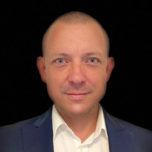
Sebastian Thomas
Dr Sebastian Thomas is a strategic advisor and leading scholar on climate change, blue economy, blue carbon, energy transition, and sustainability science. He works with both industry and academia, and has significant experience across sectors including international development, renewable energy, resources and environment, and education. He is the Director of Blue Praxis, an international consultancy that delivers strategic organisational intelligence and education in the areas of climate change, ocean sustainability, carbon markets, emerging technologies, business transformation and resilience, and environmental policy. He is also the Climate and Environment Lead at QIC – the Queensland Investment Corporation – where he is leading the decarbonisation of QIC’s US$60 billion global investment portfolio. He is an Adjunct Senior Fellow at Curtin University, and a Board Member of the International Sustainable Development Society (ISDRS). Sebastian is a scuba instructor and technical diver, an avid hiker and reader, and dad to two sons and a border collie.
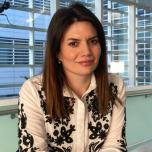
Guadalupe Diaz Costanzo
Guadalupe Díaz Costanzo is the Director of Museums, Exhibitions and Fairs of the Ministry of Science, Technology and Innovation of Argentina and executive director of the Cultural Centre of Science (C3) since 2017. She has been working since 2014 in science outreach and museum exhibits. The exhibition Ocean, which was first released in October 2021 and was developed under her coordination, received the international award from ICOM (International Council of Museums) for “setting an inspirational standard for science museums on how they ought to develop exhibitions and programs in the future”. She is in charge of developing and implementing national public policies on science education and outreach. Among other initiatives, she was in charge of developing the first national award for women scientists in science communication in collaboration with the French Embassy in Argentina and the Blue Schools National Program to encourage schools to work on ocean and environmental topics in their communities. She holds a PhD in physics from the University of Buenos Aires, which included an Erasmus scholarship at the University of Groningen, the Netherlands. In addition, she completed a postgraduate degree in education and new technologies at the Latin American School for Social Sciences (FLACSO). She frequently participates in national and international conferences and meetings on science outreach, science centres and public policies. She has been a consultant for international organizations such as the Inter-American Development Bank and the Inter-Academy Partnership. She is the Argentinean expert representative on Ocean Literacy in the European AANCHOR project. She was recently invited by the Department of State of the United States to participate in the International Visitor Leadership Program.
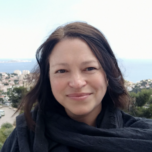
Olga Mashkina
As senior expert of ACTeon with more than 15 years of experience in marine and water economics, policy, (international ocean) governance, and ocean literacy, Olga is leading ACTeon’s marine & ocean activities providing regular support to research and consulting projects for the EC (DG MARE and EG ENV in particular). Olga’s areas of expertise include socio-economic analysis, policy evaluation and impact assessment. In her work, Olga has been also extensively working with engaging different audiences (policy makers, youth, private sector, research, and society at large) in marine related issues. For almost 10 years now, Olga has been focusing on ocean literacy, and marine communication. She coordinated ResponSEAble project www.responseable.eu and since 2020 she has been a coordinator of the EU4Ocean Coalition www.eu-oceanliteracy.eu.
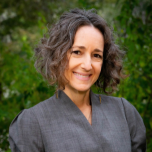
April Peebler
After having left her law practice to ensure her children received a meaningful education wherein real-world problems were addressed, in 2016 April supported her children in starting Heirs To Our Ocean (H2OO) along with 11 other tweens who were concerned about the planet they are inheriting. April stepped into the roles of both Executive Director and Program Director, donating her time in both capacities, and applied the project-based interdisciplinary, real-world-theme focused learning model she had developed in 2010 to H2OO’s programming. H2OO serves youth around the world, on all habitable continents, and April works tirelessly to ensure 4/5 of youth participants come from traditionally marginalized circumstances and backgrounds and that they receive full need-based scholarships to participate in H2OO programming. All H2OO programs have an empathetic leadership foundation, are holistic and comprehensive, connect youth across barriers, and prioritize serving youth who are situated most vulnerably at present. April believes whole-heartedly that the survivability of humanity is dependent upon education shifting away from models that emphasize competitive profit- and status-oriented “success”, or away from “I” and “me”. April is a thought-leader in education for the future, sharing that education that furthers humanity has empathetic leadership at its core, with a focus on “we”, where all youth have opportunity to understand the value of intact life sources on our planet, to realize the human impacts on those life sources today, and to develop real-life skills to effectively navigate what they are inheriting. Most importantly, education must provide intentional opportunity for youth today to collaboratively problem solve the greatest challenges their generation faces, starting in middle school, so that a knowledge base is developed and skills are acquired well before they select their career paths and enter university.
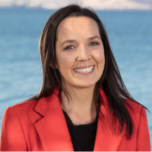
Rachel Kelly
Dr Rachel Kelly is a marine socioecologist and Knowledge Broker at the Centre for Marine Socioecology, University of Tasmania. She oversees the centre’s approach to end-user engagement, and research uptake in the context of informing marine and coastal and climate issues and solutions. She also conducts research in this role. Rachel’s research focuses on human dimensions of sustainability and is predominately inter/transdisciplinary, working with diverse teams to develop sustainable solutions to ocean and climate challenges, including in Future Seas 2030 and the Curious Climate Tasmania and Curious Climate Schools programmes. She has collaborated widely, e.g. as part of the World Maritime University in Sweden, Future Oceans and Coastal Infrastructures (FOCI) Consortium in Canada, iDiv in Germany, NESP Climate Systems Hub, Australian National University, and other international interdisciplinary groups. Rachel has also demonstrated strong leadership as an early career researcher evidenced by recognition as One of the Top 40 Early Achievers in Research and One of the Top 5 in the Social Sciences in Australia. With a strong focus on both theoretical and applied understandings and a highly interdisciplinary approach, Rachel is a strong and keen ambassador for marine sustainability research and practice.
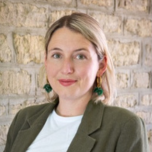
Natalie Hart
Natalie Hart is Director of the Ocean Insight and Strategy Unit at Communications Inc. She provides communications research and strategy for the OneOcean Flotilla, a network of around one hundred ocean organisations across the globe. She is a specialist in the use of communication, narrative and storytelling to combat some of the world’s most complex problems. Natalie has extensive experience designing and delivering behavioural change campaigns across the world, including several years spent in the Middle East and North Africa. As an author, Natalie has a personal interest in the role of literature in affecting social change. She lives in Cornwall, UK with a dog called Slug.
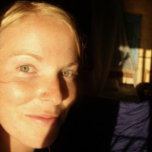
Romney McPhie
Romney McPhie (she/her) is a marine biologist, educator, artist, and keen ocean conservationist and collaborator. She holds a master’s degree in marine biology from Dalhousie University and an undergraduate degree in Environmental Science from the University of British Columbia. As Science Coordinator with the Tula Foundation’s Ocean Decade Collaborative Center for the Northeast Pacific and Hakai Institute, she works alongside a passionate team to support and facilitate co-designed and co-produced knowledge for collaborative solutions to ocean challenges in the Northeast Pacific region. Over the past 20 years, she has had a varied career advancing the recovery of at-risk species, working to better understand and protect biological diversity, and supporting people in the sustainable use of coastal and marine environments. She has worked enthusiastically as a field scientist and expedition diver; a shark biologist for the Canadian Department of Fisheries and Oceans (DFO); an environmental consultant focused on coastal ecosystems and habitat restoration; a regional project coordinator and marine planner for the Marine Plan Partnership for the North Pacific Coast (MaPP); and as senior biologist and species at risk recovery planner for DFO with a focus on large marine megafauna. She currently helps manage the Northeast Pacific Biodiversity Action Network, an Ocean Decade-endorsed transboundary network of ocean practitioners working to advance marine biodiversity knowledge and action in the Salish Sea and beyond. Through this role and others she has experience linking science with decision-making and thrives on bringing people together to co-develop science and outreach for solutions. She is a member of the International Union for the Conservation of Nature (IUCN) Shark Specialist Group North America Group, and also draws whenever she can, lending her pen to science- and conservation- focused projects as often as her day jobs allow.
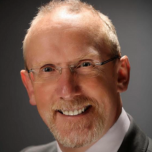
Paul Anderson
Professor Paul Anderson currently holds the position of Dean at the Royal College of Art’s (RCA) School of Design. The RCA leads the table of 200 of the world’s top universities for the study of art and design in the 2023 QS World University Subject Rankings and has held this position for the last nine years. With a senior executive leadership role in higher education, Professor Anderson has an extensive academic and real-world expertise, contributing to design practice and offering consultancy to both industry and the UK government. Internationally recognized for pioneering research in 3D interfaces, haptics, 3D sound, and gesture-based interaction, Professor Anderson has a global reputation. His research’s importance is acknowledged by prestigious entities such as The Ford Motor Company and QinetiQ (previously The British Defence Evaluation Research Agency), resulting in significant collaborative efforts. He has been responsible for personally generating research income of £8.1 million from sources like EPSRC, NESTA, and AHRC and has published more than 69 peer-reviewed books, journals, strategic reports, conference proceedings, and patents on the subject of advanced 3D visualization and interaction research across multiple domains. His research encompasses Real-time Simulation, Design Resilience, Advanced Product Development, Design for Safety, Command and Control, as well as Complex and Critical Systems relating to environments, human anatomy, and complex platforms. Professor Anderson currently serves on the International Advisory Council for Design for Good and is a member of the AidLab Board and Technical Committee (establishing the World’s First AI Powered Design Laboratory with RCA and Hong Kong Polytechnic University (PolyU). He is also responsible for establishing the RCA as a UNESCO Ocean Decade partner supporting NEMO (a New Economic Model for the World’s Oceans) within the School of Design, RCA.
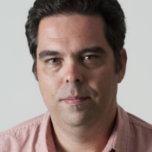
Alexander Turra
I am a Professor at the Oceanographic Institute of the University of São Paulo and coordinator of the UNESCO Chair for Ocean Sustainability. I exercise interdisciplinary and integrated research, focusing on themes such as marine biodiversity, governance, integrated management, marine conservation and environmental impact, climate change, and marine pollution (marine litter). I seek to promote the integration between science and society and promote Ocean Literacy, supporting both formal and non-formal education through the capacity building of teachers and the production of supporting materials. My work also seeks to establish a dialogue with the private sector for technological development and innovation applied to the ocean. I have been working in national (e.g. Ministry of Environment, Ministry of Science, Technology, and Innovation, Inter-ministry Secretariat for the Resources of the Sea, São Paulo State Secretariat for Infrastructure and Environment, BPBES) and international (e.g. GESAMP, UNESCO, UNEP, UNEA, InterAmerican Institute for Global Change Research, Ocean Decade, Regular Process) forums and organizations with multi and transdisciplinary approaches aimed at integrating science and decision-making.
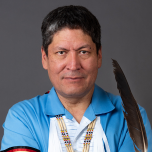
Ken Paul
Ken is a member of the Wolastoqey First Nation in the community of Neqotkuk whose traditional territory is located on the northern Atlantic coast spanning the Canada/US border between Maine, New Brunswick and Quebec including the Bay of Fundy and approaches to the Gulf of Maine. Over the past 11 years, he has held the positions as Fisheries Director with the Assembly of First Nations and the previously with the Atlantic Policy Congress of First Nations Chiefs. Ken has advocated for First Nations regionally, nationally and internationally on all aspects relating to fisheries, aquaculture, ocean protection and aquatic resources as they relate to inherent aboriginal and treaty-protected rights, legislation, and policy. This includes Indigenous Knowledge Systems, economic prosperity, community engagement, shipping, renewable energy and resource management. Previous to this, he had worked for 10 years in field-based ocean mapping with the Canadian Hydrographic Service and another 10 years with Parks Canada as a Senior Policy Advisor in Atlantic Canada and the Field Unit Superintendent in the Northwest Territories. Ken has an MBA with St Mary’s University and a BSc from Dalhousie University in Halifax, Nova Scotia and has extensive training in leadership, policy development, mediation, labour relations, First Nations governance and traditional teachings. Among his other initiatives, Ken serves as the Lead Fisheries Negotiator and Research Coordinator for the Wolastoqey Nation of New Brunswick.
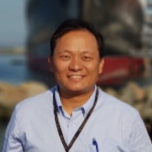
Ray Yen
Dr. Yen graduated from the doctoral program of the Institute of Human Resource Management of the National Central University (2008-2013) and the Tourism Institute/Department of the Chinese Culture University (1999-2005). Currently serving as Director of the Planning and Training Center of the National Academy of Marine Research (2022-present), Associate Professor, Graduate Institute of Education /Teacher Education Center, National Taiwan Ocean University (2015-present), Chair of Training Committee of the Taiwan International Cruise Association (2020-present), Secretary General of Asia Marine Educators Association (AMEA) (2017-present), Executive Director of Keelung Zhengbin Heping Island Business District Development Association (2022-present), Director of Taiwan Sustainable Development Exchange Association (2021-present).
Former visiting scholar at the University of California, Berkeley (2019), post-doctoral researcher (2013-2015) and policy development leader (2015-2017) of the Taiwan Marine Education Center, responsible for the cultivation of marine professionals, including the development of the cruise industry talent cultivation policy . Participated in the first and second phase of National Energy Projects, responsible for wind power talent training and energy science popularization projects (2009-2013). He mainly teaches courses such as marine education, human resource management, marine tourism education seminar, marine professional talent cultivation and learning organization. Guiding students to invest in local creation and innovation and entrepreneurship, and obtained excellent results in many national competitions.
- WG1
-
Working Group 1: Understand and beat marine pollution
Co-Chairs:

Rosemary Rayfuse
Rosemary Rayfuse is Emerita Scientia Professor of International Law at the Faculty of Law and Justice, UNSW Sydney (The University of New South Wales, Sydney, Australia). She is a Fellow of the Academy of the Social Sciences in Australia, a member of the Joint Group of Experts on the Scientific Aspects of Marine Environmental Protection (GESAMP), an Honorary Visiting Professor in the School of Business, Economics and Law, University of Gothenburg, Sweden, an Adjunct Professor at the University of Tasmania, a member of the International Law Association’s Committee on International Law and Sea level Rise and an Arbitrator under the Environmental Protocol to the Antarctic Treaty. A public international law generalist, she specialises in the Law of the Sea and protection of the marine environment, with particular focus on polar oceans, high seas fisheries, marine pollution, marine biodiversity in areas beyond national jurisdiction, and climate change and the oceans. She has more than 300 publications to her name and has provided advice to a number of governments, international organisations and international non-governmental organisations.

Vanessa Hatje
Vanessa Hatje is an oceanographer with a Ph.D. in Marine Sciences. Her research focuses on trace metals and carbon’s biogeochemical cycling and how natural and anthropogenic processes influence these elements. Her research group develops new analytical techniques to detect trace metals, including rare earth elements and organic contaminants in marine matrices. She and her students apply these novel and pre-existing methods to understand better the factors affecting trace contaminants cycling, transfers at continent-ocean interfaces, and interactions with biotic and abiotic components in coastal ecosystems. Her most recently funded projects include studying technology-critical elements (e.g., REE) in tropical marine environments, REE and Nd isotopes in Antarctica, and Blue C dynamics in mangroves and seagrasses. Between 2014 and 2020, she was a member of the scientific committee of the International GEOTRACES Program. Between 2019 and 2021, she was a member of the IAEA Standing Advisory Group on Nuclear Applications (SAGNA) and the Capacity Building Committee of the Scientific Committee on Oceanic Research (SCOR) between 2017-2022. She is a GESAMP Member and the chairman of the GESAMP working group WG45 – Climate Change and Greenhouse Gas Related Impacts on Contaminants in the Ocean. She serves as an associate editor for the journal Limnology & Oceanography.
Expert Members:

Peter Kershaw
Peter Kershaw is an independent marine environmental scientist based in the UK. From 1980 to 2014, he was based at the Centre for Environment, Fisheries and Aquaculture Science (Cefas) in Lowestoft, involved in a wide variety of national, European and international research projects and initiatives. These were concerned with many different aspects of marine environmental protection, from specific environmental processes, contaminants and activities to socio-ecological systems and the science-policy interface. Since 2014, he has operated as an independent consultant, largely within the international domain, with a main focus on plastics. He became involved in GESAMP in 2008, has been chair/co-chair of WG40 on ‘Sources, fate and effects of plastics in the marine environment since 2012, and is a former Chair of GESAMP (2013 – 2019). He has represented GESAMP in several Ocean Decade activities: i) Co-chair of Clean Ocean workshop at the Global Planning meeting in Copenhagen, May 2019; ii) Co-chair of WG1 Clean Ocean at the North Atlantic Regional Planning meeting in Halifax, January 2020; and, iii) speaker at the virtual Clean Ocean Laboratory in November 2021, leading the break-out session on ‘The quest for change – the need for knowledge sharing and capacity building’. Currently he is a co-convenor for a special session at the Annual Science Conference of PICES (October 2023, Seattle), as a contribution towards the Clean Ocean goal, on: ‘The emergence and ecological impact of emerging pollutants in the coastal marine environment’.

Paco Bustamante
Paco Bustamante is a Chair Professor at La Rochelle University, where he is also Deputy Director of the Doctoral School. His research focused on the bioaccumulation and transfer of pollutants in marine food webs with particular attention to the different upper compartments, cephalopods, fish, birds and marine mammals. In addition to marine ecotoxicology, he works on the trophic ecology of marine organisms using trophic tracers (stable isotopes, trace elements, lipids). He has published over 300 articles in peer-reviewed journals in these fields. From 2017 to 2022, he was a senior member of the IUF (Institut Universitaire de France), and since 2022, he serves a scientific expert for the OESG (Open-ended Scientific Group) on the Effectiveness Evaluation of the Minamata Convention on Mercury. principles.

Lara Pinheiro
Lara Pinheiro is a Biologist with a MSc and a PhD degree Oceanography, which were mostly focussed on plastic pollution in the marine environment. Her research background goes all the way from assessing macro- and microplastics contamination in coastal systems (such as sandy beaches, salt marshes and mangroves), to understanding impacts of these pollutants to invertebrates, up until her current work on helping to develop safe alternatives to petroleum-based plastics using circular economy principles.

Heidelore “Heidi” Fiedler
Heidelore „Heidi“ Fiedler is a retired Professor of Chemistry of Örebro University in Örebro, Sweden (2015-2021). Prior to this assignment, she was working for 15 years with the Chemicals Branch of the United Nations Environment Programme (UNEP) in Geneva, Switzerland. She started her academic career at the University of Bayreuth at the Chair of Ecological Chemistry and Geochemistry and the Bavarian Institute for Waste Research in Augsburg, Germany. With a MSc in chemistry and a Ph.D. in natural sciences, her research focusses on environmental chemistry; from identification and quantification of sources of (persistent organic) environmental pollutants, to their fate in the environment and further transport to human exposure and effects in humans and the environment. Originally starting with polychlorinated dibenzodioxins and -furans, for the past years, she has led a global monitoring project on perfluorinated alkyl substances (PFAS) for UNEP in 42 countries. She is also a visiting professor at Tsinghua University (Beijing, China) and Jinan University (Jinan China), and has an honorary doctorate from Örebro University (2009). She has many years of experience in project management, publishing, conference organization (International Symposium on Halogenated Persistent Organic Pollutants, Dioxin20xx), and served on the boards of many national and international institutions.

Maxi Castrillejo
Maxi Castrillejo is an oceanographer broadly interested in how the ocean takes, redistributes, and stores properties that are of critical importance for climate and the marine ecosystems. On the one hand, his research focuses on quantifying and understanding the origin and fate of marine radioactivity. For example, he was involved in quantifying radioactive releases from the damaged Fukushima Daiichi nuclear power plants into the Pacific Ocean and the discharges from European nuclear facilities into the Atlantic Ocean and the Mediterranean Sea. On the other hand, he uses natural and anthropogenic radioactivity to understand how ocean waters travel and mix across oceanic basins. Beyond that work, he also contributed to studies using radioactivity to quantify the strength of the marine biological pump and the atmospheric inputs into the ocean of essential micronutrients. In my everyday life, you may find Maxi in seagoing oceanographic expeditions, developing new methods in a chemistry laboratory or analyzing model output from ocean general circulation models.

Rebecca Zitoun
Rebecca Zitoun is a Postdoctoral Researcher at GEOMAR Helmholtz Centre for Ocean Research Kiel working on trace metal biogeochemistry and the environmental impacts of deep-sea mining activities. Her background includes trace metal speciation, toxicology, ocean acidification, and paleoceanography. She is an active member of the Konsortium Deutsche Meeresforschung (KDM) and has worked as a consultant for the International Atomic Energy Agency (IAEA) on marine issues including marine plastics. In recent years, she has also focused on capacity building in Small Island Developing States, Ocean Literacy, Science Policy interfacing, and the engagement of Early Career Ocean Professionals (ECOPs) in the UN Decade. She is a former Young Ambassador of the European Marine Board, the chair of the SCOR Committee for Capacity Development, the co-chair elect of the Ocean Best Practice System (OBPS), the co-lead the Ocean Literacy Task Team of the UN Decade ECOP Program, and an invited expert of the GESAMP Working Group 45 “Climate Change and Greenhouse Gas Related Impacts on Contaminants in the Ocean”. She holds a PhD and a Postgrad Diploma from the University of Otago (New Zealand), a MSc from the University of Oldenburg (Germany), and a BSc from the University of Frankfurt (Germany).

Chunhua Jiang
She focuses on the transport of microplastics in estuaries and plastic sampling methodologies on river banks and beaches for citizen science. She is voluntarily working as the current ECOP (Early Career Ocean Professionals) China Coordinator to assist in empowering ECOPs, participating in ocean literacy for Aisa, a member of the Regional Training and Research Center on Plastic Marine Debris and Microplastics, IOC/UNESCO, and a member of the Institute of Plastic Recycling and Innovation.
She has 8 years of studying experience in the marine field, gained an academic master’s degree from the State Key Laboratory of Estuarine and Coastal Research and Plastic Marine Debris Research Center at East China Normal University. Gain a bachelor’s degree in marine fishery science and technology at Ocean University of China. She will start an internship at CJN – Joint FAO/IAEA Centre of Nuclear Techniques in Food and Agriculture – Soil Water Management and Crop Nutrition Laboratory (SWMCNL) to research the microplastics in agricultural soils.
Charles Goddard
Charles Goddard is Executive Director of Back to Blue, an initiative of Economic Impact and The Nippon Foundation. Charles imagines and builds Economist Impact’s flagship initiatives, the purpose of which is to catalyse progress on key issues of the day. He works closely with partners on themes ranging from ageing and longevity to ocean health, focusing particularly on healthcare, the Anthropocene and the blue economy. Based in Hong Kong, Charles was previously editorial director, Asia, at the Economist Intelligence Unit, director of research in Asia, and managing director of the Economist Corporate Network, a peer network for senior executives. He is concurrently executive director of the World Ocean Initiative.

Andrei Polejack
Andrei Polejack is a senior ocean advisor for the Brazilian Ministry of Science, Technology and Innovation, with a Ph.D. in Maritime Affairs from the World Maritime University and a bachelor and Masters in Ecology from Universidade de Brasilia. Deeply involved in the science-policy interface, his duties include coordinating national ocean and polar research programs, providing technical advice to governance, formulating and implementing public policies, managing budget and negotiating international agreements, among many others. As a transdisciplinary researcher, Andrei is interested in Ocean Science Diplomacy as a field of study, seeking to understand the complex interaction of ocean scientists and diplomats, along with the political sphere of power dynamics and interests in the marine realm. Theoretically passionate about post‐ and de‐colonial reasoning applied to international relations and its many ways of linking with ocean science. A Latino soul, proud father of three of the best humans, and a lover of dogs, cats, sea puffins, beer, and fikas.

Kenneth Leung
Kenneth Leung is a Chair Professor at the Department of Chemistry in City University of Hong Kong where he also serves as the Director of the State Key Laboratory of Marine Pollution and Associate Dean (Research & Postgraduate Education) in the College of Science. His research interests include marine pollution, ecotoxicology, marine ecology, biodiversity conservation, and ecological restoration using eco-engineering. He has published over 280 peer-reviewed journal articles in these areas, with an H-index of 57 and over 10,500 citations. In June 2021, his proposal to launch the Global Estuaries Monitoring (GEM) Programme was endorsed by the United Nations as an Ocean Decade Action for the UN Decade of Ocean Science for Sustainable Development (2021-2030). Prof. Leung has received numerous awards and recognitions for his contributions to aquatic ecology and environmental toxicology in the Asia-Pacific region. He was conferred as a Fellow of the Society of Environmental Toxicology and Chemistry (SETAC) in 2017 and awarded the 19th Biwako Prize for Ecology by the Ecological Society of Japan. In 2018, he was recognized as one of the top 100 Asian Scientists by Asian Scientist Magazine. In 2022, Prof. Leung was elected as a Fellow of the Royal Society of Chemistry and a Fellow of the Royal Society of Biology.

Mahesh Pradhan
With nearly three decades of experience with the United Nations Environment Programme (UNEP), Mahesh currently serves as the Coordinator for the Coordinating Body on Seas of East Asia (COBSEA), an intergovernmental mechanism bringing together nine countries (Cambodia, People’s Republic of China, Indonesia, Republic of Korea, Malaysia, the Philippines, Thailand, Singapore and Viet Nam) in protecting and conserving the East Asian Seas region. The Regional Seas Programme includes 18 Regional Seas Conventions and Action Plans globally, with its 50th anniversary coming up in 2024. COBSEA is among 7 Regional Seas Conventions and Action Plans administered by UNEP. In April 2023, COBSEA participating countries endorsed a new Framework on Marine and Coastal Ecosystems, under the overall theme of Sustainable Blue Economy. This Framework focuses on Marine and Coastal Spatial Planning, Marine Protected Areas, as well as Habitat Conservation and Restoration (coral reefs, mangroves, sea grass and coastal wetlands) in support of the goals and targets of the Kunming-Montreal Global Biodiversity Framework (K-M GBF). COBSEA participating countries earlier endorsed a Regional Action Plan on Marine Litter (RAP MALI), which is updated on a biennial basis. The COBSEA RAP MALI is closely linked to ongoing global efforts for a new legally binding treaty on plastics and marine litter through the Intergovernmental Negotiating Committee (INC) process. COBSEA hosts the East Asia Regional Node of the Global Partnership on Plastics and Marine Litter (GPML), which is knowledge platform that also includes a research database of over 700 scientific publications and data on plastic pollution in the East Asian Seas region.

Kathryn Sheps
Kathryn is a marine scientist by training and a facilitator and convener at heart. After completing a masters’ degree in marine science at the University of South Florida, Kathryn split her time between the field and the laboratory, working for a small research and development company. Developing novel climate-related marine technologies and spending a lot of time on the waters in and around Tampa Bay instilled both a sense of urgency to address climate change and a passion for developing climate solutions, especially those involving the ocean. Returning to Vancouver, Kathryn followed her passion to the Morris J Wosk Centre for Dialogue at Simon Fraser University where she worked as a convener, facilitator and program manager in the climate solutions program, bringing people with diverse backgrounds and experiences together in transformative, solutions-focussed dialogue around crucial issues, ideas and policies. At the Ocean Decade Collaborative Center for the NE Pacific, Kathryn remains dedicated to the idea that working together there are no challenges that cannot be solved.

Soraya Silva
Soraya J. Silva is an Associate Researcher, head of Phytoplankton Laboratory, at the Center for Oceanology and Antarctic Studies (COEA) of the Venezuelan Institute for Scientific Research (IVIC). She is also the second focal point for IOC/UNESCO and is one of the Vice-Chairs of the Sub-Commission of IOC/UNESCO for the Caribbean and Adjacent Regions (IOCARIBE). She holds a PhD in Oceanography and Coastal Sciences, and studied the effects of diesel and copper on the phytobenthic community in a coastal area, through the analysis of photosynthetic pigments of different taxa using Liquid Chromatography High Resolution (HPLC). Her research interest is in the area of biological oceanography with a focus on phytoplankton dynamics and harmful algal blooms. She has extensive experience in the culture of microalgae and currently manages a culture collection of microalgae and cyanobacteria from different sources and coordinates several research projects, both national and regional. Together with the coordination and execution of research projects, she carries out activities for the transfer of knowledge to coastal communities and integrates teaching, tutoring and training activities for undergraduate and postgraduate students.

Joana Akrofi
Joana Akrofi is a Programme Management Officer at the United Nations Environment Programme (UNEP), Science Division, Big Data Branch. She is currently leading the co-design of the Global Environment Monitoring System on ocean (GEMS Ocean) with partners to makes available relevant data, analysis, and information guiding action to conserve and sustainably use the ocean and coasts. This includes the coordinating the building and convening of a global Community of Practice across experts and society at large to provide capacity, analysis, innovation and synthesized information to decision and policy makers, civil society, international organizations worldwide in a holistic approach to keep the global ocean and coasts healthy and productive. GEMS Ocean promotes and convenes a transdisciplinary partnership approach including UN and civil society partners, data providers, observing systems and knowledge asset holders to translate the collective ocean and coastal knowledge and expertise into sustained, targeted information for decision-makers, and to trigger transformative action at scale focused on sustainable coastal and ocean use and ecosystem health as well as informing developments such as sustainable blue economy and marine spatial planning. Her assignment in the Science Division has also included scientific assessments of the marine and coastal environment notably being part of the Global Environment Outlook (GEO), the World Oceans Assessment (WOA) and the GEF Transboundary Waters Assessment (GEF-TWAP). She is also the Joint Group of Experts on the Scientific Aspects of Marine Environmental Protection (GESAMP) Technical Secretary for UNEP and the Focal Point for the World Ocean Assessment (WOA). She is a product of the Kwame Nkrumah University of Science and Technology, Kumasi, Ghana and the University of Hull, United Kingdom.

Dimitris Faloutsos
Dimitris Faloutsos is the Deputy Regional Coordinator of Global Water Partnership – Mediterranean and the Global Water Partnership’s Deputy Coordinator on the Transboundary Waters Cooperation theme. He is an Environmental scientist with an MSc in Oceanography. He has twenty years of experience in designing and implementing processes and projects in the fields of integrated water resources management applied in a source-to-sea context. He has extensively worked with multi-stakeholders partnerships and developed several strategic documents and management plans. His work has led to the enhancement of transboundary cooperation in a number of shared basins, including through the signing of relevant legal arrangements. He coordinates the implementation of the Healthy Rivers for Healthy Oceans programme endorsed under the UN Ocean Decade.

Daniel Jones
Dr Daniel Jones is a deep-sea biologist and Associate Head of the Ocean BioGeosciences Group at the National Oceanography Centre in Southampton UK. He specialises in understanding temporal and spatial patterns in deep-water ecosystems, including those impacted by anthropogenic disturbances. He applies his experience in working in the deep sea to improving environmental assessment and management including for deep-sea mining and offshore energy industries. He provides regular advice to government and engages in policy development. He has joined over thirty research expeditions, including voyages to two key areas of mining interest, the Pacific Clarion Clipperton Zone and the Mid-Atlantic Ridge. His 140+ scientific papers primarily focus on describing patterns and processes in deep-sea ecosystems. He has a key role in many major international research initiatives focussed on environmental aspects of deep-sea mining and is leading a £5M UK research programme, SMARTEX, investigating the responses of ecosystems to deep-sea mining disturbance.

Thorsten Kiefer
Thorsten is the Executive Director of the Joint Programming Initiative Healthy and Productive Seas and Oceans (JPI Oceans). JPI Oceans is a pan-European intergovernmental platform that strengthens marine and maritime research and innovation by means of transnational cooperation through joint research & innovation calls, expert groups, infrastructure sharing, and coordinated action for policy impact. The thematic range is wide. Trans-national joint actions support, among others, ecological health, address pollution from microplastics, noise, light, chemicals and munition, assist adaptation to sea level change and carbon budget management, underpin regulations for deep-sea mining and the sustainable transformation of the ocean economy, and push for better ocean observation. Before joining JPI Oceans in 2019, Thorsten was director of the Future Earth Global Hub in Paris. Future Earth is a global network of researchers and innovators in support of sustainability in environmental and societal sectors. Going back further, Thorsten was Executive Director of the Past Global Changes (PAGES) programme, facilitating global research and synthesis of environmental changes that pre-date systematic measurements by using archives such as fossil corals, tree rings, sediments or ice cores. Thorsten’s roots are in research in the field of paleoceanography. At the Universities of Kiel, Germany and Cambridge, UK, he analysed deep-sea sediments to study the substantial oceanographic and climatic changes that took place over the past thousands to ten-thousands of years.
- WG2
-
Working Group 2: Protect and restore ecosystems and biodiversity
Co-Chairs:

Frank E. Müller-Karger
Frank E. Müller-Karger is a Professor in the College of Marine Science, University of South Florida (USA). He studies marine ecosystems including the links between water quality, biological production, and biodiversity in coastal marine environments, and how these may be connected to climate change and human activities. He uses remote sensing and field work to better understand the impact of large rivers like the Amazon, Orinoco, and Mississippi on ocean biogeochemistry, to map coral reefs and wetlands, to assess the importance of continental margins in the global carbon budget, and to better understand how the sinking flux of particulate carbon affects marine life on mid-ocean ridges and the ocean bottom. Muller-Karger serves as the co-lead of the US and international Marine Biodiversity Observation Network (MBON), the Marine Life 2030 program endorsed by the UN Decade of Ocean Science for Sustainable Development, and the NOAA Climate Program Office/Sanctuaries Climate Indicator Task Force. He has published more than 340 peer-reviewed articles. He received the individual William T. Pecora Award in 2021, is a AAAS Fellow, and served on the U.S. Commission on Ocean Policy. Muller-Karger promotes science and technology as an integral element of society, working with the public and the applied and research communities to create social benefits and advance environmental conservation, locally, nationally, and internationally.

Aileen Tan
Professor Dato’ Dr. Aileen Tan Shau Hwai (AT) is a highly accomplished marine scientist renowned for significant contributions to marine science and community engagement. She holds the position of Professor at the School of Biological Sciences, Universiti Sains Malaysia (USM), and serves as the Director of the Centre for Marine and Coastal Studies (CEMACS). AT is also the Executive Director of the Asia-Pacific University-Community Engagement Network (APUCEN) since 2015. AT is a respected marine scientist worldwide, excelling in making complex science accessible to communities, driving positive transformations globally. Her multifaceted impact spans education, community advocacy, environmentalism, and humanitarianism. Notably, she became the first female President of UNITAS Malacologica, furthering sustainability in the Asia Pacific. She holds significant positions in global bodies like IOC Sub-Commission for Western Pacific (WESTPAC) and Partnership for Observations of the Global Oceans (POGO). AT’s dedication extends to empowering coastal communities via initiatives like giant clam conservation. Her emphasis on collaboration, respect, and local knowledge fuels sustainable practices and poverty alleviation. Her commitment earned her the prestigious Top Research Scientist Malaysia (TRSM) Award in 2020. AT’s influence reaches beyond Malaysia, as she globally promotes sustainable aquaculture and environmental conservation. She envisions marine scientists prioritizing environments and communities, underscoring her transformative impact in marine science, community empowerment, and environmental well-being.
Expert Members:

Joana Soares
Joana Soares has graduated in Aquatic Sciences and holds a PhD in Biomedical Science from the University of Porto. She has a solid research background in Ecotoxicology and Endocrine disruption and a strong experience in molecular biology and toxicogenomics. Over the last few years, she has worked as a researcher in several international research projects with multidisciplinary teams. Addressing global changes, in an integrative approach to space, climate, and ocean in the Atlantic, focusing on marine biodiversity conservation, are emergent topics of her work. Currently, she is the Executive Secretary of the Marine Biodiversity Observation Network (MBON) of the Group on Earth Observations Biodiversity Observation Network (GEO BON) and a Project Officer at the Earth Observation Laboratory of the Atlantic International Research Centre (AIR Centre).

Steven Bograd
Steven Bograd is an oceanographer at the NOAA Southwest Fisheries Science Center in Monterey, CA, where he leads the Climate-Ecosystem Group, and is Adjunct Faculty in the Department of Ocean Sciences, University of California-Santa Cruz and Research Associate at Scripps Institution of Oceanography. Steven’s research interests are in the climate impacts on marine ecosystems, with a focus on eastern boundary upwelling systems. Steven currently co-chairs the North Pacific Marine Science Organization (PICES) flagship science program, FUTURE, and is the Editor-in-Chief of the journal Fisheries Oceanography. Steven also co-leads two United Nations Decade of Ocean Science Programmes (SmartNet and SUPREME). Steven received a B.S. in physics (University of Arizona), a M.S. in atmospheric sciences (University of Washington), and a PhD in physical oceanography (University of British Columbia). He did a post-doc at Scripps Institution of Oceanography before joining NOAA in 2001. Steven was born and grew up in Mississippi, USA, but has spent most of his adult life on the West Coast.

Anthony B. Ndah
Anthony B. Ndah is an Ecosystem Scientist based at Plymouth Marine Laboratory in the UK, where he also serves as the Regional Node Coordinator for Africa in the Early Career Ocean Professionals (ECOP) Programme, IOC-UNESCO. Anthony earned a post-graduate diploma in Observational Oceanography from the Alfred Wegener Institute for Polar & Marine Research as part of the NF-POGO program. During his postdoctoral research, he specialized in the developing zooplankton-based indicators and methodologies for ecological assessments in the German North Sea under the EU Marine Strategy framework Directive. Anthony holds a PhD in Environmental Studies, with a specialization in Marine Biogeochemistry and Air-Sea CO2 Fluxes in the South China Sea, from the University of Brunei Darussalam. He also worked as a graduate assistant lecturer at the same university. He holds an MSc. in Marine Affairs from Xiamen University, China, where he worked on Integrated Coastal Management and a BSc. in Geography from the University of Buea, Cameroon.

Paula Spiniello
Born and raised in Venezuela. She received a B.Sc. degree in Biology at the Universidad Central de Venezuela, a MSc in Environmental Engineering at the University of Connecticut, U.S., and a PhD in Ecology at the Universidad Central de Venezuela. She was an Associate Professor for the Institute of Tropical Zoology and Ecology (IZET) at Universidad Central de Venezuela, where she stayed for 15 years. Dr. Spiniello was also an Adjunct Faculty teaching Environmental Science and Oceanography for Golden West College (California-US), and State College of Florida (US). Since 2019, Dr. Spiniello holds an appointment as Assistant Professor for the Department of Biology, Ecology and Conservation at St. George’s University, Grenada, W.I. Dr. Spiniello research interest is in marine ecology, focusing on understanding the factors that control marine community structures and trophic transfer efficiencies in coastal waters. Dr. Spiniello research has focused on evaluating the effects of natural and human-driven impacts on plankton diversity and distribution, and the role of plankton in biogeochemical cycles, fisheries, and as indicator of coastal ecosystem health. In addition to facilitating and supporting the work of visiting research scientists from institutions all over the world, Dr. Spiniello has overseen a variety of undergraduate and graduate research projects from both St. George’s University and from the Universidad Central de Venezuela.

Harriet Harden-Davies
Harriet Harden-Davies is the Director of the Nippon Foundation-University of Edinburgh Ocean Voices Programme. Her research interests lie at the intersection of ocean law and science, including international ocean governance and equity, marine conservation and sustainable development, capacity building and ocean stewardship. Harriet co-founded the Early Career Ocean Professional Programme under the UN Ocean Decade and is a member of the IOC/UNESCO Group of Experts on Capacity Development. Her PhD and Postdoctoral research focused on the development of a new UN treaty for marine biodiversity beyond national jurisdiction. She is co-lead of the Deep Ocean Stewardship Initiative and is a member of the Editorial Board for Marine Policy, and a Deputy Director of the Nippon Foundation Ocean Nexus Centre. Her previous roles include Research Fellow at the Australian National Centre for Ocean Resources and Security, University of Wollongong; Visiting Science Diplomacy Fellow at Tufts University; Guest Investigator at the Marine Policy Centre of Woods Hole Oceanographic Institute; and Manager of Policy and Projects at the Australian Academy of Technological Sciences and Engineering.

Virni Budi Arifanti
Virni Budi Arifanti, Ph.D. is a senior researcher at the National Research and Innovation Agency Republic of Indonesia (BRIN). Formerly she worked as a researcher at the Ministry of Environment and Forestry of Indonesia. In BRIN she is leading a research group on Mangrove Ecosystem Restoration and Conservation (MERCi). In 2023 Virni has been appointed as the Secretary of the Implementation Committee of Man and Biosphere (MAB) UNESCO Program for Indonesia. Since 2022 Virni was appointed as Indonesia’s Focal Point for Scientific and Technical Review Panel (STRP) of the Ramsar Convention. In 2023 she has been appointed as a Technical Expert of the STRP of the Ramsar Convention for the 2023-2025 triennium. She specializes in tropical mangrove ecosystems, wetlands ecology, blue carbon, greenhouse gas inventory and climate change studies. She has a keen interest in carbon dynamics and nature-based solutions (NbS) of wetland ecosystems. She has been involved in several international research collaborations and published in various peer reviewed international journals. Virni holds a PhD in wetlands ecology from Oregon State University, USA. Her MSc was obtained from Ghent University, Belgium, in forest geospatial science.

Dominique Pelletier
Dr Dominique Pelletier is a Senior Research Scientist at the French Institute for the Exploitation of the Sea (Ifremer) where she successively lead transdisciplinary projects on fisheries modelling and on the monitoring and assessment of Marine Protected Areas management effectiveness in both temperate and coral reef ecosystems. She developed a video-based monitoring protocol that is broadly used for benthic habitats and fishes. She is expert at the French National Pole on Biodiversity which develops tools for analysing and disseminating biodiversity data, and a member of the Marine Biodiversity Observation Network and the French BON.

Maria Lourdes San Diego-McGlone
Dr. Maria Lourdes San Diego-McGlone is a pioneering figure in chemical oceanography in the Philippines. At the University of the Philippines Marine Science Institute (UP MSI), she established the Marine Biogeochemistry Laboratory, equipped for field surveys, water parameter analysis, and more. Her research spans changing coastal water quality, nutrient dynamics, ecosystem responses to stressors, blue carbon estimation, and harmful algal bloom mitigation. Her impact extends to addressing fish kills and mariculture’s environmental effects. She has been a mentor for international coastal zone studies and a leader in ocean acidification research. She is a water quality expert and has been a resource speaker in climate change discussions. Dr. San Diego-McGlone has 70 published papers and 5 book chapters. She held the distinction of UP Scientist from 2007, recipient of the UP Centennial Chair/Grant from 2008 to 2021, received an Invention Disclosure Award in 2016, and became Professor Emeritus in 2020. She has been a mentor to several graduate and undergraduate students, as well as college practicum and high school trainees. With a PhD in Chemical Oceanography from Old Dominion University, she’s received the Most Outstanding PhD Graduate in Oceanography award (1991).

Alex David Rogers
Alex is a marine ecologist who is interested in how biodiversity is distributed in the ocean, especially in the deep sea and on tropical coral reefs. He is also interested in human impacts on the ocean and how to manage human activities to mitigate or reduce degradation of marine ecosystems. His work has taken him to the Atlantic, Indian and Southern Oceans and to the Caribbean investigating coral reef ecosystems, seamounts and deep-sea hydrothermal vents. Alex has worked with governments, intergovernmental and non-governmental organisations in publicising human impacts, especially those from deep-sea fishing and climate change, and on the development of policy solutions to such problems. He is Scientific Director of Ocean Census. Alex recently published the book The Deep: The Hidden Wonders of Our Ocean and How We Can Protect Them Wildfire (2019).

Rebecca Martone
Based near Victoria, BC, Canada, Dr. Rebecca Martone is the Executive Director of the Ocean Decade Collaborative Center for the NE Pacific, a contribution of the Tula Foundation. Over the past 20-years Dr. Martone has worked as an applied marine ecologist addressing a variety of issues in coastal ecosystems across the west coast of North America, including marine spatial planning, small-scale fisheries sustainability, cumulative impacts to coastal ecosystems, and monitoring to inform ecosystem-based management. Dr. Martone has a PhD from Stanford University in biological sciences, a Masters in environmental management from Duke University, and a B.A. in environmental sciences from Northwestern University. As the former Assistant Science Director at the Center for Ocean Solutions at Stanford University in California, she has experience linking science with decision making and co-developing science for solutions. Prior to her work at the Ocean Decade Collaborative Center, Rebecca worked as a marine biologist with the Province of British Columbia to help implement the Marine Plan Partnership and develop a network of Marine Protected Areas in collaboration with 17 coastal First Nations in northern BC. Rebecca is passionate about working with a diverse community of scientists, community members, industry representatives, and ocean and coastal practitioners to solve the major challenges facing our oceans, and to help protect our coasts and oceans while supporting people’s livelihoods and cultural connections.

Veronica Relano
Veronica has a PhD in Oceans and Fisheries from the University of British Columbia and was supervised by Dr. Daniel Pauly. She is interested in marine conservation, connectivity and the socio-ecological issues resulting from the mismanagement of marine resources. One important component of her research is to understand how to better communicate conservation actions to a broader audience to achieve change on the ground. Her project “SOS – Somos OceanoS (ocean stories for conservation)” was endorsed by the UN Ocean Decade. It explores the needs of people living in and around ‘paper Marine Protected Areas’, raising local voices and finding ways to start a conversation for equitable management and conservation of marine resources. Veronica contributes her skills to advance the work of the NGO Onewater as the Oceans Program Manager.

Louise Allcock
Louise Allcock is a professor of Zoology at University of Galway, Ireland. She is a member of the National Decade Committee for Ireland, chair of the North Atlantic Regional working group of the UN Ocean Decade programme “Challenger 150”, and vice chair of the UN Ocean Decade action “Marine Animal Forest of the World”. Louise is a member of the IUCN SSC Mollusc Specialist Group and has led the red list assessment of 750 cephalopod species. She chaired, on behalf of Ireland, the Status Assessments of deep-water OSPAR Listed Threatened/Declining VME Habitats working with international experts from across Europe. She is a member of Ireland’s Marine Protected Area (MPA) Advisory Group, providing expert advice to Government on MPA expansion. Louise has co-authored two richly-illustrated books: Octopus, Squid and Cuttlefish (University of Chicago Press, 2018) and Deep Ocean (Princeton University Press, 2023). She is a member of the Royal Irish Academy.

Audrey Darnaude
Audrey Darnaude is a marine scientist working for the French National Centre for Scientific Research (CNRS), in the MARBEC (Center for MARine Biodiversity, Exploitation & Conservation) joint research unit, which gathers scientists from varied French research institutes (CNRS, Ifremer, IRD, INRAE) at the Montpellier University (France). Originally specialized in fish ecology, she has studied the life-history diversity (growth, feeding and migration strategies) of varied marine species, as well as food-web structure in many regions of the world, mainly through the use of individual biogeochemical markers. Besides chairing a vast international initiative aiming to advance research on Marine Connectivity (the European COST Action & UN Ocean Decade project SEA-UNICORN: www.sea-unicorn.com), she currently studies the life strategies and population structure of various fish of high economic value, in link with coastal food web functioning and habitat connectivity at the sea-continent interface. She also teaches fish ecology, food web structure and biogeochemistry at the Montpellier University, and is involved in varied national and international expert groups, engaging in providing guidance on biodiversity conservation and sustainable maritime spatial planning, in relation to connectivity issues.

Mark John Costello
An ecologist specialising in biogeography, Marine Protected Areas, and the effects of climate change on biodiversity, including aquaculture-environment interactions. He pioneered ‘ocean biodiversity informatics’, notably by leading the establishment of the World Register of Marine Species and Ocean Biodiversity Information System databases. He played leading roles in many international organisations, including: being a lead author in the recent Intergovernmental Panel on Climate Change 6thAssessment Report where he co-led the Cross Cutting Chapter on Biodiversity Hotspots; co-chairing the Group on Earth Observations Marine Biodiversity Observation Network for 10 years; President and Secretary of the International Association for Biological Oceanography; Vice-Chair of the Global Biodiversity Information Facility Scientific Committee. Mark has supervised over 70 graduate students. He has over 270 peer-reviewed publications (total over 500, cited 19,000 times), and a H-index of 68 (57 since 2018). He currently leads the MBON Europe initiative to establish a long-term network of marine biodiversity monitoring in Europe, and MPA Europe, a project mapping the best places to protect biodiversity and carbon stores in all European seas. From Ireland, a fascination with wildlife led to studying in Galway (BSc Hon.), followed by a PhD based in Ireland’s only Marine Reserve, post-doc’s at the Marine Biological Association in Plymouth England and Scottish Office Aberdeen and Napier University in Edinburgh Scotland, a lectureship in Trinity College Dublin, establishing the environmental consulting company EcoServe, and a term as Executive Director of the Huntsman Marine Science Centre in Canada until returning to an academic position in Auckland New Zealand. He is currently a professor at Nord University, Arctic Norway, and a Visiting Professor at the Ocean University of China, Qingdao.

Britt Dupuis
More details to come.

Alice Terpereau
Graduated in economics and mathematics, Alice pursued her academic path in sustainable territorial development. Interested in numerous domains at the crossing point of environmental and social sciences, she deepened her expertise in nature-based solutions and climate-induced disasters through research projects in different regions of the world. Currently enrolled in a traineeship at the European Commission, she is dealing with IT projects.

Martina H. Stiasny
Dr. Martina H. Stiasny is a marine biologist working in fish (larval) ecology, evolutionary ecology, and interdisciplinary fisheries science. Martina is interested in questions related to striking the balance between food security and sustainability in fisheries management, the effects of climate change on fish populations and how to incorporate economic and social constraints into fisheries management that is nonetheless based on solid ecological data and theory. She is a graduate of the University of St Andrews (BSc) in Scotland and Kiel University (MSc. In Biological Oceanography based at the GEOMAR) in Northern Germany, where she also completed her Doctoral degree in Fish and Fisheries Biology. After postdoc positions in Germany and Norway and a year working for the European Commission in Brussels, Martina has recently started a lectureship at the University of Southampton in England. She has started her own research group, continuing her work in the research aquarium of the National Oceanography Centre, looking into effects of climate change and other anthropogenic stressors on temperate fish.
 Lina Mtwana Nordlund
Lina Mtwana NordlundLina Mtwana Nordlund is an associate professor in Natural Resources and Sustainable Development at Uppsala University in Sweden. Nordlund is rooted in social-ecological systems theory with a focus on coastal and marine environments. Her expertise is foremost in inter- and transdisciplinary approaches for sustainable coastal futures. She has done extensive research in East Africa and the Western Indian Ocean, particularly focusing on intertidal ecosystems, seagrass, fisheries, management, and policy. Her research focus in the Baltic Sea is on integrated marine monitoring and blue foods. She has previously worked as a manager for a Marine Protected Area and she has a keen interest in local ecological knowledge and futures thinking. Nordlund is the seagrass co-lead on the Global Ocean Observing System (IOC/UNESCO) Biology and Ecosystem Expert Panel and serves as Director of the Indo-Pacific Seagrass Network.

Ward Appeltans
Mr Ward Appeltans is the marine biodiversity focal point at UNESCO’s Intergovernmental Oceanographic Commission (IOC) where he manages the Ocean Biodiversity Information System (OBIS) and supports the Biology and Ecosystems Panel of the Global Ocean Observing System (GOOS BioEco). Mr Appeltans also manages two eDNA projects, one in the Pacific Islands to detect marine invasive species and a recent one to assess biodiversity in UNESCO’s marine World Heritage sites. Mr Appeltans is also a member of the steering group of the Marine Biodiversity Observation Network (MBON) and is a member of the coordination team of the UN Ocean Decade Marine Life 2030 programme.

Linwood Pendleton
Linwood Pendleton is the Executive Director of the Ocean Knowledge Action Network and a professor at the European Institute for Marine Studies. He served on the Executive Planning Committee and the Interim Advisory Board for the UN Decade of Ocean Science for Sustainable Development and now serves on the Advisory Board of the UN Decade on Ecosystem Restoration. He was the Senior Vice-President for Science at the Centre for the 4th Industrial Revolution; Ocean, Global Lead for Ocean Science at the WWF; and Acting Chief Economist for the National Oceanic and Atmospheric Administration from 2011-2013.
- WG3
-
Working Group 3: Sustainably feed the global population
Co-Chairs:

Erik Olsen
Erik Olsen is the head of the Research Group for Sustainable Development at the Institute of Marine Research, in Bergen, Norway, where he has been working since 1999. He has earned a PhD in fisheries biology in the University of Bergen (2002). Erik is board member of the Ocean Portfolio in the Norwegian Research Council. He is actively involved in the UN Ocean Decade, both as the leader of the ClimeFOOD Ocean Decade Project, and as a member of the Norwegian National Ocean Decade Committee. He has extensive experience with organizing and leading scientific surveys and investigations in Norwegian waters as well as in Africa and Asia. Integrated ocean management, ecosystem modelling and marine spatial planning has also been a key area of work, and Erik was deeply involved in the development of the Norwegian Integrated management plans.

Vera Agostini
Dr. Vera Agostini is the Deputy Director of the Fisheries and Aquaculture Division at the United Nations, Food and Agriculture Organization (FAO) where she provides oversight, strategic leadership and technical support. From 2007-2017 Vera was with The Nature Conservancy, initially as Senior Scientist with the Global Oceans Team, and then as Director of Science and Director of Climate Adaptation with the Caribbean team. Dr. Agostini is a fisheries scientist by training, who has held positions across three sectors (non-governmental, government, and academia/educational) providing technical and strategic leadership across a range of multi-disciplinary efforts around the globe. Her experience ranges from comprehensive ecosystem research to broad policy and planning. Although her work began in temperate systems, she has spent a considerable part of her career focusing on tropical geographies.
Expert Members:

Shakuntala Haraksingh Thilsted
Shakuntala Haraksingh Thilsted is the Director for Nutrition, Health and Food Security Impact Area Platform, CGIAR. She was previously the Global Lead for Nutrition and Public Health at WorldFish. She was awarded the 2021 World Food Prize for her ground-breaking research, critical insights, and landmark innovations in developing holistic, nutrition-sensitive approaches to aquatic food systems. She was awarded the 2021 Arrell Global Food Innovation Award for research innovation. She is Chair of the Scientific Advisory Committee (SAC) of the UN Food Systems Coordination Hub. She is a member of the Steering Committee of the High Level Panel of Experts on Food Security and Nutrition (HLPE) of the United Nations Committee on World Food Security (CFS). She was Vice Chair of the UN Food Systems Summit 2021: Action Track 4 – Advance Equitable Livelihoods, and also a Food Systems Champion. In 2022, Shakuntala was appointed co-chair of the EAT-Lancet 2.0 Commission. Shakuntala holds a PhD from the Royal Veterinary and Agricultural University, Denmark. She holds Honorary Doctorates from the Swedish University of Agricultural Sciences and The University of the West Indies.

Christopher Costello
Christopher Costello is a professor of Environmental & Resource Economics and Director of the Environmental Markets Lab at the University of California, Santa Barbara, and is a Research Associate at the NBER. He received his Ph.D from the University of California, Berkeley in 2000 and conducts research on natural resource economics and policy concerning property rights, with a focus on decision making under uncertainty, information, asset values, and natural resource scarcity. His work combines applied theory with modeling and empirical analysis, often to inform policy in the ocean, land use, climate, and environmental market design. Costello’s work is global, but includes recent projects in French Polynesia, Seychelles, Peru, Mexico, and Indonesia. Costello serves on the board of trustees for Environmental Defense Fund and The Nature Conservancy (California), and serves on the California Governor’s Council of Economic Advisors. He has published over 100 peer-reviewed papers in economics and science journals, has served as primary advisor for over 30 PhD students and post-docs.

Edward Allison
Eddie Allison works at the interface between research, policy and development practice, with a focus on governing aquatic food systems to address poverty, malnutrition and inequity through food system and ocean governance transformations. Eddie has worked for international development organizations (FCDO and UN FAO) and as a consultant, and has held university faculty positions in Development Studies at University of East Anglia,UK, and in Marine Affairs, at University of Washington, USA. He has a PhD in fisheries assessment and management from the University of Liverpool, U.K. He has published over 250 research articles and is in the top 0.1% of the world’s most influential interdisciplinary scientists, based on Clarivate citation counts of his work. He was a lead author on the High Level Panel on the Future Ocean Economy’s ‘blue paper’ on ‘The Human Relationship with the Oceans’ and a contributing author to the papers on Equity and on Ocean Governance Transformation. Currently, he leads the Sustainable Aquatic Food Systems science unit at WorldFish and is based in Penang, Malaysia. He also holds adjunct and visiting professorships at the University of Washington, Seattle, USA, and Lancaster University, UK.

David Obura
David Obura is a Founding Director of CORDIO East Africa, a knowledge organization supporting sustainability of coral reef and marine systems in the Western Indian Ocean. CORDIO takes research to management and policy, builds capacity, and works with stakeholders, managers and policy makers. David’s primary research is on coral reef resilience, biogeography and climate change impacts, and turning now towards sustainability science using coral reefs as a model and earth systems science framing.
At the boundary between science and action, David works to integrate conservation and development across scales, in the context provided by global sustainability goals and targets. He works from the local scale, through fostering innovative action to promote sustainability, through regional scale alignment and integration, to global scales, bringing knowledge and local-regional practice into decision-making contexts. David serves on the Earth Commission, Co-Chairs the IPBES Nexus Assessment (2022-2024) and has been active in bringing sustainability science into the Kunming-Montreal Global Biodiversity Framework and other international processes on biodiversity, oceans and climate change, and in identifying African priorities, opportunities and positions for achieving a sustainable future. David was awarded Kenya’s national honour, Moran of the Burning Spear in December 2021, and the Coral Reef Conservation Award of the International Coral Reef Society in 2022.
Janet Coetzee
Janet Coetzee is a senior fisheries scientist at the Department of Forestry, Fisheries and the Environment in Cape Town, South Africa with expertise in hydroacoustic survey methods, forage fish fisheries and ecosystem dynamics. She has actively participated in the assessment and management of South Africa’s forage fish resources over the past 30 years and contributed to the understanding of their ecological significance and the role that they play in the economy and food security of the country. She has participated in inter-disciplinary research collaboration both within the Benguela Current Large Marine Ecosystem and elsewhere, has explored potential new fisheries and formulated policies that promote the sustainability of existing forage fish fisheries. She has comprehensive knowledge and experience in this domain and a balanced approach to dealing with conflict between fishing industries and conservation bodies.

Flower Msuya
Dr. Flower Msuya, a Freelance Senior Researcher and Consultant (having worked with the University of Dar es Salaam, Tanzania, for 33 years), is expert in seaweed aquaculture with 30+ years of experience. She researches on seaweed aquaculture including livelihood development, climate change, and health issues as well as integrating seaweed with marine animals for enhanced food production. Dr. Msuya is the Founder and Chairperson of Zanzibar Seaweed Cluster Initiative where she links farmers and small-scale processors to research, government and private sector. She produced the first seaweed value-added product in 2006, products are currently marketed all over Eastern Africa, the products include food products. She engages in developing climate-smart farming technologies for farming seaweed and other marine organisms in deep waters to curb the impact of climate change and produce seaweed food in the blue economy endeavors. Dr. Msuya is a member of bodies of some international organizations including Steering Committee of Safe Seaweed Coalition, Scientific Council of Global Seaweed Coalition and Board of International Marine Biotechnology Association.

Stefan Gelcich
Stefan Gelcich is a Marine Biologist based at the Universidad Catolica de Chile, he studies the linkages and feedbacks between social and ecological systems. He is particularly interested in advancing science which contributes to the sustainable management of coastal oceans. He has been part of multiple interdisciplinary projects and centers over the past 20 years where he has led research focused on human behavior, ecosystem services and ecology. In all projects Stefan contributes by linking social-ecological dimensions. Current project themes include marine conservation and management, adaptive capacity of coastal industries and illegal fishing, among others. Research has been funded by national and international institutions. Stefan is the director of the Instituto Milenio en Socio-ecologia Costera.

Michael Fabinyi
Michael Fabinyi is an Associate Professor at the Climate, Society and Environment Research Centre at the University of Technology Sydney. From 2010-2016 he worked at the Australian Research Council Centre of Excellence for Coral Reef Studies, James Cook University, and he has lived and worked in China, Indonesia, Malaysia, Papua New Guinea, the Philippines and Solomon Islands. He is an environmental social scientist, and his primary research interests are in coastal livelihoods, food security in coastal contexts, and seafood trade.

Andreea L. Cojocaru
Andreea L. Cojocaru is Associate Professor at University of Stavanger in Norway. She has an actuarial science and statistics background from University of Toronto and KU Leuven complemented by a PhD in industrial economics from UiS. Her research focuses on the economics of oceans, with concentration on aquaculture, fisheries, seafood markets and coastal communities. Originally from Romania, Andreea has lived, studied, and worked in Canada, Belgium, Norway and the US. She strives to be involved in interdisciplinary collaborations recognizing the many facets of natural resource issues while remaining mindful of the complexities of socio-environmental systems.

Michelle Tigchelaar
Dr. Michelle Tigchelaar is a Research Scientist with the Center for Ocean Solutions at Stanford University. She is an interdisciplinary climate scientist whose work focuses on the impacts of climate change on food systems, spanning the aquatic and terrestrial and the ecological and human. Since 2020, Michelle has been coordinating the Blue Food Assessment, an integrative assessment of the role of aquatic foods in transformations towards healthy, sustainable, just and resilient food systems, as well as supporting the Aquatic/Blue Food Coalition in bringing blue food insights into key policy arenas. Her active research involves developing tools for assessing blue-green climate risk to nutrition and identifying climate impacts and adaptations for food worker health.

Maria Darias
Dr. Maria Darias is a tenured research scientist at the French National Research Institute for Sustainable Development (IRD). Her primary focus is the development of sustainable aquaculture practices in low- and middle-income countries, with a particular emphasis on nutrition-sensitive aquaculture. Her research interests revolve around exploring the interplay between aquaculture conditions, particularly nutrition, and the nutritional composition of aquatic foods. Dr. Darias serves as the co-director of the African Interdisciplinary Laboratory in Sustainable and Nutrition-Sensitive Marine Aquaculture (LIMAQUA), an interdisciplinary research and training initiative jointly coordinated by South Africa and France addressing the nutritional and sustainability challenges faced by marine aquaculture in the region. Additionally, Dr. Darias leads the UN Ocean Decade program ‘Nutrition-Sensitive Marine Aquaculture in Africa’ (AfriMAQUA).

Katherine Mills
Dr. Katherine Mills is a senior research scientist at the Gulf of Maine Research Institute in Portland, Maine. She earned her Ph.D. in Natural Resources at Cornell University. As a quantitative fisheries ecologist, Kathy studies marine ecosystem changes and fish-ecosystem-fishery relationships with a focus on the Gulf of Maine and Northeast US Shelf regions. Specifically, her research investigates (1) how physical and ecosystem conditions are changing; (2) how these changes affect fish populations, biological communities, and marine fisheries; and (3) how fisheries and fishing communities can effectively respond. Much of her work is interdisciplinary and collaborative, working with scientists and stakeholders to understand and inform management of fisheries as coupled social-ecological systems and to support climate adaptation and resilience in marine fisheries. She leads a UN Ocean Decade program—Fisheries Strategies for Changing Oceans and Resilient Ecosystems by 2030 (FishSCORE), is lead author for the ‘Ocean Ecosystems and Marine Resources’ chapter of the US 5th National Climate Assessment, and serves as a chair of the ICES-PICES Strategic Initiative on Climate Change Impacts on Marine Ecosystems (SICCME).

Beth Fulton
Dr Beth Fulton is a Chief Research Scientist with CSIRO. Beth is the CSIRO’s research domain leader for integrated oceans stewardship and the blue economy. In shaping the strategic direction for CSIRO’s research in this area, she is building off more than 20 years of work developing various system modelling tools for looking at marine ecosystems and sustainability. Beth is also an Adjunct Professor and Deputy Director at the Centre of Marine Socioecology, which focuses on finding transdisciplinary, equitable and sustainable solutions to the problems facing coasts and oceans. The common theme to Beth’s work has been on developing system-scale decision support tools in support of sustainable management of potentially competing uses of marine environments and adaptation to global change.

Fatima Zohra Hassouni
Head of the sustainability and fisheries resources management division, within the maritime fisheries department, has more than 23 years of experience in the field of fisheries resources development and management and more than 15 years of experience with regional and international fisheries management organizations (GFCM, ICCAT, CECAF, FAO, etc.). Committee member and focal point of several projects dealing with the sustainable management of marine resources and the preservation of ecosystems and biodiversity, Maritime Spatial Planning, Marine Protected Areas, Blue Economy. National Focal Point for Marine and Coastal Biodiversity.
- WG4
-
Working Group 4: Develop a sustainable and equitable ocean economy
Co-Chairs:

Peter M. Haugan
Institute of Marine Research, Norway. More details to come.

Andrew John Rhodes Espinoza
Andrew John Rhodes Espinoza currently works as Ocean Coordinator, attached to the Undersecretariat for Multilateral Affairs and Human Rights of the Ministry of Foreign Relations of Mexico and serves as Sous Sherpa for the High Level Panel for a Sustainable Ocean Economy. Prior to this assignment, he held executive positions in the National Commission for Protected Natural Areas (CONANP); as National Commissioner (head of agency), General Director of Institutional Development and Promotion and Director of Climate Change Strategies. Additionally, he served as General Director of the Pronatura System as well as Central Coordinator of the Fund for Protected Natural Areas in the Mexican Fund for the Conservation of Nature AC. Finally, Andrew Rhodes is the Deputy Chair for World Commission on Protected Areas of the International Union for Conservation of Nature.
Expert Members:

Georgia Park
Georgia is Senior Programme Manager for the Science in Public Life Programme at the Royal Society, which facilitates the transfer of knowledge and people between academia and policy. The Ocean Science Policy workstream provides a platform for early career researchers, professionals and policymakers in marine and ocean science across the UK to access the knowledge and networks at the science-policy interface, and the programme’s professional development opportunities help to build a talent pipeline for future scientific advisers and scientifically-trained civil servants in Government. The Ocean Science Policy programme is endorsed as an official contribution to the United Nations Decade of Ocean Science for Sustainable Development 2021–2030. Prior to her work at the Royal Society, Georgia has worked in academic publishing for Macmillan and Oxford University Press, and holds a BA in Geography from the University of Southampton and an MSc from Edinburgh Napier University.

Rafael Gonzales-Quiros
Rafael is the Director of the Centro Oceanográfico de Gijón, one of the nine coastal laboratories of the Spanish Institute of Oceanography (IEO-CSIC). His research career is focussed on the relationship between ecosystem and fish population dynamics and plankton ecology, and he has been always involved in multidisciplinary long-term ocean observational programmes. During the past 8 years he has had different responsibilities at the Spanish Institute of Oceanography, which is the largest institution in Spain exclusively devoted to Ocean Sciences and with the mandate to provide scientific advice for ocean policies to the Spanish Government, particularly in fisheries and environmental issues. Before being the Director in Gijón he was the Head of the Marine Environment Area (one of the three research-advice areas at IEO together with Fisheries and Aquaculture), Deputy Director for Research and temporarily the Director of IEO (overlapped with Deputy Director). Rafael also has an active role of representation in different international and national organisations and processes related with ocean sciences and ocean sustainability. He has been the Head of the Delegation of Spain at the Intergovenmental Oceanographic Commission since 2017, member of the Group of Experts for the third cycle of the World Ocean Assessment, Coordinator of the National Decade Committee and a Working Group on Marine Data in Spain among others.

Joel Mokenye
Mr. Joel Mokenye holds a MSc. Degree in Marine and Lacustrine Science and Management and BSc. Degree in Fisheries and Aquatic Sciences. He’s more than 15 years working in coastal and marine fisheries management aspects. Initially worked as a Research Associate at KMFRI between 2011-2018, Part-time Lecturer at Technical University of Mombasa in the Department of Environment and Health Sciences, Marine sciences section (to date) and currently as Aquatic Biodiversity Specialist at African Union InterAfrican Bureau for Animal Resources (AU-IBAR) since 2022. Mr. Mokenye’s experiences span around scientific research, Fisheries management, aquatic ecosystems management through the use of MPAs, MCS and MSP frameworks and a wide range of consulting nationally, regionally and internationally. His multidisciplinary experience in marine and fisheries science ranges from marine and fisheries ecology, oceanography, environmental & social impact assessment of projects, Conceptual Blue economy, Benthic environment, environmental and marine plastic pollution. He’s held a number of assignments including; Kenya Coastal Development Project (KCDP) funded by the World Bank; Diagnostic Study on the Sources, Pathways, and Impacts of Marine Litter in Coastal Kenya project, funded by the World Bank and executed in partnership with Cardno Emerging Markets Ltd” along Kenya’s coastline; Small Scale Fisheries Management in the Transboundary conservation area in Southern Kenya – WCS- BAF-Project; Standing Stock Marine Litter Survey along Kenya’s coastline” (A joint survey between CSIRO and the United Nations Environment Programme (UNEP); Developed a conservation program and Trained local conservation groups on the establishment of LMMAs/CCAs/CMAs in lower Tana river, north coast Kenya; Coordinated a collaborative community wetland restoration project at Kilelengwani Co-Management Area, lower Tana river, north coast Kenya; and currently implementing the project “Conservation of aquatic biodiversity in African blue economy” at AU-IBAR where regional economic communities (RECs), RFMOs, WBs and AU member states are implementing partners.

Susanna DeBeauville-Scott
Susanna possesses over 20 years of experience working in the field of conservation and sustainable development, and has direct experience in the following areas: development and implementation of climate change adaptation and disaster risk reduction measures; protected area management; biodiversity management; fisheries management; integrated coastal zone management; ocean governance and marine spatial planning; environmental impact assessment; waste management; and policy development. She is also a certified project manager with experience in managing national and regional projects in the Caribbean. Susanna currently works with the Organisation of Eastern Caribbean States (OECS) Commission where she provides technical support and manages projects on blue economy matters, including waste management and pollution reduction.

Emma Hospes
Emma is Director of Strategic Environment and Permitting and has worked on topics associated with environment and ecology impact management in the marine and coastal environment for more than 15 years. Ørsted is one of the world’s largest renewable energy companies and the global leader in offshore wind energy. In 2021, Ørsted set an industry-leading biodiversity ambition. The same year it became the first energy company to have its net-zero target validated by the Science-Based Targets initiative. The company has been at the forefront of the green energy transition and sustainable ocean stewardship and champions integration of action on climate and biodiversity. Emma’s role at Ørsted encompasses a wide range of topics associated with the marine and ocean environment. She represents Ørsted’s world leading global environment and permitting teams, which include more than 120 marine and environmental scientists, policy experts, and stakeholder managers working with local communities and environmental impact identification and management in countries around the world. Her team is also responsible for management of Ørsted’s global research programme on the marine environment and implementation of Ørsted’s industry leading global biodiversity programme. Prior to joining Ørsted, Emma worked in environmental consultancy and held marine and environmental policy roles in UK national and local government. She holds a BSc in Marine Biology and Oceanography from the University of Southampton and has a MSc in Ecological Management from Imperial College London.

Erik Giercksky
Erik Giercksky has led the UN Global Compact’s work on Ocean since January 2018. UNGC is the UN’s main body for cooperation with international business and is, with its 12,000 signatory companies and 4,000 civil society organizations, the world’s largest sustainability initiative. The UNGC’s board is chaired by the UN Secretary General Antonio Guterres. The UNGC Ocean Stewardship Coalition consists of globally leading marine and maritime companies, as well as academic institutions, central UN organizations and NGOs. Since its inception, the work has been a significant normative factor for sustainability work in ocean-related industries. Of particular importance was the establishment of the Sustainable Ocean Principles during the UN General Assembly in 2019. Giercksky is also the lead author of the Blue Bonds Reference Paper, a reference document for the bond market’s work on sustainability for ocean related companies and part of the World Bank’s approach. Giercksky has previously worked as communications director in the Norwegian Shipowners’ Association and has held leadership roles in a number of companies and organizations. Giercksky started his career as a Norwegian diplomat and was part of the team that led Norway’s work with peace processes in different parts of the world. Giercksky has a master degree from the London School of Economics and from the University of Oslo.

Torsten Thiele
Torsten Thiele is Honorary Fellow at Plymouth Marine Laboratory, UK and Affiliate Scholar at the Research Institute for Sustainability, Helmholtz Centre Potsdam, Germany. He works on ocean governance and sustainable blue finance, drawing on over 20 years experience in project and infrastructure finance with leading financial institutions plus a decade of ocean research. He is Founder of Global Ocean Trust, Strategic Advisor to the IUCN Blue Natural Capital Financing Facility and Senior Advisor to the Ocean Risk and Resilience Action Alliance (ORRAA) and acts as consultant to governments and other ocean stakeholders. Recent publications address climate policy, coastal infrastructure, nature-based solutions and innovative ocean finance (H-Index 15, 1099 citations). Torsten Thiele holds graduate degrees from the universities of Cambridge, Bonn and Harvard

Erika Harms
More details to come.

Joseph Appiott
Joe Appiott coordinates the work on marine, coastal and island biodiversity at the Secretariat of the Convention on Biological Diversity (CBD). At the CBD Secretariat, Joe works with governments, international organizations and other stakeholders to support the implementation of the Convention. This work includes facilitating the description and mapping of ecologically or biologically significant marine areas (EBSAs), coordinating capacity building activities, and synthesizing policy advice related to pressures on marine biodiversity. Joe work also includes coordination with, and input to, other UN agencies and multilateral processes with regards to issues related to marine, coastal and island biodiversity.

Vivienne Solis Rivera
Vivienne Solis Rivera is a biologist from the University of Costa Rica. MSc in Systematics and Ecology from the University of Lawrence/ Kansas USA. Biology. With more than 30 years of experience in biodiversity conservation in Mesoamerica and the Caribbean . Her work in the last 30 years has been developed in the field of marine conservation and human rights, leading the inputs from civil society, governments, and fishing organisations for the implementation of the SSF guidelines in her region and promoting IPLC governance models towards more equitable, efficient and effective marine conservation. She is part of CoopeSoliDar R.L, a Cooperative for Social Solidarity based in Costa Rica that promotes the conservation of biological and cultural diversity as a main asset for resilience of Indigenous Peoples and local communities to new challenges and opportunities. She is part of the Board of Directors of the International Collective for the support of fishworkers and an Honorary member of the ICCA Consortium, IUCN CEESP and Protected Area Commissions and the UN Women Major group within others at the International Level.

Stefan Gelcich
Stefan Gelcich is a Marine Biologist based at the Universidad Catolica de Chile, he studies the linkages and feedbacks between social and ecological systems. He is particularly interested in advancing science which contributes to the sustainable management of coastal oceans. He has been part of multiple interdisciplinary projects and centers over the past 20 years where he has led research focused on human behavior, ecosystem services and ecology. In all projects Stefan contributes by linking social-ecological dimensions. Current project themes include marine conservation and management, adaptive capacity of coastal industries and illegal fishing, among others. Research has been funded by national and international institutions. Stefan is the director of the Instituto Milenio en Socio-ecologia Costera.

Louise Heaps
Louise Heaps is WWF’s global lead on sustainable blue economy, with a focus on influencing mainstream finance and policy enablers, as well as addressing the barriers to delivering an inclusive sustainable blue economy at coastal community levels. Louise has worked in ocean conservation and natural resource management for over 25 years, leading ocean policy and field-based programmes in the global north and south, with 5 years in the Pacific Islands region as the Conservation Director of WWF South Pacific. She subsequently led WWF-UK’s domestic and international ocean programme before becoming their Marine Chief Adviser. After completing an MBA at Exeter University in 2016, Louise led the process to develop the Sustainable Blue Economy Finance Principles in partnership with the European Commission, European Investment Bank and the Prince of Wales’ International Sustainability Unit. She is now a member of the UNEP FI steering group for the Sustainable Blue Economy Finance Initiative and the Steering Council of the Ocean Risk and Resilience Action Alliance.

William N Kostka
William N Kostka is a dedicated conservationist and advocate for sustainable development initiatives in Micronesia. Since joining the Micronesia Conservation Trust (MCT) in 2006, he has played a pivotal role in transforming the organization to a recognized global leader in conservation and climate change adaptation. Kostka’s visionary leadership has led to remarkable achievements, positioning MCT as one of the few nationally accredited entities for the Adaptation Fund and the Green Climate Fund in the Pacific. This success underscores his commitment to securing funding for crucial conservation projects. Under Kostka’s guidance, MCT has acquired over $50 million in grants and funds, fostering collaborative efforts with regional partners. This financial support has allowed the implementation of impactful conservation initiatives that safeguard Micronesia’s natural heritage, encourage sustainable development, and enhance ecosystem and community resilience. Kostka’s contributions were acknowledged with the prestigious Pew Marine Fellowship in 2006, recognizing his instrumental role in launching the Micronesia Challenge Initiative, a landmark endeavor in natural resource conservation. His involvement showcases his dedication to addressing environmental challenges and his ability to unite stakeholders toward a common goal. Beyond MCT, Kostka actively engages in national, regional, and international boards and networks. As a founding member of the Pacific Islands Managed and Protected Areas Community and the Micronesians in Island Conservation Peer Learning Networks, he fosters collaboration and knowledge sharing among Pacific conservation practitioners. His commitment is further evident in roles on boards like the PIFS Subregional Subcommittee on Regionalism, the Global Greengrants Fund Pacific Advisory Board, and the IUCN-WCPA. Kostka’s profound dedication to nurturing emerging leaders is evident in his establishment of internships, scholarships, and fellowships through MCT. These opportunities empower Micronesia’s talent to contribute to conservation and sustainable development. William N Kostka’s profound dedication, strategic leadership, and active engagement in regional and international conservation initiatives have earned him a respected place in the global conservation community. Through his relentless efforts, he continues to drive positive change, ensuring the preservation of Micronesia’s natural resources for future generations.

Ronnie Noonan-Birch
Ronnie Noonan-Birch is a marine socio-ecologist based at the Ocean Frontier Institute in Halifax, Nova Scotia, Canada. Her work focuses at the intersect of people and the ocean, specifically on how human well-being is intrinsically linked to ocean health. Ronnie recently completed her masters research which operationalized the SDGs to create a Blue Economy standard for Canada that is socially equitable, environmentally sustainable and economically viable. Ronnie is also one of the co-founders of ECOP Canada, a national node of the UN Decade endorsed ECOP Network Programme.

Aboud S. Jumbe
Dr. Aboud S. Jumbe is the Principal Secretary at the Ministry of Blue Economy and Fisheries, Zanzibar, in the United Republic of Tanzania. Dr. Jumbe has been involved in various dialogue and development processes in the implementation of Ocean Governance, Blue Economy & Marine Spatial Planning processes, focusing on the Western Indian Ocean (WIO) and the UNEP Nairobi Convention Area. Moreover, Dr. Jumbe has also taken part in programs related to Blue Economy initiatives in the WIO region supported by the Indian Ocean Commission (IOC), United Nations’ Economic Commission for Africa’s (UNECA), Indian Ocean Rim Association (IORA) and UNDP. Under the UNEP Nairobi Convention, Dr. Jumbe has participated in various Marine Regions Forums initiative, and the aspirations to develop an Ocean Governance Strategy across the Regional Seas Programs – creating an effective and multilateral partnership for a future management of Areas Beyond National Jurisdiction, especially in the Western Indian Ocean Region. Dr Jumbe has been a member of different platforms on ocean in the WIO region including the “Marine Regions Forum” and “Our Blue Future”. He holds BSc. Degree (General) Botany, Chemistry and Zoology from the University of Delhi (2000). He also holds MSc. and PhD Degrees, respectively, in Environmental Sciences, from the University of Bangalore (India).

Marie-May Jeremie
Marie-May Jeremie is the Chief Executive Officer of the Seychelles Conservation and Climate Adaptation Trust (SeyCCAT). Marie-May holds a Masters of Environment Degree from the University of Melbourne and an undergraduate degree in Biological Sciences from Edith Cowan University. Ms Jeremie is a highly skilled Senior Executive with strong interest and experience in Biodiversity Conservation, Ocean Governance, science-to-policy advocacy and establishment and management of protected areas in the Seychelles. She is a trained Conservation Biologist who has been actively involved in national biodiversity conservation and environmental management, as well as development of environmental policies and legislation in the Seychelles. Over the past 13 years, she has been active in conservation works both at governmental and non-governmental organisation platforms. Ms Jeremie is also a seasoned negotiator on multilateral environmental agreements including but not limited to the Convention on Biological Diversity, Nairobi Convention, CITES and Biodiversity beyond National Jurisdiction (BBNJ).She has served on many Boards in the environment, conservation and resource management sectors. Before joining SeyCCAT, Marie-May served as the Director General for Biodiversity Conservation and Management Division where she focused on the establishment and implementation of all biodiversity related policies and legislation. She played an instrumental role as policy lead for ocean governance including the work on the Seychelles Marine Spatial Plan, where she still forms part of the Steering committee. Ms Jeremie is also the current President of the Board of the Western Indian Ocean Marine Science Association (WIOMSA).
- WG5
-
Working Group 5: Unlock ocean-based solutions to climate change
Co-Chairs:

Carol Robinson
Carol Robinson is a Professor of Marine Sciences at the University of East Anglia in the UK. She leads a research team which studies the role of marine bacteria, phytoplankton, and zooplankton in the global cycling of carbon and oxygen, and how this varies with changing environmental conditions such as increasing nutrient supply, temperature and carbon dioxide and decreasing dissolved oxygen. Carol is a Fellow of the Royal Society of Biology, past President of the Challenger Society for Marine Science and past Chair of the SCOR/Future Earth global research network IMBeR (Integrated Marine Biosphere Research). She is currently co-Chair of the IOC Expert Group Integrated Ocean Carbon Research (IOC-R) and co-Chair of the UN Decade programme on Ocean Negative Carbon Emissions (ONCE).

Christopher Sabine
Christopher L. Sabine is the University of Hawai‘i at Mānoa interim Vice Provost for Research and Scholarship and a full professor in the Oceanography Department. He received his PhD. in chemical oceanography from UHM in 1992. Since that time he has published over 160 journal articles and book chapters on carbon cycling, climate change and ocean acidification. His current research focuses on understanding the global carbon cycle, the role of the ocean in absorbing CO2 released from human activity, and ocean acidification. He has been a scientific advisor for a number of national carbon programs in the U.S. and internationally. He has won several awards including the U.S. Department of Commerce Gold Medal Award for pioneering research leading to the discovery of increased acidification in the world’s oceans and was recognized by the Intergovernmental Program on Climate Change (IPCC) for his contributions to the IPCC when they were awarded the Nobel Peace Prize in 2007.
Expert Members:

Courtney McGeachy
Courtney McGeachy currently serves as the Director of the Ocean Visions – UN Decade Collaborative Center for Ocean Climate Solutions. Courtney previously directed the GOLD+ Program (planetGOLD) at Conservation International. Prior to joining Conservation International, Courtney served as the Principal of the Pew Marine Fellows Program at the Pew Charitable Trusts, as well as the Manager of the Marine Conservation portfolio at the National Fish and Wildlife Foundation. During her time at the National Fish Wildlife Foundation, Courtney managed several marine conservation programs including the Fishing for Energy Program, Coral Reef Conservation Program, and the Emergency Prescott Grants Program just to name a few. Courtney holds a B.Sc. degree in Marine and Environmental Science from Hampton University, and a M.Sc. in Marine and Estuarine sciences from the University of Maryland Eastern Shore. Courtney also previously served as a co-chair for Integrity, Diversity and Equity at the Citizen Science Association.

Fangli Qiao
Dr. Fangli Qiao, Member of Academia Europaea (MAE), Academician of International Eurasian Academy of Sciences and Editor-in-chief of Ocean Modelling, is the Chair Professor of physical oceanography and the Deputy Director General of the First Institute of Oceanography (FIO) of Ministry of Natural Resources of China. His research interests cover ocean and climate model development, ocean dynamics, turbulence and air-sea interaction etc. He find the key roles of small scale surface wave in large scale ocean circulation and global climate system through modulating ocean turbulence (Bv) and air-sea fluxes, called Qiao Theory. The theory has been used by tens research centers from different countries and all ocean and climate models are dramatically improved. He developed the first in the world new generation surface wave-tide-circulation fully coupled ocean model (FIO-COM) which overcomes the ground challenge for half-century of too shallow simulated mixed layer depth in the upper ocean, overestimated sea surface temperature especially in summer, the atmosphere-ocean-wave coupled Typhoon/Hurricane model (FIO-AOW) which greatly enhances the Typhoon intensity forecasting ability which has been a bottleneck for several decades , and the earth system model including surface waves (FIO-ESM v1.0 and 2.0) which kills more than half of the long-standing tropical biases. Dr. Qiao is the Executive Planning Group and then Decade Advisory Board member of the UN Decade of Ocean Science for Sustainable Development. He received numerous academic awards including Wooster Award of PICES, National Innovation Awards of China etc. He has more than 400 publications on peer-review scientific journals.

Dhrubajyoti Samanta (Dhruba)
Dr. Dhrubajyoti Samanta (Dhruba) is a Senior Research Fellow at the Earth Observatory of Singapore in Nanyang Technological University (NTU), Singapore. He is also a Research Affiliate at Cooperative Institute for Research in Environmental Sciences at University of Colorado Boulder, USA. Before joining NTU, Dhruba worked as a postdoctoral researcher at the University of Aizu, Japan, and Texas A&M University at Qatar. Dhruba obtained his PhD from the Indian Institute of Technology Kharagpur, India. Dhruba is a member of the CLIVAR Pacific Region Panel and an international working group member of Past Global Changes (PAGES) CoralHydro2K. He is a life member of the Ocean Society of India and The Indian Science Congress Association. Dhruba has worked on several interdisciplinary projects in six countries (including India, Qatar, Japan, Singapore, USA, and Norway). He has contributed significantly to understanding ocean and climate dynamics over the tropical Indo-Pacific region and improving their simulations in climate models. Three of Dhruba’s recent first-authored publications are cited in the IPCC 6th Assessment Report (AR6). He was actively involved in the review processes of multiple chapters of the IPCC AR6. He has reviewed several grants and more than 130 journal publications in reputed international journals. Dhruba has received several awards such as outstanding reviewer and trusted reviewer for his commitment to scientific integrity. He is actively involved in teaching, supervising, acquiring research funding, and outreach activities. Dhruba’s research concerns ocean and climate dynamics and their representation in climate models. His main aim is to understand and predict the role of ocean dynamics that have determined tropical climate changes in the past, and which will shape such changes in the future. His specific research focus is on climate modelling, sea-level studies, monsoons, tropical cyclones, and ocean-atmosphere interactions.

Richard Bellerby
Prof. Richard Bellerby is Chief Scientist at the Norwegian Institute for Water Research, Bergen, Norway, Director of the SKLEC-NIVA Centre for Marine and Coastal Research, East China Normal University, Shanghai, China and Adjunct Professor in the Faculty of Applied Sciences, UCSI University, Kuala Lumpur, Malaysia. With a background as a marine biogeochemist, he researches the interplay between climate and ocean change, marine ecosystems and ecosystem services with an increasing focus on socioecology. He has published over 150 research articles and book chapters. He is leader of the AMAP Ocean Acidification working group, a lead author on the AMAP Climate Expert Group, co-lead of the IMBeR-Future Earth Coasts Continental Margins Working Group, Executive Committee member on the Global Ocean Acidification Observing Network, Steering committee member of South Asia Regional Hub on Ocean Acidification, Co-Champion on the OARS Decade program and regional coordinator on the GO-BC Decade Program.

Sonia Batten
Sonia Batten has a scientific background as a biological oceanographer, studying plankton and their role in the ocean ecosystem. She initiated the North Pacific Continuous Plankton Recorder (CPR) Survey and was its coordinator from 2000 to 2020, contributing to over 35 papers based on the survey’s data. During the latter part of this role she was also a member of the GOOS Bio-Eco panel and Chaired the Global Alliance of CPR Surveys. In April 2020, she became Executive Secretary of the North Pacific Marine Science Organization (PICES). PICES is an intergovernmental science organisation which promotes collaborative marine research in the northern North Pacific and adjacent seas across the six member countries that border the region (Canada, Japan, People’s Republic of China, Republic of Korea, the Russian Federation, and the United States of America). Priorities for PICES are to promote the collection and rapid exchange of scientific information on the ocean environment, climate change, living resources and their ecosystems, and the impacts of human activities in the North Pacific. PICES sponsors and organizes international conferences and capacity development events, as well as its own Annual meeting, to facilitate, promote and disseminate scientific knowledge on these issues.

Liliana Bastian
Liliana Bastian, PhD is a Program Officer at Ocean Visions, where she supports strategic initiatives for the Ocean Visions-UN Decade Collaborative Center for Ocean-Climate Solutions and the Global Ecosystem for Ocean Solutions (GEOS), a UN Decade-endorsed action. She is a marine social scientist with a background in human geography and sustainable development. Before joining Ocean Visions, Liliana conducted participatory marine justice research and implemented multi-sector capacity building projects in sustainable development and climate resilience in the US, the UK, and Southeast Asia. Liliana holds a PhD in Human Geography from the University of Exeter, a Master of Marine Affairs from the University of Washington, and a B.S. in Environmental Geoscience from Texas A&M University.

Richard Sanders
Richard Sanders works at NORCE in Bergen and serves as coordinator of the Horizon Europe OceanICU project. He has participated on a broad range of ocean biological pump projects over the last 25 years and has recently moved into a more policy-facing role as director of the Ocean Thematic Centre in the Integrated Carbon Observation System. Prior to his move to Bergen, he served as chair of the Ocean Biogeochemistry and Ecosystems Research Group in the U.K. National Oceanography Centre. He holds an honorary chair in ocean biogeochemistry at the University of Southampton in the U.K.

Galen McKinley
Galen McKinley is Professor of Earth and Environmental Sciences Columbia University and the Lamont-Doherty Earth Observatory. She is Deputy Director of the Center for Learning the Earth with Artificial Intelligence and Physics (LEAP), an NSF Science Technology Center (STC) for 2021-2026. Professor McKinley is an ocean, carbon cycle and climate scientist whose research focuses on the physical, chemical and ecological drivers of the ocean’s anthropogenic carbon sink at scales from regional to global. Her research tools include models of the ocean and climate, in situ and satellite datasets, and machine learning. Professor McKinley holds a BS in Civil Engineering from Rice University and a PhD in Climate Physics and Chemistry from MIT. She is member of the US National Academies Ocean Studies Board and the US National Academies Climate Security Roundtable. Selected honors include the 2020 Ocean Science Voyager award from the American Geophysical Union and, in 2011, the Class of 1955 Teaching Award at University of Wisconsin – Madison.

V.V.S.S. Sarma
V.V.S.S. Sarma is the CSIR-National Institute of Oceanography, Chief Scientist and Regional Director for its regional centre, Visakhapatnam and a professor at the Academy of Scientific and Innovative Research (AcSIR). He received his PhD. in chemical oceanography from Goa University in 1999. Since that time he has published over 175 journal articles and book chapters on the cycling of carbon, oxygen and nitrogen, climate change, aerosol chemistry, and ocean acidification through observations, remote sensing and numerical models. His current research focuses on the air-sea exchange of CO2 in the Indian Ocean, the oxygen minimum zone, Ocean acidification, and the role of human impact on the biogeochemistry of carbon, nitrogen and oxygen cycling in the Indian Ocean. He is a member of the research advisory committee of several laboratories in India and abroad and also a member of the Expert Advisory Committee for Oceans theme of Climate Sustainability Working Group under G20, Ministry of Environment, Forest and Climate Change and Member of the National Nitrogen Steering Committee to Implement UNEA4 Resolution of Sustainable Nitrogen Management in India, Ministry of Environment, Forest and Climate Change. He is one of the pool of experts for the United Nations. He won several national and international awards including National Award on Ocean Sciences and Technologies, Hidaka outstanding publication award and the Young Scientist Award. He is a fellow of the National Academy of Sciences, Bengaluru, India.

Kelly Ortega
Kelly is a researcher at the Department of Biological Sciences, University of Cape Town. She has a background in biology and fisheries science, and her research focuses on using ecosystem modelling to investigate the functioning of marine ecosystems and support ecosystem-based management. Her research interest also includes the influence of environmental variability and climate change on marine ecosystems, and the vulnerability and adaptive capacity of ecosystems to climate change. Kelly is a co-coordinator for the regional models of the Fisheries and Marine Ecosystems Model Intercomparison Project (FishMIP), which aims to better understand and project the impacts of climate change on fisheries and marine ecosystems.

Robert Blasiak
Robert is a researcher at the Stockholm Resilience Centre (SRC) at Stockholm University, where he focuses on different aspects of ocean science, including vulnerability and risk associated with climate change, changing norms of ocean stewardship, and issues of equity and transparency associated with use of marine genetic resources and biotechnology. Robert is a member of the Ocean and Climate Platform Scientific Committee, a member of the editorial board of the ICES Journal of Marine Science, a participant in the UN Global Compact Ocean Stewardship Coalition, a member of the Expert Review Committee for the Seafood Stewardship Index, and coordinates the scientific input to the SeaBOS initiative (Seafood Business for Ocean Stewardship). He is currently leading the FORMAS project on “The marine biotechnology industry and equitable governance of marine genetic resources” and is co-leading the SRC’s Human Ocean research theme. Before joining SRC, Robert worked as a researcher in the Laboratory of Global Fisheries Science at the University of Tokyo and a communications officer at the United Nations University. He has previously been a senior research fellow with the Nippon Foundation NEREUS Program, as well as a visiting researcher with the University of Tokyo and the United Nations University.

Andrea Lira Loarca
Andrea is a coastal scientist and research fellow at the MeteOcean research group at the University of Genoa, Italy. She holds a Ph.D. from the University of Granada, Spain and the University of Parma, Italy specializing in Coastal Management. Her research focuses on high-resolution modeling of waves and storm surge and their change due to climate change effects and coastal impacts due to compound hazards. Andrea was recently awarded a Young Researchers Seal of Excellence grant from the Italian Ministry of University and Research to develop a project focusing on the enhanced assessment of future coastal multi-hazards and compound risks in the Mediterranean Sea. Andrea has participated in several international research projects and collaborates with researchers around the globe. She is the Guatemalan national coordinator for the Central American Early Career Ocean Professionals of the UN Ocean Decade. She has more than 35 contributions to top-tier coastal and climate science journals and international conferences.

Suchana Chavinich
More details to come.

Richard Sanders
Richard works at NORCE in Bergen and serves as coordinator of the Horizon Europe OceanICU project. He has participated on a broad range of ocean biological pump projects over the last 25 years and has recently moved into a more policy-facing role as director of the Ocean Thematic Centre in the Integrated Carbon Observation System. Prior to his move to Bergen, he served as chair of the Ocean Biogeochemistry and Ecosystems Research Group in the U.K. National Oceanography Centre. He holds an honorary chair in ocean biogeochemistry at the University of Southampton in the U.K.

Sophia Laarissa
Sophia Laarissa is a PHD student specializing in Law of the Sea at Cadi Ayyad University in Marrakech, Morocco. Holder of a national excellence research grant, her thesis focuses on “The definition and settlement of disputes related to investments at the sea.” Sophia actively contributes as a member of the International Cooperation for Development Research Laboratory and the African Network of Deep-water Researchers. Additionally, she serves as a Coordinator of ECOP Africa’s Ocean Literacy and Capacity Building Task Team. She actively participates in national and international events such as the Hague Academy of International Law’s outdoor training on “The Law of the Sea,” the “Women In The Law of the Sea” conference organized by the International Seabed Authority, and she has recently moderated the “African Day of Seas and Ocean” event organized by ECOP Africa in collaboration with IOC- Africa. Sophia has also delivered communications on topics such as “Ocean Literacy” and “The overlapping dispute settlement mechanisms in the Law of the Sea and WTO law.” She believes in the critical role of transdisciplinarity in understanding the complexity and diversity of the ocean system’s components and addressing present and future challenges in the context of the Ocean Decade Vision process development.

Jess Melbourne-Thomas
Dr Jess Melbourne-Thomas is a Transdisciplinary Researcher and Knowledge Broker, and leads a marine socio-ecological systems team with CSIRO Environment in Hobart. She has a background in mathematical modelling and Antarctic climate change science, and her work focuses on connecting research to decision-making for sustainability and climate change adaptation. Jess was a Lead Author for the Intergovernmental Panel on Climate Change (IPCC) 2019 Special Report on the Oceans & Cryosphere in a Changing Climate and she is a co-convenor of the international program MEASO (Marine Ecosystem Assessment for the Southern Ocean).
- WG6
-
Working Group 6: Increase community resilience to ocean hazards
Co-Chairs:

Srinivasa Kumar Tummala
Dr. Srinivasa Kumar Tummala holds a Ph D in Marine Science and made impactful contributions to the field of operational oceanography and coastal multi hazard early warning systems. Working at the Hyderabad-based Indian National Centre for Ocean Information Services (INCOIS) of the Ministry of Earth Sciences (MoES) since 2004, he was responsible for implementing several important projects including the Potential Fishing Zone Advisories, Multi Hazard Vulnerability Mapping, Coral Reef Bleaching Alert System, Satellite Coastal and Oceanographic Research, etc. Post the 2004 tsunami, he coordinated the successful establishment of the Indian Tsunami Early Warning System, as a multi-institutional project. The tsunami early warning centre, based at INCOIS is identified as one of the Tsunami Service Providers under the Indian Ocean Tsunami Warning and Mitigation System (IOTWMS) framework of the Intergovernmental Oceanographic Commissions (IOC) of the UNESCO. Between October 2016 to August 2020, he worked with the IOC-UNESCO as Head of the IOTWMS Secretariat in Perth, Australia. During this time, he was instrumental in strengthening the regional tsunami early warning system in active collaboration with 28 Member States, global harmonization of tsunami watch operations and implementation of the Tsunami Ready community recognition programme. Having started his scientific career with a with a brief stint at the Indian Space Research Organisation (ISRO), Dr. Tummala is currently the Director of INCOIS. He is also Vice Chair of the IOC for the Region IV, Co-chair of the IOC – WMO Joint Collaborative Board and Chair of the Ocean Decade Tsunami Programme Scientific Committee.

Nadia Pinardi
Nadia Pinardi, Department of Physics and Astronomy, University of Bologna. Nadia PINARDI holds a Ph.D. in Applied Physics from Harvard University, and she is full professor of Oceanography at Bologna University. Her major achievement is the conceptual design and practical implementation of ocean forecasting systems across the world open ocean and coastal areas. From 2012 to 2019 she was co-president of the Joint Committee for Oceanography and Marine Meteorology (JCOMM) of UNESCO-IOC and WMO and she is, since 2019, elected vice-president of the Commission for Observation, Infrastructure and Information Systems (Infrastructure Commission) of WMO. She is chair of the UN Decade for Ocean Science Program “CoastPredict” and Director of the UN Decade Collaborative Center for Coastal Resilience hosted by the University of Bologna.
Expert Members:

Hellen J. Kizenga
Hellen J. Kizenga is an early career marine scientist and an assistant lecturer at the Institute of Marine Sciences of the University of Dar es Salaam, Tanzania. She holds a BSc in Microbiology and a Master’s degree in Marine Sciences from the University of Dar es Salaam. She also has a postgraduate certificate on Observational Oceanography from the NF-POGO Centre of Excellence program at the Alfred Wegener Institute for Polar and Marine Research, Germany. Her research is based on marine and coastal resources, mainly focusing on primary productivity (Phytoplankton), marine biogeochemistry, remote sensing and small pelagic fisheries. In her research, she is highly interested in applying remote sensing, in-situ observations, and social sciences in ensuring that science collaborates with traditional knowledge for the generation of concrete information on the sustainability of marine and coastal resources.

Enrique Alvarez Fanjul
Dr. Enrique Alvarez Fanjul is the Technical Coordinator of the OceanPrediction Decade Collaborative Center, at Mercator Ocean International. He has an experience of 33+ years in operational oceanography, having developed operational ocean forecasting services and managed ocean measurement networks. He has coordinated several national and European projects. He is the author of more than 100 peer reviewed publications.

Leonardo Valenzuela Perez
Leonardo Valenzuela Perez is the Director of International Partnerships and the Global Ecosystem for Ocean Solutions (GEOS) at Ocean Visions. GEOS is a United Nations Decade of Ocean Science for Sustainable Development endorsed programme that articulates a multi-sectoral global network dedicated to the development and deployment of equitable and scalable ocean-based solutions to address climate change and major Sustainable Development challenges. Previously, he has led international climate justice initiatives in alliance with grassroots organizations in the energy and mining sectors. Leonardo has been working for nearly two decades at the intersection of Indigenous rights, climate activism, and environmental justice research with a global focus. Leonardo holds a PhD in Human Geography from the University of Sydney, as well as a Master of Human Settlements and the Environment and a Bachelor of Sociology from the Pontifical Catholic University of Chile.

Martina Muller
As programme management officer at the UN Office for Disaster Risk Reduction, Martina Müller provides policy advice and substantive guidance to Member States to integrate the Sendai Framework for Disaster Risk Reduction and risk-informed sustainable development into intergovernmental decisions. Ms. Müller has served the United Nations in various capacities for five years, including by monitoring the performance of the UN development system in the fields of environment and climate and by supporting intergovernmental negotiations on the 2030 Agenda for Sustainable Development. She also served as international advisor to the São Paulo State Secretary for the Environment between 2015-2017, connecting the global to the local by developing pioneering policies and cooperation projects; and as a manager at the sustainability non-profit Ceres, leveraging corporate efforts to address tropical deforestation. Ms. Müller holds a master’s degree in public policy (Harvard University) and is a licensed lawyer (São Paulo University / Ludwig-Maximilian University) specialized in environmental law. She speaks English, Spanish, French, German, and Portuguese.

Iris Monnereau
Dr. Iris Monnereau is currently the Fishery Officer-Shocks and Emergencies based at FAO-HQ. She supports countries worldwide in enhanced disaster prevention, preparedness, response and rehabilitation of the fisheries and aquaculture sector. This covers natural, technological, and biological disasters as well as complex emergencies. She also provides content and updates NFI strategies and planning on Disaster Risk Management for fisheries and aquaculture and supports resource mobilization. From 2017 until 2022 she has been the Project Officer with FAO-SLC in Barbados coordinating the project Climate Change Adaptation in the Eastern Caribbean Fisheries Sector (CC4FISH). The USD 5.5 million project was carried out in 7 Eastern Caribbean countries and supported building resilience of the fisheries sector to climate change, including work on capacity building of fisherfolk and aquaculturists, Disaster Risk Management, fisheries and aquaculture development and mainstreaming of climate change and Disaster Risk Management into fisheries plans and policies. Iris Monnereau earned a PhD degree in 2012 from the University of Amsterdam, The Netherlands, Faculty of Social and Behavioral Sciences, for which she investigated the impacts of different lobster fisheries governance and value chains systems on the wellbeing of fisherfolk in Belize, Nicaragua and Jamaica. She conducted a two year Post-doc from 2012-2014 at the University of the West-Indies, Centre for Resource Management and Environmental Studies (CERMES) in Barbados where she researched climate change vulnerability of the fisheries sector in Small Island Developing States. She has published extensively on climate change impacts and vulnerability of the fisheries sector in the Wider Caribbean region both during her time as a researcher as well as at FAO.

Loreto Duffy-Mayers
Loreto Duffy-Mayers is a distinguished professional with extensive expertise in the fields of Tourism, Environmental Sustainability, and Energy Efficiency. Hailing from a diverse background of Irish and Barbadian heritage, she has dedicated her career to fostering positive change in the Caribbean region and beyond. With a remarkable track record, Loreto has held pivotal roles in various regional programmes. She has served as the Project Lead for the United Nations Environment’s Caribbean Cooling Initiative, a visionary project that addressed energy efficiency and climate-friendly solutions in the cooling sector across Caribbean nations. Loreto’s passion for sustainable tourism has driven her to contribute significantly to the development of eco-friendly practices in the Caribbean hospitality industry. Notably, she managed the IDB Caribbean Hotel Energy Efficiency and Renewable Energy Programme (CHENACT), fostering energy efficiency and renewable energy solutions in the region’s hotels. A prolific speaker, Loreto has presented at numerous international conferences, sharing her insights on sustainable tourism, environment, energy, and climate change. Beyond her professional achievements, Loreto is actively involved in various committees and organizations dedicated to sustainability. She is a Board Member of the Caribbean Alliance for Sustainable Tourism, The Ocean Thermal Energy Association and a member the UNESCO IOC Decade of the Oceans, working group. Loreto’s commitment to creating a greener and more resilient future for the Caribbean has earned her numerous awards in The Caribbean for both energy and tourism. Her holistic approach, combined with exceptional communication and leadership skills, continues to make a lasting impact in the fields of tourism, environment, and energy.

Alessandra Burgos
Alessandra (Ali) Burgos completed her undergraduate studies at Rutgers University in 2016, earning a Bachelor of Science in meteorology. Subsequently, she pursued her postgraduate education at Old Dominion University, where she achieved a Master of Science in oceanography in 2018. She dedicated her research to reconstructing the 20th century global relative sea level rise and modeling future nuisance flooding in Norfolk, Virginia. Having a desire to move into science policy, Ali was accepted into the esteemed Sea Grant Knauss Fellowship and spent a year in Washington D.C. at the National Oceanic and Atmospheric Administration (NOAA) headquarters. Here, she worked to enhance their coastal resilience portfolio, supporting congressional engagement and grant management. Presently, Ali works at Oregon State University as a project manager for the National Science Foundation funded project ‘The Cascadia Coastlines and People’s Hazards Research Hub’ whose goal is to increase coastal resilience for coastal communities in the Pacific Northwest.

Joel Kamdoum Ngueuko
Joel Kamdoum Ngueuko is an environmental, climate change, and ocean planning specialist; coupled with his advocacy for spatial data literacy and gender balance. He has over ten years of experience in multidisciplinary programs, in addition to the development of quantitative and qualitative methodologies for spatial public policy planning and implementation, capacity building, and sustainable development. Kamdoum’s activities have included amongst others, his previous works as IOC-UNESCO’s intern and international consultant under the LME/IW: LEARN and the MSPglobal frameworks. He has authored scientific articles and co-authored the Technical Report on the Status of Coastal Vulnerability in Central African countries (technical series N°152, ICAM file, IOC-UNESCO). He holds a Bachelor of Science (Honours) Degree in Chemical/Environmental Engineering, a Postgraduate Diploma in Remote Sensing/GIS, and an Erasmus Mundus Masters of Science Degree in Maritime Spatial Planning.

Purificació Canals
Purificació Canals has a BSc and a PhD in Biological Sciences from Barcelona University (1986 and 1996). She works as international free-lance consultant on marine and coastal conservation and as associated professor of Physiology at University Rovira i Virgili (Tarragona). Since 2009 she’s the President of MedPAN (Mediterranean Network of Marine Protected Areas Managers). From 2016-2019 she contributed to MPA networks across the Atlantic as Team Leader of the EU Transatlantic MPA Network Project, enlarged to the Southeast Asia since 2020 under the EU Ocean Governance Project. She’s also member of the Advisory Council for Sustainable Development of Catalonia (CADS) since 2014; the Scientific Council of Conservatoire du Littoral, since 2004; and the World Commission on Protected Areas of IUCN since 2007. Among other positions, she was Regional Councillor of IUCN (International Union for Nature Conservation) for West Europe (2000-2008); Vice-president of IUCN (2004-2008); President of the Preparatory Committee of the IV World Conservation Congress organized by IUCN in Barcelona (2006-2008); President of the League for the Defence of Natural Heritage (DEPANA) (1994-2010) and the Iberian Council for Defence of Nature (CIDN) (1998-2010). In 2020 she was awarded the St. George’s Cross by the Government of Catalonia for her work on coastal and marine conservation, and in 2022 she received the Alfred Toepfer Medal, from the EUROPARC Federation, for her contribution to nature conservation in Europe.

Giovanni Coppini
Principal Scientist and Director of the Ocean Predictions and Applications Division of Centro Euro-Mediterraneo sui Cambiamenti Climatici (CMCC) Foundation in Lecce, Italy. He holds a Phd in Environmental Science: protection and management of natural resources from Bologna University. From 2003 he is working in the field of operational oceanography applications development. He was co-chair of MONGOOS (Mediterranean Oceanography Network for the Global Ocean Observing System-GOOS) and he is the Emergency Response Office manager the MONGOOS-REMPEC agreement. He was a member of the JCOMM Task Team on Maritime Safety and chair of the JCOMM Expert Team Marine Environmental Emergency Response. Since May 2015 he is Leader of the European Copernicus Marine Service (CMEMS) for the Mediterranean Monitoring and Forecasting Centre (MFC) that provides ocean forecasting for the Mediterranean Sea. He was Deputy Leader of the Black Sea MFC. He has 45 papers in peer reviewed international journals. At CMCC he has coordinated and contributed to the development of several applications relevant to maritime safety and marine environment based on CMEMS data including Sea-Conditions, VISIR, WITOIL and OCEAN-SAR. Since June 2021 he is member of the Steering Committee of CoastPredict UN Ocean Decade programme and since June 2022 he coordinates the PredictOnTime UN Ocean Decade action.

Andrea Valentini
Andrea Valentini is an environmental engineer with a PhD in the field of control and modelling of environmental systems. He is now chief scientist and programme expert at the UN Decade Collaborative Centre for Coastal Resilience hosted by the University of Bologna. Previously Head of the Marine and Coastal Numerical Forecasting Unit at the Hydro Meteo and Climate Service of the Regional Agency for Prevention, Environment and Energy of the Emilia-Romagna region, he has a strong background in ocean-coastal dynamics and modelling, climate change, observing systems and marine data analysis. Project manager of several EU research and cooperation projects, mainly related to the climate change and adaptation plans for coastal areas, coastal risk assessment, reduction and mitigation, and marine pollution management and prevention. Adjunct Professor of Advanced Technologies and Decision Support Systems in Water and Coastal Management at the University of Bologna – Department of Biological, Geological and Environmental Sciences. Member of several national and international working group in the field of the ocean observation systems, management of bathing water quality and short-term water pollution.

Antoine Queval
More details to come.

Sunanda Manneela
Ms. Sunanda Manneela is working as scientist at Indian National Centre for Ocean Information Services (INCOIS), Ministry of Earth Sciences, Govt. of India, Hyderabad. Her broad research areas include Plate tectonics, Subduction zone earthquake mechanisms, Tsunami Forecasting using GNSS and Disaster Management. She has made significant contribution for the successful establishment of the Indian Tsunami Early Warning System. She has overseen seismic module of tsunami warning system since warning centre inception. Ms. Sunanda has been representing INCOIS at the Intergovernmental Coordination Group for the Indian Ocean Tsunami Warning and Mitigation System (ICG/IOTWMS) of UNESCO. Currently, she is vice chair of Sub-regional Working Group for the North West Indian Ocean. She is also member of Ocean Decade Vision 2030 WG-6: Coastal Resilience and Working Group on GNSS Augmentation for Tsunami Warning of Global Geodetic Observing System (GGOS), International Union of Geodesy and Geophysics (IUGG). Ms. Sunanda has been involved with UNESCO-IOC Tsunami Ready since it was first piloted in the Indian Ocean region (India) and is passionate about the expansion of the programme. She is a versatile person with a notable career and proven track record of 12 years at INCOIS.For her significant contributions to Indian Tsunami Early Warning System, she was awarded “National Geoscience Award” for the year 2010 and prestigious “Young Achiever Award for 2016” which is given once in every four years.

Martin Smith
Martin D. Smith is the George M. Woodwell Distinguished Professor of Environmental Economics in the Nicholas School of the Environment and the Department of Economics at Duke University. He earned a PhD at University of California, Davis in Agricultural and Resource Economics (2001) and a BA at Stanford University in Public Policy (1992). Smith studies the economics of the oceans and works primarily on bioeconomics of the fishery, economics of global seafood markets and trade, and economics of coastal climate change adaptation. He has served as Editor-in-Chief of the journal Marine Resource Economics and as a member of the Ocean Studies Board of the U.S. National Academies of Sciences, Engineering, and Medicine, a member of the Scientific and Statistical Committee of the Mid-Atlantic Fishery Management Council, and President of the International Institute of Fisheries Economics and Trade. Smith has published over 100 scholarly articles, book chapters, and reviews, including works in The American Economic Review, Nature, Science, and PNAS. He has made appearances on National Public Radio and BBC Radio to discuss seafood issues and has received national and international awards, including an Aldo Leopold Leadership Fellowship, Quality of Research Discovery from the Agricultural and Applied Economics Association, and Fellow of the International Institute of Fisheries Economics and Trade. His research has been funded by the National Science Foundation and National Oceanic and Atmospheric Administration.

David Cabana
Dr David Cabana is an interdisciplinary scientist focused on the multiple dimensions of marine conservation and ocean sustainability. With an extensive background in research and consultancy, his current work focuses on a better understanding of the human dimensions of coastal areas. He is based at the Climate Service Center Germany (GERICS), an institution of Helmholtz-Zentrum Hereon, where he works on supporting coastal communities to adapt to climate change. His main interests include the integration of climate services into coastal governance and management as the promotion of community-driven approaches to address the impacts of climate change on coastal regions.

Jason Holt
Jason Holt leads the Marine Systems Modelling group at the National Oceanography Centre (UK; noc.ac.uk). He has been actively involved in the development of coastal ocean modelling for research, climate and operational oceanography since the 1990’s. His research interests are in the impacts of climate change on the physics of coastal and shelf seas, and consequences for the biogeochemistry, investigating potential ‘climate surprises’ in shelf seas around the world. He champions global approaches to coastal ocean modelling and climate impacts studies. He leads the NOC’s National Capability International Science programme: Future states Of the global Coastal ocean: Understanding for Solutions (FOCUS; noc.ac.uk/projects/focus) and helps lead the UN Decade of Ocean Science project Future Coastal Ocean Climates (FLAME), part of the COASTPREDICT programme (coastpredict.org). He is a visiting honorary professor at the University of Liverpool and a member of the NEMO steering committee. He has been principle or co- investigator in over 30 UK research projects and has published 88 peer reviewed journal papers.

Joseph Ansong
Dr. Joseph K. Ansong is presently a Senior Lecturer in the Department of Mathematics at the University of Ghana, Legon. He received his PhD in Applied Mathematics from the University of Alberta in Canada, a MSc degree in Engineering Mathematics from the University of Twente (the Netherlands) and a Bachelor of Science degree in Mathematics from the University of Cape Coast (Ghana). His area of research is in Applied Mathematics, specifically in Fluid Dynamics, Mathematical Modeling and Physical Oceanography. He is interested in applying mathematics to understand geophysical flows, oceanic internal/surface gravity waves, and the dynamics of turbulent plumes. He also enjoys using laboratory experimentation to understand buoyancy driven flows. He is involved in capacity development in ocean sciences. He is a co-organizer of the Coastal Ocean Environment Summer School in Nigeria and Ghana (COESSING; https://coessing.org/), which is aimed at building capacity in oceanographic and environmental sciences in Ghana and Nigeria, and other countries in the Western African subregion. Dr. Ansong is a reviewer of several scientific journals: Journal of Fluid Mechanics, Journal of Physical Oceanography, Geophysical Research Letters, Ocean Modeling, Journal of Advances in Modeling Earth Systems, Scientific Data, and Frontiers in Marine Science. He is also a reviewer of proposals of the National Science Foundation (USA).

Juliet Hermes
Juliet leads a team focusing on observations, modelling and research of the marine environment around southern Africa as part of the South African Environmental Observation Network. Juliet is also a Professor at the University of Cape Town and the Nelson Mandela University. She has significant experience with developing and managing national, regional and international multidisciplinary, ocean observations. Her passion is in fostering regional and international collaborations as well as capacity development. Juliet focuses attention on development through ensuring knowledge generation and sharing, as well as growing a diverse cohort of marine scientists. Juliet has been part of the CLIVAR Indian Ocean Regional Panel, GEO Blue Planet, the Indian Ocean Rim Association, GCOS and the African Group Negotiators Experts Support. She supports global ocean observing systems through the GOOS Observation Coordination Group, as well as their standards and best practices through the IOC/GOOS Ocean Best Practices Group.

Mitchell Harley
Dr. Mitchell Harley is a leading international researcher in coastal hazards, coastal monitoring technology and coastal forecasting. He has published over 50 peer-reviewed journal publications in distinguished journals such as Nature Geoscience, Nature Communications, the Journal of Geophysical Research and Coastal Engineering. In 2017 he founded the program CoastSnap, a crowd-sourced beach monitoring technique using smartphones that is now operating in over 25 countries worldwide. Recently, Dr. Harley was awarded the inaugural Coastal Achievement Award at the International Coastal Sediments conference, in recognition for his contribution to the field of coastal research over the past 7 years.
Dwikorita Karnawati
Prof. Dwikorita Karnawati (Rita) Ph.D, has been appointed as the Head of Indonesia Agency for Meteorology, Climatology and Geophysics (BMKG), since November 2017, after her completion in serving as the President of Universitas Gadjah Mada (UGM), a prominent university with 55,000 students in Indonesia.She has an extensive professional experiences and academic backgrounds as the Professor in Environmental Geology and Disaster Mitigation at UGM. Indeed, she is very active in promoting and developing the National Multi Hazard Early Warning System (MHEWS), and very well-respected as the one of the key figures in the preparation of the Presidential Decree on Indonesian Tsunami Early Warning System (InaTEWS) (Presidential Decree, Number 93 of 2019). Obtaining the Ph.D Degree in Earth Sciences from Leeds University, UK in 1996, she continued her research on The Prediction of Hydrometeorological Disaster through the Post Doctoral Program at Tokyo University of Agriculture and Technology, Japan in 1997. Afterwards, Prof. Rita consistently worked on the capacity development and education programs for Disaster Mitigation since 1997. Between 2004 and 2014, she served as The Coordinator for the ASEAN University Network – Southeast Asia Engineering Education Program (AUN Seed Net) in the Field of Disaster Mitigation (which include hydrometeorological disaster). She received the Leverhulme Professorship Award to further develop her research in Community-Based Landslide Early Warning System, in The Institute for Advanced Studies, at Bristol University, UK in 2003. Indeed, due to her extraordinary works in research-based education programs for Disaster Mitigation, she received series of research grants from the World Bank, as well as from Japan International Cooperation Agency (JICA) and the British Council, which then very important to support the process of developing the Multi Hazard Early Warning System, especially related to hydrometeorology disaster, earthquake and tsunami in Indonesia, with respect to life survivability and environmental protection. In October 2011, her research in Community-Based Landslide Early Warning System was selected as one of the best research on Landslide Disaster Risk Reduction by the International Consortium on Landslides, which led to the appointment of her University UGM as the World Center of Excellence for Landslide Disaster Risk Reduction. Furthermore, she was awarded the Fulbright Senior Research Program to develop Integration of Technical and Human Sensors for Early Warning System of Landslides, carried out in The Visualization Center-Department of Geology, at San Diego State University, California, USA in 2011-2012. Since 2015, Prof. Rita has been appointed as the Vice President of the International Consortium on Landslides (ICL). In such position, she actively promoted and developed the integration of the technical sensors and human sensors for hydro-meteorological early warning system, in which one of her team innovative products had become an international reference (ISO 22327) in 2018. Accordingly, in 2019 she has been elected as the Executive Council Member of the World Meteorological Organization (WMO) and the Chair of the Intergovernmental Coordination Group of Indian Ocean Tsunami Warning and Mitigation System (ICG/IOTWMS). She has also appointed as a Steering Committee Member of Global Ocean Observing System (GOOS) as a representative of WMO in 2021. In her recent position as the Head of the Agency, she actively drives the innovation on Early Warning Technology and Impact-based Forecasting Systems for Meteorology, Climatology and Geophysics, powered by the Big Data, Artificial Intelligent (AI), and Internet of Things (IOT), which also connected to Social Media, Mobile Aps and You Tube. She also actively promotes the Community Awareness Program on Climate Adaptation through Climate Field School for fisheries and farmers, which are considered as the most vulnerable communities during this Covid-19 pandemic. Furthermore, she facilitates the Development and Implementation of Coastal Flood Inundation System to reduce the risk of socio economical loss in the coastal area in Jakarta Bay. And now she plays a strong leadership in Modernizing and Strengthening the National Marine – Atmospheric Observations and Forecasting System across Indonesian Maritime Region, in order to support the improvement of maritime economic development and resiliency in the country. Receiving an extensive recognition from national and local counterparts as well as from various international organizations for her work, she also has been invited to deliver keynote speeches and lectures in conferences, meetings, and events in various universities and institutions in USA, Europe, Australia, New Zealand, India, Japan, China, and Africa, to share her best practices of her experiences in Disaster Risk Reduction and Early Warning System.
- WG7
-
Working Group 7: Expand the Global Ocean Observing System
Co-Chairs:

Patricia Miloslavich
Dr. Patricia Miloslavich is the Program Lead of the East Antarctic Monitoring Program with the Australian Antarctic Division. The program aims to implement sustained, long-term scientific observations of essential biological, physical, and biogeochemical variables in East Antarctica and the Southern Ocean. Between 2020 and 2023, Patricia was the Executive Director of the Scientific Committee on Oceanic Research (SCOR), an international body aimed to advance ocean science and address global issues requiring a multidisciplinary approach.
She is a marine biologist with a PhD in Oceanography from the University of Quebec at Rimouski, and a retired senior professor from Simon Bolivar University in Venezuela. For the last 30 years, she has worked with international programs addressing scientific, technological, capacity development, and sustainability challenges related to marine biodiversity and biological oceanography.
She was the International Project Officer of the Biology and Ecosystems Panel from the Global Ocean Observing System (GOOS) coordinating activities to implement global sustained observations of marine biodiversity and ecosystems. Patricia played key roles with the Census of Marine Life program, the SCOR Executive Committee and with the Marine Biodiversity Observation Network of GEO-BON. She contributed to the IOC/UNESCO Ocean Sciences and Ocean Observations sections, the UN Ocean Conferences, the IPBES global assessment and the UN World Ocean Assessments I and II among others. She was the President of the International Association for Biological Oceanography (IABO). Patricia was the recipient in 2015 of the Venezuelan National Science Award.
Joe O’Callaghan
Being in or on the ocean is Joe’s happy place. Dr Joe O’Callaghan is a research scientist with 20 years experience. She uses an observational approach to better understand the ocean areas where people work and play. Joe is the Director of Oceanly Science, an independent science company that provides research throughout Aotearoa New Zealand and internationally. Specifically biophysical oceanography regulating tropical ecosystems in the Pacific and Atlantic Oceans. Joe spent 15 years at NIWA undertaking science across coastal, shelf seas and deep sea oceanography where she led a paradigm shift in ocean observing through autonomous technology for Aotearoa New Zealand. Her research interests are broad spanning land-sea interactions, deep sea mining impacts, ocean mixing in storms, and marine heatwaves. She is well-versed in connecting observations and modelling approaches to maximise their mutual science benefits for society and the blue economy. Joe understands the needs and constraints for ocean observing at the local-scale, yet has a strategic vision to achieve global connectedness for the Ocean Decade Vision 2030 Challenges.
Expert Members:

Isa Olalekan Elegbede
Dr. Isa Olalekan Elegbede (PhD) has charted an unparalleled course in Ocean resource observation for sustainability. Armed with a doctorate in Environmental Science from the Brandenburg University of Technology (BTU), Germany, his contributions have been pivotal in advancing the study and protection of marine ecosystems. Driven by the resilience and an unwavering commitment to the marine realm, Dr. Elegbede began his academic journey with a BSc in Fisheries from the Lagos State University, Nigeria. Further quenching his thirst for knowledge, he acquired an MSc in Marine Sciences from the University of Lagos and another MSc in Environmental and Resource Management from BTU, Germany. His educational trajectory also encompasses numerous international professional trainings and certifications. Beyond his role as an adjunct professor at the Department of Environmental Sciences, National Open University of Nigeria, Dr. Elegbede has passionately imparted knowledge at the Fisheries Department, Lagos State University. His earlier research and teaching experience at BTU, Germany, witnessed his lectures on marine sustainability, leaving an indelible mark on the subject. His international affiliations further enhance his academic portfolio: Visiting Fellow and Scholar at the Ocean Frontier Institute (OFI) and the Robin Rigby Trust (RRT), supported by the Marine Environmental Observation, Prediction and Response Network (MEOPAR) at Dalhousie University, Halifax, Canada, Alumni of the Graduate Program in Oceanography at the Oceanographic Institute of the University of São, Brazil. Dr. Elegbede’s leadership prowess is evident in his multifaceted roles: Co-chair of the GEO BON Blue Planet Fisheries Working Group, Deputy Chair of the IUCN/CEESP/TGER, Switzerland, Fellow of the Future Earth Coast (FEC), Member of the Deep Ocean Stewardship Initiative (DOSI) fisheries division, Central and South Atlantic Regional Scientific Research Working Group member, Co-lead of the African Network of Deep-water Researchers of Challenger 150, Co-Coordinator of the West African Regional Early Career Ocean Professional (ECOP). Dr. Elegbede leverages his interdisciplinary background in ocean data observation, innovations and management. Recognizing the imperative need for knowledge dissemination in Africa, he has worked as a diaspora expert with prominent German institutions: the Deutsche Gesellschaft für Internationale Zusammenarbeit (GIZ) GmbH and the German Federal Employment Agency. A recipient of numerous awards, Dr. Elegbede’s global involvement resonates with contributions and volunteerism towards multiple Sustainable Development Goals (SDGs). His honorary membership with the Indigenous and Community Conserved Area (ICCAs) in Switzerland is a testament to his dedication to ocean sustainability. In the ever-evolving marine landscape, Dr. Isa Olalekan Elegbede’s contributions remain unparalleled, shaping a brighter, more sustainable future for our blue planet.

Nicholas Rome
Mr. Nicholas Rome joined the Consortium for Ocean Leadership in 2009 and is the Senior Program Manager for UCAR’s Center for Ocean Leadership. Mr. Rome provides strategic planning and program management for all ocean observing programs at COL, which includes the planning and execution of OceanObs’19 and coordination of several related UN Ocean Decade activities. Mr. Rome provides program management across various ocean science and technology initiatives at COL and leads ocean observation partnerships, collaboration, and stakeholder engagement. Before joining COL, he completed a master’s in international environmental policy and worked as a Policy Analyst for the Monterey Bay Aquarium Research Institute.

Terry McConnell
With over thirty-five years’ experience collecting and extracting knowledge from remotely sensed data about the earth and its cultural infrastructure, Terry recently joined IOC – UNESCO in the role of Lead for the Decade Collaboration Centre for Ocean Observing.
Terry is not new to the Decade. On secondment from Fugro NV, a Dutch Geo-data company, Terry worked for six months as the Data & Knowledge Management Officer within the Ocean Decade Coordination Unit. There he worked to create the strategic framework for the core digital data eco-system needed to support the UN Ocean Decade.

Steve Widdicombe
Professor Steve Widdicombe is a marine ecologist with over 30 years of experience in using field observations and large manipulative experiments to address issues relating to marine ecology, climate change, biodiversity and ecosystem function. For two decades he has been instrumental in developing the understanding of ocean acidification and its effects on the marine environment. Steve is currently the Co-Chair of the Global Ocean Acidification Observing Network (GOA-ON) Executive Council, a collaborative international network with around 1,000 scientists from more than 100 countries. GOA-ON’s goals are to detect, understand and forecast the drivers and impacts of ocean acidification. The network is fundamental to providing early warning of the impacts of ocean acidification on natural ecosystems, wild and aquaculture fisheries, coastal protection, tourism and local economies. Steve represented the GOA-ON on OSPAR’s Intersessional Correspondence Group on ocean acidification and was an author of the ocean acidification chapter in the 2023 Quality Status Report. Steve co-leads the UN Ocean Decade endorsed programme ‘Ocean Acidification Research for Sustainability’ (GOA-ON : OARS), which aims to provide society with the observational and scientific evidence needed to sustainably identify, monitor, mitigate and adapt to ocean acidification; from local to global scales. Steve regularly contributes to high level policy discussions such as at the UN Climate Change meetings the UNFCCC COPs, as moderator of a 2022 UN Ocean Conference Dialogue; through Co-Chairing a previous CBD international expert group meeting and presenting at the CBD COP15. He is currently a member of the UN Convention for Biological Diversity (CBD) ad-hoc Technical Expert Group on Indicators for the Kunming-Montreal Global Biodiversity Framework, the UN Ocean Decade Conference (2024) Programme Committee and the UN 3rd World Ocean Assessment Pool of Experts.

Aridane Gonzalez
Degree in Marine Sciences, Master’s in Oceanography, and a Ph.D. in Marine Sciences from the Universidad of Las Palmas de Gran Canaria (ULPGC). Upon completing the PhD Thesis (2011), he did a series of postdocs at the ULPGC (Spain), Toulouse and Brest (France), Five years later, in 2017, they returned to Gran Canaria with a Postdoctoral contract at ULPGC. Since 2020, he is Lecturer at the same institution. Currently, he is also the Director of research and Technology Development. In addition, he coordinate the Expert in Circular Economy in Isolated Territories.
With over 60 JCR-indexed publications, more than 120 presentations at national and international conferences, and involvement in various European and national projects, their academic contributions are substantial. They have actively participated in numerous oceanographic campaigns, including those in the Arctic and the Canary Islands, where they were involved in volcanic eruptions in Tagoro (El Hierro) and Tajogaite (La Palma). As part of the QUIMA group, he is also participating in the Canary network of CO2 system and acidification (included in the ICOS program). His research also focuses on studying the biogeochemical cycles of metals in natural waters, primarily in oceans, exploring the role of organic compounds in metal chemistry and speciation, and seeking new bioindicators of marine pollution. All this work is conducted under a changing world due to the impact of Climate Change and ocean acidification.
In terms of management, he is the President of the Scientific Committee for the Government of the Canary Islands on Climate Change, Circular and Blue Economy since 2018. This leadership role has presented a significant opportunity for fostering intense cooperation between universities, research centers, private enterprises, and public entities.

Michelle Heupel
Dr Michelle Heupel is Director of Australia’s Integrated Marine Observing system (IMOS). She is a research scientist with over 25 years’ experience working on ecology, conservation and management of marine predators, predominantly sharks and fish. Her career has spanned a range of sectors in marine science (university, public funded research agency, private non-profit research laboratory, joint ventures). She is a former member of the Commonwealth Threatened Species Scientific Committee and was a member of the Australian Delegation to the Convention on Migratory Species Sharks MOU meetings in 2016 and 2018. In 2022 she was invited to address the twenty-second meeting of the United Nations Open-ended Informal Consultative Process on Oceans and the Law of the Sea, at United Nations Headquarters in New York and is Vice-Chair of the Global Regional Alliance of the Global Ocean Observing System. She is considered a national and international leader in the application of ocean data to support policy and decision-making.

Laura Lorenzoni
More details to come.

Pierre Testor
Pierre Testor is a physical oceanographer at LOCEAN, Paris, France. He is has been the first in Europe to deploy gliders in 2004 and has participated in the scientific animation of the worldwide glider community since then, in particular through the EGO network. He has helped to launch OceanGliders as an associated program of the GOOS in 2016 and is presently co-chair of it. Scientifically, he is concerned with ocean variability with emphasis on observations of ocean circulation and mixing using various platforms, and gliders in particular. He is more specifically interested in 1) the regional oceanography of the Mediterranean Sea and the development of long-term ocean observatories in this hot spot of climate change and biodiversity (he is co-coordinating a northwestern component, Mediterranean Ocean Observing System for the Environment, MOOSE, the mesoscale and submesoscale phenomena and their role in the cross-slope exchanges, the winter water formation, and the physical-biological coupling.
pierre.testor@locean.ipsl.fr, https://www.researchgate.net/profile/Pierre-Testor.

Jerome Aucun
Jerome Aucan leads the Pacific Community Center for Ocean Science, at the Pacific Community (SPC). Jerome brings decades of experience in Ocean science in the Pacific Ocean region. Prior to his position at SPC, Jerome was a research scientist within the French Institute for Research and development (IRD). His research topics used ocean observation and modeling to address key questions of relevance for the Pacific, relating to sea level variations and ocean circulation. Before working for IRD, Jerome worked for 10 years within the University of Hawaii Sea Level Center, in charge of maintaining tide gauges throughout the Pacific Islands. During that time, Jerome established a new network of wave monitoring buoys, that later formed the backbone of the Pacific Islands Ocean Observing System. Jerome is a member of several scientific committees and councils, and he is the chair of the science committee of the Joint Task Force to investigate the use of submarine telecommunications cables for ocean and climate monitoring and disaster warning (SMART Cables). Jerome holds a Doctorate in Physical Oceanography from the University of Hawaii, a Postgraduate diploma in Applied Maths and Physics from James Cook University in Townsville Australia, and a Masters of Engineering in Marine Environment from the Ecole Nationale Supérieure des Techniques Avancées (ENSTA Paris, France).

Erin Satterthwaite
Erin Satterthwaite, PhD, serves as a California Sea Grant extension specialist and marine ecologist at the Scripps Institution of Oceanography. Her work focuses on sustainable marine resource use and management in the face of a changing climate. Erin is the coordinator for the California Cooperative Oceanic Fisheries Investigations (CalCOFI), a long-term marine ecosystem time series with a 72-year history, contributing valuable insights into the effects of climate change on the California Current Ecosystem and coastal communities. Her expertise spans ocean sustainability issues, including marine biodiversity, ocean observations, biological oceanography, ecosystem-based management, social-ecological systems, participatory research, diverse engagement, and ocean governance. Erin has engaged with institutions such as The Oceanography Society (TOS), the Interagency Ocean Observing Committee (IOOC), the Global Ocean Observing System (GOOS), and the North Pacific Marine Sciences Organization (PICES). Additionally, Erin plays a role in international initiatives, contributing to the UN Decade of Ocean Science for Sustainable Development through the Early Career Ocean Professional program, the Global Ecosystem for Ocean Solutions program, the SmartNet program, and the UN Ocean Decade Collaborative Center for the North Pacific. Erin Satterthwaite helps to advance our understanding of marine ecosystems and promote sustainable practices in a changing world. Erin obtained her PhD and Masters from the University of California, Davis in Ecology and her B.Sc from Juniata College.

Irene Schloss
Dr. Irene Schloss leads the Biological Oceanography laboratory at the Austral Center for Scientific Research from the Argentinian National Council of Scientific Research (CONICET), based in Ushuaia, Argentina. She is also a researcher at the Argentinean Antarctic Institute, and a professor at the Tierra del Fuego National University. In the last 25 years, she developed a wide expertise in the dynamics of polar and sub-polar marine plankton, temporal and spatial variations of plankton communities, and the response of physicochemical variables to global climate change from field data, experimental work, and modelling. She played a leading role in many international research projects, relating climate change to CO2 fluxes between the atmosphere and the ocean, the effects of UVB radiation and the role of the marine plankton. Dr. Schloss is committed to promoting international scientific co-operation, particularly with regard to research in Polar Regions, and is currently Vice-Chair of SOOS.

Mathieu Belbeoch
More details to come.

Marcos Fontela
Oceanographer and biologist passionate about the carbon cycle in a changing ocean. Early career chemical oceanographer specialized in biogeochemistry and large-scale processes in the Atlantic Ocean, with a focus in the Iberian Peninsula (Spain/Portugal). Research lines with a strong component of operational oceanography and in situ multidisciplinary data collection, mostly ship-based. Member of ECOPs Spain node. Alumni of Euromarine OYSTER – Orienting Young Scientist Through Euromarine working group to support Early Career Researchers in marine science.
- WG8
-
Working Group 8: Create a digital representation of the ocean
Co-Chairs:

Paula Cristina Sierra-Correa
Since 1996 Paula Cristina Sierra-Correa works at INVEMAR. She was a part of the team that elaborated the environmental coastal zone policy in Colombia. Since 2009, she has an important career in activities related to the information and data Projects into the Flanders UNESCO Trust Fund (FUST), such as: 1) Focal Point for SPINCAM Project “Red de Información del Pacífico Sur en apoyo a la Gestión Integrada de Áreas Costeras (Chile, Colombia, Ecuador, Panamá y Perú)”; 2) active research participation at the Caribbean Marine Atlas (CMA) linked with CLME+ and south-south cooperation with Africa (ACMA Atlas); 3) Since 2014 she is a Coordinator of RTC into OTGA Strategy of IOC/IODE/UNESCO; 4) She was a part of the Editorial Board for the Global Ocean Science Report II lead by IOC/UNESCO; as well as, 5) part of the Clearing House Mechanism, now OIH/ODIS for Latin-American and Caribbean Region. Since 2012, she is the Secretary ad hoc of the Board of the Directors at INVEMAR. Currently, she is a leader of GEF project “Conservation and Sustainable Use of the Ciénaga Grande de Santa Marta, Colombia 2023-2028”. Also, she leads a European Union Action on mangroves, seagrasses and local communities at the Caribbean 2017-2023 (MAPCO initials in Spanish). From the other side, she participated in the implementation of Colombian coastal zone policy with elaboration, execution and coordination of more than 30 research projects (at least 5 international projects in Latin America). Author of more than 20 scientific publications. Technical and administrative leader of research team with at least 40 people. She has been part of the official Country Delegations to the United Nations Conference on Oceans, the Conference of the Parties to the Ramsar Convention on Marine and Coastal Wetland and the Climate Change Convention.

Jan-Bart Calewaert
Jan-Bart Calewaert trained as a bio-engineer in cellular and genetic biotechnology (University of Ghent, 2001). After working for a major agrochemical company for a short while, he returned to study, completing an additional Masters in Marine Environment Management from the Free University of Brussels and University of Antwerp (2004). Since then, Jan-Bart has been coordinating a range of multidisciplinary research projects, initiatives and science policy advisory bodies in support of marine research, sustainable management of marine and coastal environments, and related policy frameworks at national, regional and global level. For more than six years at the European Marine Board Secretariat, Jan-Bart coordinated foresight and policy activities across a range of marine issues, before establishing the Secretariat of the European Marine Observation and Data Network (EMODnet) in 2013 to coordinate its activities, in support of the EC Directorate‐General for Maritime Affairs and Fisheries (DG MARE). In 2017, Jan-Bart co-founded Seascape Belgium, leading a professional team of dedicated marine science and data specialists, securing and managing funds for multi-partner collaborative marine knowledge projects and initiatives at national, European and international level. Since the start of the Decade of Ocean Science for Sustainable Development Jan-Bart has been supporting its progress, among others as co-chair of the Decade’s Data Coordination Group (DCG) which has produced the first version of the Decade Data and Information Strategy released in May 2023 (https://unesdoc.unesco.org/ark:/48223/pf0000385542). Since June 2023, Jan-Bart has taken on a new assignment as Lead Manager of the Decade Coordination Office (DCO) on Ocean Data Sharing (ODS) to establish the DCO on solid grounds, support the Decade actors on data and information sharing related challenges and opportunities and secure funding for the further growth and evolution of the DCO. He looks forward to establish the DCO and drive the development of the data sharing component of the digital ecosystem needed to support the successful implementation of the Decade’s ambitions.
Expert Members:

Dick Schaap
As MSc Coastal Engineering, Dick started his career in 1980 working as project engineer in Rijkswaterstaat North Sea Directorate (Netherlands Public Works Department), and continued since end 80s as Managing Director of MARIS foundation and later also MARIS company, as a spin-off from the earlier governmental MARIS project aimed at improving overview and access to marine data. As such he has extensive experience in coordination of many national and EU projects on marine data management infrastructures. He is a true European expert, both in a technical and an organizational sense, organising and managing cooperations on a transnational scale. He is co-founder and technical coordinator of SeaDataNet, the Pan-European network of NODCs. He also has major involvement in the conception and deployment of EMODnet as a leading European infrastructure for marine data products, and functions as technical coordinator of both EMODnet Bathymetry and Chemistry, as coordinator of EMODnet Ingestion, and as partner in EMODnet Physics. He also has been technical coordinator of the ODIP 1 and 2 projects, standing for Ocean Data Interoperability Platform, bringing together leading MDM infrastructures from Europe, USA, and Australia. Moreover, he is technical coordinator of the Horizon Europe Blue-Cloud 2026 project, next to participating to several other EU projects, including several on FAIRness, data interoperability, smart infrastructures, and the European Open Science Cloud (EOSC).

Martin Visbeck
Martin Visbeck is head of research unit Physical Oceanography at GEOMAR Helmholtz Centre for Ocean Research Kiel and professor at Kiel University, Germany. His research interests revolve around ocean’s role in the climate system, ocean circulation, upwelling systems, integrated global ocean observation, digital-twins of the ocean and the ocean dimension of sustainable development. He is deeply involved in the UN Decade of Ocean Science for Sustainable Development (2021-2030) and promoting sustained ocean observations and Digital Twins of the ocean. He serves on a number of national and international advisory committees including member of the Governing Board of the International Science Council (ISC), Joint Scientific Committee of the World Climate Research Programme (WCRP), Research Board of the World Meteorological Organization (WMO), leadership council of the Sustainable Development Solutions Network (SDSN), and past member of the Interim Decade Advisory Board for the UN Decade of Ocean Science Decade for Sustainable Development 2021-2030 and the EU ocean mission board assembly. He was elected fellow of the AGU, AMS, TOS, ISC and the European Academy of Sciences.

Iain Shepherd
Iain Shepherd is an active senior in the European Commission’s Directorate General for Maritime Affairs and Fisheries. A physics graduate, he worked for many years at the Commission’ Joint Research Centre supporting EU policy with science on issues such as nuclear safety, humanitarian aid, demining, fisheries management and control and (prevention of) weapons of mass destruction. Since moving to the Directorate General for Maritime Affairs and Fisheries he has contributed on issues such as marine environmental and economic data, marine litter, investment in the blue economy, climate change and (lately) ocean observation.

Véronique Jégat
Véronique Jégat is Senior Geo-Data engineer at Fugro. She has over 20 years’ experience in hydrography covering a wide range of applications: remote sensing, multibeam and lidar data acquisition processing, nautical charting and capacity building. Based in the Toronto area, she currently leads earth-observation projects for marine applications. She has an Engineering degree (Master of Science eq.) from ENSTA Bretagne (FIG/IHO/ICA S-5 Category A).

Alain Arnaud
More details to come.

Gustav Kågesten
Gustav Kågesten is Director of Data at HUB Ocean, a non-profit foundation which work to unlock global ocean data for a healthier ocean. With a background in environmental engineering and ocean science, Gustav has 15+ years’ experience from private and governmental sectors in ocean geospatial data. His specific skills include seafloor habitat mapping and ecosystem based cumulative impact assessments in diverse contexts globally, realizing the need for open data in ocean governance. He recently co-led an international coalition through the Nairobi convention, developing a science to policy tool “WIO Symphony” for Marine Spatial Planning in the Western Indian Ocean.

Marc Taconet
Marc Taconet is the Team Leader of the Information Management and Knowledge Team at FAO’s Fisheries and Aquaculture Division, in Rome Headquarters. With an education background of agronomic engineer specialized in fisheries, his career spans from 15 years of appointments in the Caribbean, West Africa, Western Indian Ocean and North Africa as biostatistician and GIS expert involved in capacity development activities, to 24 years of various responsibilities in FAO’s Fisheries and Aquaculture Department (Rome), including Head of the Statistics and Information Branch, leading FAO’s Fisheries Global Information System (FIGIS), Secretary of the Fisheries and Resources Monitoring System (FIRMS) Partnership, interim Secretary of the Coordinating Party on Fishery Statistics (CWP) during years 2015-2019, Chair of the iMarine Board, and alternate focal point for SDG Indicator SDG14.4.1.

Ren Xingyuan
Master’s degree in computer science, the chief of Science and Technology Planning and Management Division of NMDIS. Mainly engaged in marine information engineering design and construction, cloud computing architecture design and information security, information system development and integration, international cooperation related work. In recent years, as the lead of several national level projects, fruitful achievements have been made in the demonstration and construction of smart ocean engineering, top-level design of marine informatization, construction and management of ocean information networks, and construction of ocean cloud computing platforms.

Sun Miao
PHD in geographical information system, foreign affairs management post of NMDIS, research interests including marine data mining, sharing and application. Participated in the National key research and development project ‘the research and development of Marine big data analysis and forecasting technique’ and the project “the development of ODINWESTPAC system” within the IODE framework.

Mike Smit
Dr. Mike Smit studies the intersection of people, information, and technology, drawing on information and computer science to explore how we use emerging technology to benefit people, organizations, and society. Much of his recent work is on ensuring ocean, environment, and climate data is available, accessible, and usable. He is the Deputy Scientific Director for the Ocean Frontier Institute, the principal for the Atlantic Regional Association of the Canadian Integrated Ocean Observing System, and recently was one of the leads in developing the Transforming Climate Action proposal. He is the acting Dean of the Faculty of Management at Dalhousie University, and an award-winning interdisciplinary scholar and instructor.

Toru Suzuki
Dr. Toru Suzuki is a director-general of Marine Information Research Center, Japan Hydrographic Association. His scientific background is physical oceanography, and his work focuses management, rescue and quality control for oceanographic data and information with nearly 25 years’ experiences. He is member of several steering groups of IODE of UNESCO/IOC and also member of Technical Committee on Data Exchange of North Pacific Marine Science Organization.

Steve Hall
Steve Hall has worked in the ocean science, technology and policy since 1990 when he joined the UK Natural Environment Research Council to work on the World Ocean Circulation Experiment. By the late 90s he was managing the Autosub AUV science missions programme, based at what is now the National Oceanography Centre. His work focused on sustained ocean observing, robotic systems, risk management for deep ocean moorings and schools liaison until he moved into Policy in 2006. He drafted position papers & responded to government consultations on areas ranging from decommissioning nuclear submarines and safe AUV operations to regulating scallop dredging, development of marine renewables, fisheries reform and marine spatial management. He joined the UK delegation to UNESCO-IOC, becoming Head of Delegation in 2013 & elected as a Vice Chair of IOC in 2015. In that role he was involved in IOC input to development of High Seas policy at the UN, and the formation of the UN Ocean Decade. In 2017 he moved into the private sector as CEO of the Society for Underwater Technology, in 2021 as CEO Pembrokeshire Coastal Forum & Marine Energy Wales, in 2022 becoming a private consultant working primarily for the Nippon Foundation / GEBCO Seabed 2030 project and clients in marine technology, policy and governance. Steve is a Fellow of IMarEST and SUT, a Chartered Marine Scientist, and a member of the Marine Technology Society, Challenger Society for Marine Science & Scottish Association for Marine Science. He’s a certified drone operator and has filmed footage for clients including the New York Times in Greenland, and archaeology contractors in Wales.

Peter Teye Busumprah
Peter Teye Busumprah is the Node Coordinator for Early Career Ocean Professional (Ghana Node) (UN OCEAN DECADE). I currently had a studentship at the International Association of Geodesy of (IUGG) (Germany) and Association for the Sciences of Limnology and Oceanography (Texas, USA) who is working towards the UN Ocean Decade Challenges 8&9 to create a digital representation of the ocean & skills, knowledge and technology for all. Peter Teye Busumprah is a member of the International Association of Hydrological Science of (IUGG)(Germany), American Fisheries Society (USA), African Network of Deep-water Researchers and Global Ocean Observation System. His university certificate and additional certificates are narrowed to Fisheries, Marine, Aquaculture and Information Technology (I.T). Peter Teye Busumprah is currently affiliated with the Ministry of Fisheries and Aquaculture Development (Government of Ghana) and is a student of National Aquaculture Center (GHANA). Peter is highly motivated and conscientious in computing and simulations using ESA SNAP image processing tool, Programming, Website development, Copernicus (Satellite imagery), Hacking, Remote sensing and Data analysis. He makes a conscious effort towards obtaining new skills and self-development.

Gerben J. de Boer
Dr. Gerben J. de Boer has over 20 years of experience in marine and coastal information systems. After graduating as a hydraulic engineer, he obtained his PhD in coastal oceanography from Delft University of Technology. For 12 years, he worked at research institute Deltares as an expert consultant on remote sensing, 3D numerical modelling and data management. Funded by the Dutch Building with Nature consortium, he co-founded the OpenEarth community to spread the use of open standards, open source tools to enable multidisciplinary data sharing. 2010-2015 he was a member of the MODEG marine data export group to the European Commission that advised on EMODnet; currently he is member of the successor expert group MKEG from an industry perspective. In 2014, Gerben joined Van Oord, a marine contractor for offshore energy, dredging and coastal climate adaptation. At Van Oord he established the Datalab, which he grew to an internal department of 20 FTE that develops innovative apps to turn data into value. Since 2023 he is R&D and innovation manager at Van Oord.

Kate Crosman
Kate is the André Hoffman Fellow in Big Data with the World Economic Forums’s Ocean Action Agenda and the Norwegian University of Science and Technology’s Department of Marine Technology, based in Trondheim, Norway. Her current research focuses on the use of big data technology in governance and decision-making for oceans and coasts, specifically how big data technology and related processes interact with stakeholders’ perceptions and trust judgements. Related prior work examines social equity in ocean governance, and stakeholder knowledge, attitudes, incentives and decision-making in complex governance of oceans and climate. Kate’s work draws from public policy, political science, collaborative management, common pool resources, organizational sociology, human cognition and behavior, and risk and sustainability studies, and is grounded in interdisciplinary collaboration. She works with both qualitative and quantitative methods, and her field experience varies from co-creating social-ecological systems research with the Quinault Indian Nation on Washington State’s outer coast to participant observation of big data ocean monitoring technology deployment in Svalbard, Norway. Kate holds a PhD in Public Policy and Management from the University of Washington and a MSc in Natural Resources and Environment from the University of Michigan.

Ann-Christine Zinkann
Ann-Christine Zinkann joined NOAA in 2020 as a Sea Grant Knauss Fellow and has been continuing her work as a Project Specialist at UCAR CPAESS and NOAA’s Global Ocean Monitoring and Observing Program, supporting the programs ocean observing goals in the World Meteorological Organization (WMO), Intergovernmental Oceanographic Commission (IOC) Global Ocean Observing System; Observations Coordination Group; All-Atlantic Observing System; the Ocean Decade and data. Ann is representing Early Career Ocean Professionals (ECOP) on the two Ocean Decade programs Ocean Observing Co-Design and Digital Twins of the Ocean, serves as a member on the Observations Coordination Group under GOOS and on the newly formed Advisory Group for Oceans in WMO. She holds a PhD from the University of Alaska Fairbanks in Marine Biology and previously worked on polar food web dynamics using stable isotope analysis and food web modeling.

Tanya Haddad
Tanya Haddad is an Information Systems Specialist at the Oregon Coastal Management Program, with a background in Biology/Environmental Science and Computer Science. She holds a Masters of Coastal Environmental Management from Duke University, and is an experienced Data Manager with a focus in Coastal Management, Marine Spatial Planning, and technical implementations. Tanya is involved in outreach related to data, information and knowledge sharing both locally as the lead Oregon Coastal and Marine Framework Implementation leader, and regionally as a technical lead on the West Coast Ocean Data Portal. She also currently serves as a Co-Chair of ICAN, the International Coastal Atlas Network, a project of the IODE. - WG9
-
Working Group 9: Skills, knowledge and technology for all
Co-Chairs:

Edem Mahu
Edem Mahu is a Senior Lecturer of Marine Biogeochemistry at the University of Ghana. Her teaching and research span paleoclimatic and environmental reconstructions of marine ecosystems, marine pollution, conservation, and nature-based approaches to mitigating climate-induced coastal hazards. She currently leads the Oyster Reef Restoration and Conservation for Livelihood and Ecosystem Protection, and Mangroves as Nature-based Solutions to coastal hazards in Ghana projects. She is a fellow of the African Union/European Union ARISE Programme and the Royal Society FLAIR programme. She is a board member of the Partnership for Observation of the Global Ocean. She is heavily involved in ocean science capacity development activities within Africa and has served as a co-organizer of the Coastal Ocean summer school in Ghana and Nigeria (COESSING) since 2015. She serves on the boards of four (4) UN Ocean Decade-endorsed programmes, namely, CoastPredict, the Global Ocean Corps and Conveyor, EQUISEA, and the Ocean Best Practices System. Through the support of the National Geographic Society and other partner organizations, she is leading the University of Ghana to host the West Africa Marine Science Symposium. The symposium which aims to Foster Partnerships to Advance Ocean Science in West Africa is the first of its kind to be held in the Sub-region and has been endorsed as an activity of the Decade. Mahu is the recipient of the 2022 American Geophysical Union (AGU) Africa Award for Research Excellence in Ocean Science. She is passionate about mentoring the next generation of marine scientists in Africa and creating opportunities for early career ocean professionals on the continent.

Brian Arbic
Arbic is a former US Peace Corps volunteer and a physical oceanographer. His group’s research, funded by NASA, NOAA, DOE, NSF, and the Office of Naval Research, focuses on tides, internal gravity waves, mesoscale eddies, and the role of the ocean in weather and climate. Arbic founded the Coastal Ocean Environment Summer School in Ghana (COESSING), which has been running for one week every year since 2015, and the Global Ocean Corps and Conveyor, a global effort to increase the number of oceanographers from less-resourced nations. The COESSING and Ocean Corps teams include many early career scientists and scientists from less-resourced nations. COESSING is an endorsed project of the United Nations Ocean Decade for Sustainable Development, and Ocean Corps is an endorsed global programme of the Decade.
Expert Members:

Zhen Sun
Zhen Sun, Associate Professor (Research/Ocean Sustainability, Governance & Management), WMU-Sasakawa Global Ocean Institute, World Maritime University.
Zhen’s main research interests include law of the sea, international regulation of shipping, gender equality in ocean governance, climate actions and the protection of the marine environment. She has contributed to the delivery of the MSc and the PhD Programme in Maritime Affairs through substantial teaching and supervision commitments. Zhen has contributed to the editorial work of a couple of book projects and published a number of book chapters and journal articles on various topics on the law of the sea and ocean governance. At WMU, Zhen has played an active role in the launch and execution of a number of high-level research programmes, including serving as Co-Principal Investigator (PI) for the Empowering Women for the United Nations Decade of Ocean Science for Sustainable Development Programme. The Empowering Women Programme has being endorsed as a Decade Action (Programme Level) by the IOC/UNESCO.
Samina Kidwai
Dr. Samina Kidwai is the Current Director General, National Institute of Oceanography, Ministry of Science & Technology, Government of Pakistan. Marine Scientist (Biological Oceanography) for over 29 years, 26+ years at NIO with more than 15+ years of post-doctoral experience. MSc. Marine & Fisheries Sciences (University of Aberdeen, Scotland), PhD in Marine Biology, University of Karachi, Post-doctoral Training in Observational Oceanography, Bermuda Atlantic Time-Series, BIOS, Bermuda. Research interests in Biological Oceanography. Master in Business Administration, IoBM, specialization in HRM. Interested in National Capacity Building & Strengthening in Ocean Sciences for Pakistan, and Pakistan preparedness for International programs. Involvement in International Scientific diplomacy and national coordination for progress in oceanography. Has been a visiting scientist in Danish Institute of Fisheries Research DFRIS (now DFU), Rosenstiel School of Marine and Atmospheric Research (RSMAS), Miami, USA. Won Fellowships for Post-doc training and DIFRES through open International competition. Represented Pakistan in Bangladesh, Belgium, Bermuda, China, Denmark, India (SAARC), Italy, Kuwait, Lebanon, Malaysia, Norway, Oman, Sri-Lanka, Thailand, United Kingdom, United States of America. Member of National Committee of SCOR (Scientific Commission of Oceanographic Research) since 2005, member of the UNESCO IOCINDIO, in personal capacity member Capacity Building Task Team(CBTT) of IMBeR (Integrated Marine Biogeochemistry & Ecosystem Research) since 2010, Member of the Executive Council of IOC/UNESCO (PAKISTAN-Group IV). Recipient of several International Prizes including the YOUNG SCIENTIST CERTIFICATE OF COMMENDATION IHDP, IGBP,WCRP, Washington, USA for her publication. Coordinator from Pakistan side for two International collaborations of NIO with Chinese research institutions. More than 60 scientific publications (scientific journals/peer reviewed with impact factor, book chapters, project/technical reports, etc.) and more than 200 days of sea time experience. Team lead in many research and consultancy projects of NIO. Project Director of two Public Sector Development Project, GOP, have experience of Project Management Cycle and Public Procurement.

Evgeniia Kostianaia
Evgeniia is the Global Coordinator of the UN Ocean Decade endorsed Programme for Early Career Ocean Professionals (“ECOP Programme”) and Consultant at the IOC/UNESCO. The goal of the Programme is to support Early Career Ocean Professionals in their capacity development and work by providing meaningful networking, training, professional development, funding opportunities and creating capacity for cooperation and knowledge exchange. Evgeniia is a marine environmental manager with research interests in marine pollution, ocean clusters, and connections between climate change and food security, and impacts of climate change on coastal tourism and railway infrastructure. Evgeniia also acts as the Moscow Focal Point of the International Ocean Institute (Malta). She is a member of a working group on sustainable development of the Caspian Sea region and the Caspian Integrated Scientific Network (CASPISNET). Co-editor of a two-volume book “Plastics in the Aquatic Environment” (Springer, 2022).

Sophie Seeyave
Sophie Seeyave is the CEO of the Partnership for Observation of the Global Ocean (POGO), based at Plymouth Marine Laboratory in the UK. Her scientific background is in phytoplankton ecology, with a PhD on Harmful Algal Blooms in upwelling systems, from the University of Southampton. Since 2009, she has been involved in scientific programme management, initially working for the Surface Ocean Lower Atmosphere Study (SOLAS). Sophie provides leadership to POGO, as an international organisation and UK charity, and oversees the work of the Secretariat, a team of four other staff members located in the UK and Portugal. The POGO membership consists of 55 oceanographic research institutions in 29 countries, working together towards global ocean observations. POGO’s mission is articulated around 3 pillars: innovation, capacity development and outreach/advocacy. POGO is a Decade Implementing Partner, and one of its objectives in this context is to help increase participation of developing countries in the Decade. POGO is also the lead organisation for the Ocean Biomolecular Observing Network (OBON), a Decade-endorsed programme. Sophie contributes to the oversight of scientific programmes such as the International Quiet Ocean Experiment (IQOE), OBON, and previously the GEO Blue Planet Initiative, for which she served as Co-Chair from 2016 to 2020. She also represents POGO within intergovernmental organisations, such as the Group on Earth Observations (GEO), the Intergovernmental Oceanographic Commission (IOC/UNESCO) and the United Nations Framework Convention on Climate Change (UNFCCC).

Aidy M Muslim
Aidy M Muslim is a full professor at the Institute of Oceanography and Environment, Universiti Malaysia Terengganu, Malaysia. Aidy is involved in various research on the application of space technology and data management, especially in remote sensing, GIS and related technologies. His research group have received funding for international and national bodies in various sectors especially national resources, environmental and disaster management, and strategic planning. Aidy established himself internationally, especially in the Intergovernmental Oceanographic Commission of UNESCO. Since 2015 he is the Co-Chair of the OceanTeacher Global Academy and member to various international steering groups amongst them the IOC Quality Management framework, IOC Group of Experts On Capacity Development (GE-CD) and IOC Ocean Data and Information System (ODIS).

Sarah Mahadeo
Research Fellow. Sasakawa Global Ocean Institute, World Maritime University, Malmo, Sweden. Sarah is a spatial planner with a background in Biology, Urban Planning, Marine Spatial Planning (MSP) and Blue Economy. She currently works as a researcher on MSP in the Eastern Caribbean on themes including stakeholder engagement, transboundary planning, land-sea interactions and developing MSP in small island developing states (SIDS). Prior to research, she worked in planning practice with the state in her native Trinidad and Tobago. She has also worked with the MSP Global initiative of the IOC-UNESCO for capacity development activities on MSP and Blue Economy and as editor for a series of policy briefs related to MSP on a range of topics including Climate Change, Ocean Governance, Blue Economy and Capacity Development. Sarah is also experienced in planning and facilitating workshops on Blue Planning, participating in training events for the Caribbean SIDS and countries of the Western Indian Ocean.

Pamela Buchan
Research Fellow, University of Exeter, UK. Buchan is a marine social scientist and activist scholar working at the interdisciplinary and multisectoral interface of humans and the ocean. Buchan won the ESRC Impact Prize 2022 and leads the Ocean Decade endorsed activity Co-conceptualising Marine Identities. As a researcher, Buchan is focused on understanding motivations of marine citizenship and democratising marine governance, as a means to tackle Challenge 10 of the UN Ocean Decade. With a background in marine biology and coastal zone management, her current research spans human geography, environmental psychology and environmental law, amongst other disciplines. To support this mission, Buchan also serves in public office with Devon & Severn Inshore Fisheries and Conservation Authority and Cattewater Harbour Commissioners, which respectively manage regional inshore fishing in marine protected areas and the commercial port of Plymouth, UK.

Kristina Alexander
Kristina Alexander is the Endowed Chair for Marine Policy & Law at the Harte Research Institute for Gulf of Mexico Studies (HRI) in Corpus Christi, Texas. She has practiced natural resources law for over 20 years, including with the Congressional Research Service in Washington, D.C., and with Sea Grant. Currently, she focuses on communicating legal matters related to fishery management, coastal resiliency, desalination, and other marine issues, via teaching and in the HRI publication Third Coast Lines.

Juliet Hermes
Juliet leads a team focusing on observations, modelling and research of the marine environment around southern Africa as part of the South African Environmental Observation Network. Juliet is also a Professor at the University of Cape Town and the Nelson Mandela University. She has significant experience with developing and managing national, regional and international multidisciplinary, ocean observations. Her passion is in fostering regional and international collaborations as well as capacity development. Juliet focuses attention on development through ensuring knowledge generation and sharing, as well as growing a diverse cohort of marine scientists. Juliet has been part of the CLIVAR Indian Ocean Regional Panel, GEO Blue Planet, the Indian Ocean Rim Association, GCOS and the African Group Negotiators Experts Support. She supports global ocean observing systems through the GOOS Observation Coordination Group, as well as their standards and best practices through the IOC/GOOS Ocean Best Practices Group.

Xin Lin
Associate Professor of College of Ocean and Earth Sciences, Xiamen University.
Xin is a marine biologist. Her research, funded by National Natural Science Foundation of China and National Key Research and Development Program of China, focuses on marine biodiversity, phytoplankton physiology and ecology, harmful algal bloom, coral symbiosis, and blue carbon ecosystem. Xin is the committee member of 70.8 Media Lab, which is the first marine media created jointly by top research institutions and authoritative media in China, and dedicated to become an innovative platform for the dissemination of marine science knowledge, cultivation of science talents and transformation of scientific and technological achievements. Xin is the IPO member of the COASTAL-SOS project, that is an endorsed project of the United Nations Ocean Decade for Sustainable Development. This initiative articulates a novel approach of cross-sectoral partnership in designing, conducting and delivering “the science we need for the ocean we want. We are partnering with multiple stakeholders, including leading academic institutions, industry enterprises, and non-profit foundations and NGO/IGOs, from Eastern Asian countries to effectively co-design the implements of the project.
Li Li
Li is the Director of International Cooperation Division at the First Institute of Oceanography (FIO), Ministry of Natural Resources, in China. She is experienced in organizing international training events, activities and conferences, as well as managing and coordinating international scientific projects. She is also a marine geochemist and her research interest is in biogeochemical cycling processes of trace elements in marine system. She has led a number of projects founded by CNSF, COMRA, and MOST in China. She is currently the representative of China National Decade Committee.

Elígio de Raús Maúre
Oceanographer with extensive oceanographic cruise experience and currently working on development of geospatial solutions in Google Earth Engine (GEE). A former researcher of Northwest Pacific Region Environmental Cooperation Center (NPEC), a non-profit organisation in Toyama, Japan, where he spent 4+ years working on the application of satellite imagery to water quality monitoring and to the promotion of ocean literacy through training delivery in satellite remote sensing data analysis using Google Earth Engine and Python. He contributed the Global Eutrophication Watch, a GEE app for eutrophication monitoring using satellite imagery. It is the first of its kind and was developed within the “Marine Coastal Eutrophication” project as part of the initiative to offer cost-free access to GEE by the Group on Earth Observations (GEO) to increase the use of Earth Observations to address the world’s greatest challenges. Since 2022 he has been leading a group of Early Career Ocean Professional (ECOPs) across Africa on the development of training resources in ocean colour data analysis to help the African ECOPs better address Ocean Decade challenges. Holds a PhD in environmental studies (oceanography) and postgraduate degree in clinical environmental studies from Nagoya University-Japan. His PhD research focused on the impacts of mesoscale eddies on phytoplankton productivity.

Cosmas Nzaka Munga
Cosmas Nzaka Munga is a Senior Lecturer at Technical University of Mombasa (TUM) serving as the Chairman in the Department of Environment and Health Sciences. Under this department, for the past 4 years since 2019, he has been managing 5 academic programs: Public Health, Community Health, Environmental Sciences, Nutrition and Dietetics, and Marine and Fisheries with a total of 13 fulltime academic staff and at any one time a total of 8 part time lecturers. For more than 18 years he has been working on the ecology, biology, stock assessment of both artisanal and semi-industrial fisheries along the Kenya coast. Specifically to answer research questions on the exploitation status of commercial fishery species of finfish and shellfish in promoting sustainable utilization. This is in addition to the application of Ecosystem Approach to answer research questions related to environmental sustainability and promotion of human wellbeing.

Gail Sant
Gail Sant is a Maltese woman who is personally and professionally motivated by a lifelong love for the ocean. She has a background in biology and global ocean and climate policy and works as the Programme Officer for the Nippon Foundation-University of Edinburgh Ocean Voices Programme. In addition, Gail works on environmental projects at various organizational levels through her independent consultancy. Her experience includes working with UNFCCC, Earth Negotiations Bulletin, The Conservation Collective, and more. Throughout her work, Gail finds that she always ‘returns to the grassroots.’ This notion stems from a deep appreciation and an actionable recognition that the communities at the forefront of ocean and environmental challenges need to be the leaders of larger global movements. During her time working and the many hours she spends outdoors, Gail seeks to learn more about humanity’s relationship with nature and how our systems can reflect the belief that there is no true separation between the two groups. She hopes that through her work, she can be a small part of the paradigm shift towards an equitable, healthy planet for all.
- WG10
-
Working Group 10: Change humanity’s relationship with the ocean
Co-Chairs:

Diz Glithero
Diz’s work as an interdisciplinary educator, social science researcher, and project leader specializes in ocean, climate, and sustainability learning and civic engagement. Through 20 years of experience as an educator, researcher, Adjunct Professor (University of Ottawa), and consultant, Diz has led several regional and national projects. In 2017, Diz served as the Education Lead for Canada C3, a 150-day ship-based expedition from Toronto to Victoria via the Northwest Passage. Since 2018, Diz has served as the National Lead of the Canadian Ocean Literacy Coalition, co-leading the Understanding Ocean Literacy in Canada study (2019-2020), co-authoring Land, Water, Ocean, Us: A Canadian Ocean Literacy Strategy (March 2021), and co-founding Ocean Week Canada. Diz serves as one of Canada’s Ocean Decade Community of Champions. Internationally, Diz co-leads the Ocean Literacy Research Community (OLRC) initiative, as well as serving as a Steering Committee member of the IOC-UNESCO-led Ocean Literacy With All Program, an expert on the All-Atlantic Ocean Research and Innovation Alliance’s Ocean Citizen Awareness Working Group, a Programme Committee member for the UN Ocean Decade 2024 Conference, and co-chair of Working Group 10 for the Ocean Decade Vision 2030 process. Diz is mom to an amazing son and daughter, and is an avid skier, paddler, open water swimmer, and reader.

Nicola Bridge
Nicola Bridge is the Head of Ocean Advocacy and Engagement at the Ocean Conservation Trust (OCT). Nicola is a Conservation Biologist with over 17 years of experience in both formal and informal environmental education and engagement and science communication, specifically linked to the marine environment. Nicola has dedicated her career to supporting people to connect with the Ocean, accessing the benefits it provides, whilst simultaneously fostering their own understanding of how they can help support a thriving Ocean themselves. Through her work, many thousands of people have been able to experience the Ocean first-hand. Nicola is a member of the Defra Ocean Literacy Working Group and a co-founder of the We Are Ocean network. Nicola is President of EMSEA (European Marine Science Educators Association), leading the organisation in its mission to act as a hub for the European marine education community, promoting Ocean literacy across society and working with scientists, teachers, policy makers and the public. She is passionate about changing the narrative about what constitutes conservation, recognising that everyone on the planet is responsible for the health of the natural world that sustains us, protecting habitats and species in many cases is just a question of human behaviour. Nicola also, loves the Ocean!
Expert Members:

Louisa Hooper
Louisa has had a long and varied career at the Foundation and since 2010 has pioneered programmes under the UK Branch’s environmental funding pillar. In recent years, this has focused on Valuing the Ocean – supporting new networks and approaches to promote effective engagement on marine protection in collaboration with colleagues in Portugal and the conservation sector. Louisa was instrumental in the establishment of the Marine CoLABoration group. She sits on a number of advisory groups including for the UN Decade for Ocean Science and Sustainable Development and the UK’s Ocean Literacy Working Group. Louisa was Secretary to the Trustees for the Saint Sarkis Charitable Trust (also created by Calouste Gulbenkian) from 2003-13 and has a background in communications, publishing and education. Early work for the Foundation included production of the art and environment anthology, Wild Reckoning, and of Saudade: An anthology of fado poetry with original translations by the leading names in English poetry today. Past roles include teaching in Japan and working for the Japan National Tourist Organisation. Louisa studied English at Cambridge and is a published poet. She has been a judge for the Koestler Awards and edited Brittle Star magazine for new writers for many years.

Judy Mann-Lang
Judy is passionate about the oceans. She started her career with the South African Association for Marine Biological Research (SAAMBR) in Durban in 1992, where she held various roles including – Director of Education, uShaka Sea World Director, the first woman Chief Executive Officer of SAAMBR and Conservation Strategist. She is now Executive – Strategic Projects with the Two Oceans Aquarium Foundation in Cape Town. She holds a Master’s Degree in Ichthyology, a Bachelor’s Degree in Business Administration and PhD in Culture and Environmental Learning from the University of Queensland in Australia. She is President of the International Zoo Educators Association (IZE) and serves on the Council of the World Association of Zoos and Aquariums (WAZA).

Carlie Wiener
Dr. Carlie Wiener is the Director of Communications and Engagement Strategy for Schmidt Ocean Institute. In this leadership role, she has drawn international attention to the science completed through the institute’s ship-based program and expanded global partnerships. Dr. Wiener has more than fifteen years of experience in marine science communications working on strategy, research, community outreach, evaluation, and professional leadership. She received her bachelor’s degree magna cum laude in communications and her Master’s and Doctorate degree in environmental studies from York University in Toronto, Canada. Her previous research has focused on integrating natural and social science for marine management, environmental education, experiential learning, and marine mammal tourism. Carlie also hosted the monthly marine science podcast, All Things Marine for six years, and has taught several courses on communicating ocean sciences for the public. She has more than twelve peer-reviewed publications spanning research in ecosystem based management, qualitative analysis, environmental impact, and science education.

Achare Elvis Ayamba
With a master’s degree in Fisheries and Aquatic Sciences, Achare Elvis Ayamba is an Early career Ocean Professional (ECOP) with over 06 years of experience in the conservation of freshwater, coastal and marine ecosystems, working with Indigenous People and Local Communities (IPLC), Youth, and young Women. He is the founder of Environment and Food Foundation (E2F), with mission to minimize and reduce marine, coastal and freshwater ecosystems degradation and build a future in which humans have the right mindset to live in harmony with nature by using the power of: Education, Activism, Policy advocacy, Circular economy, Research and Conservation. Ayamba is a passionate change maker involved in; Bringing up new approaches to conservation that takes into account IPLC rights, values and cultures, as well as critical youth perspectives on conservation of nature and biological diversity, having an inclusive, diverse and equity space for all actors and promoting an effective co management and equitable governance in marine protected and conserve areas. Ayamba is committed to building a sustainable future for Cameroon and Africa where people and nature thrive, striving on a clear path to sustainable, low carbon, and resilient development. Ayamba has membership in more the 20 international networks and coalitions including: An expert member of Working Group 10 for the Ocean Decade Vision 2030 process of IOC of UNESCO. A member of Global Ghost Gear Initiative (GGGI). A member of Prevent Waste Alliance. Member IUCN commissions of WCPA, CEC and CEM. Member of Africa CSOs Biodiversity Alliance (ACBA). Member of ECOP Africa regional node. Ayamba has equally won 4 outstanding international awards including: Awardee of Commonwealth Youth Award for Excellence in Development Work, Awardee of EE 30 Under 30, Awardee of Top 100 Young African Conservation Leaders and Awardee of Youth Innovation Challenge.

Easkey Britton
Dr. Easkey Britton is a renowned Irish surfer and marine social scientist with a deep love and passion for the sea. Specialising in ‘blue health’ and the interdependencies between oceans and humans, she contributes her expertise on national and international research projects, including the Erasmus+ funded INCLUSEA project fostering greater inclusion for people with disabilities in surfing in Europe. Easkey has published numerous peer reviewed journal articles and is the author of several books on our human relationship with the ocean, including ‘Saltwater in the Blood’ (2021), ‘50 Things to Do By the Sea’(2021), and ‘Ebb and Flow: Connect with the Patterns and Power of Water’ (2023). Her combined expertise as both a professional surfing ambassador and researcher extends beyond academia to applied and action research partnerships and co-creative community-led projects including her role as board member for Save the Waves International; the facilitation of gender-based experiences of blue space in the Middle East; the Seasuit Project, the design of sportswear aimed at creating greater diversity and inclusion for women in watersports.

Sebastian Thomas
Dr Sebastian Thomas is a strategic advisor and leading scholar on climate change, blue economy, blue carbon, energy transition, and sustainability science. He works with both industry and academia, and has significant experience across sectors including international development, renewable energy, resources and environment, and education. He is the Director of Blue Praxis, an international consultancy that delivers strategic organisational intelligence and education in the areas of climate change, ocean sustainability, carbon markets, emerging technologies, business transformation and resilience, and environmental policy. He is also the Climate and Environment Lead at QIC – the Queensland Investment Corporation – where he is leading the decarbonisation of QIC’s US$60 billion global investment portfolio. He is an Adjunct Senior Fellow at Curtin University, and a Board Member of the International Sustainable Development Society (ISDRS). Sebastian is a scuba instructor and technical diver, an avid hiker and reader, and dad to two sons and a border collie.

Guadalupe Diaz Costanzo
Guadalupe Díaz Costanzo is the Director of Museums, Exhibitions and Fairs of the Ministry of Science, Technology and Innovation of Argentina and executive director of the Cultural Centre of Science (C3) since 2017. She has been working since 2014 in science outreach and museum exhibits. The exhibition Ocean, which was first released in October 2021 and was developed under her coordination, received the international award from ICOM (International Council of Museums) for “setting an inspirational standard for science museums on how they ought to develop exhibitions and programs in the future”. She is in charge of developing and implementing national public policies on science education and outreach. Among other initiatives, she was in charge of developing the first national award for women scientists in science communication in collaboration with the French Embassy in Argentina and the Blue Schools National Program to encourage schools to work on ocean and environmental topics in their communities. She holds a PhD in physics from the University of Buenos Aires, which included an Erasmus scholarship at the University of Groningen, the Netherlands. In addition, she completed a postgraduate degree in education and new technologies at the Latin American School for Social Sciences (FLACSO). She frequently participates in national and international conferences and meetings on science outreach, science centres and public policies. She has been a consultant for international organizations such as the Inter-American Development Bank and the Inter-Academy Partnership. She is the Argentinean expert representative on Ocean Literacy in the European AANCHOR project. She was recently invited by the Department of State of the United States to participate in the International Visitor Leadership Program.

Olga Mashkina
As senior expert of ACTeon with more than 15 years of experience in marine and water economics, policy, (international ocean) governance, and ocean literacy, Olga is leading ACTeon’s marine & ocean activities providing regular support to research and consulting projects for the EC (DG MARE and EG ENV in particular). Olga’s areas of expertise include socio-economic analysis, policy evaluation and impact assessment. In her work, Olga has been also extensively working with engaging different audiences (policy makers, youth, private sector, research, and society at large) in marine related issues. For almost 10 years now, Olga has been focusing on ocean literacy, and marine communication. She coordinated ResponSEAble project www.responseable.eu and since 2020 she has been a coordinator of the EU4Ocean Coalition www.eu-oceanliteracy.eu.

April Peebler
After having left her law practice to ensure her children received a meaningful education wherein real-world problems were addressed, in 2016 April supported her children in starting Heirs To Our Ocean (H2OO) along with 11 other tweens who were concerned about the planet they are inheriting. April stepped into the roles of both Executive Director and Program Director, donating her time in both capacities, and applied the project-based interdisciplinary, real-world-theme focused learning model she had developed in 2010 to H2OO’s programming. H2OO serves youth around the world, on all habitable continents, and April works tirelessly to ensure 4/5 of youth participants come from traditionally marginalized circumstances and backgrounds and that they receive full need-based scholarships to participate in H2OO programming. All H2OO programs have an empathetic leadership foundation, are holistic and comprehensive, connect youth across barriers, and prioritize serving youth who are situated most vulnerably at present. April believes whole-heartedly that the survivability of humanity is dependent upon education shifting away from models that emphasize competitive profit- and status-oriented “success”, or away from “I” and “me”. April is a thought-leader in education for the future, sharing that education that furthers humanity has empathetic leadership at its core, with a focus on “we”, where all youth have opportunity to understand the value of intact life sources on our planet, to realize the human impacts on those life sources today, and to develop real-life skills to effectively navigate what they are inheriting. Most importantly, education must provide intentional opportunity for youth today to collaboratively problem solve the greatest challenges their generation faces, starting in middle school, so that a knowledge base is developed and skills are acquired well before they select their career paths and enter university.

Rachel Kelly
Dr Rachel Kelly is a marine socioecologist and Knowledge Broker at the Centre for Marine Socioecology, University of Tasmania. She oversees the centre’s approach to end-user engagement, and research uptake in the context of informing marine and coastal and climate issues and solutions. She also conducts research in this role. Rachel’s research focuses on human dimensions of sustainability and is predominately inter/transdisciplinary, working with diverse teams to develop sustainable solutions to ocean and climate challenges, including in Future Seas 2030 and the Curious Climate Tasmania and Curious Climate Schools programmes. She has collaborated widely, e.g. as part of the World Maritime University in Sweden, Future Oceans and Coastal Infrastructures (FOCI) Consortium in Canada, iDiv in Germany, NESP Climate Systems Hub, Australian National University, and other international interdisciplinary groups. Rachel has also demonstrated strong leadership as an early career researcher evidenced by recognition as One of the Top 40 Early Achievers in Research and One of the Top 5 in the Social Sciences in Australia. With a strong focus on both theoretical and applied understandings and a highly interdisciplinary approach, Rachel is a strong and keen ambassador for marine sustainability research and practice.

Natalie Hart
Natalie Hart is Director of the Ocean Insight and Strategy Unit at Communications Inc. She provides communications research and strategy for the OneOcean Flotilla, a network of around one hundred ocean organisations across the globe. She is a specialist in the use of communication, narrative and storytelling to combat some of the world’s most complex problems. Natalie has extensive experience designing and delivering behavioural change campaigns across the world, including several years spent in the Middle East and North Africa. As an author, Natalie has a personal interest in the role of literature in affecting social change. She lives in Cornwall, UK with a dog called Slug.

Romney McPhie
Romney McPhie (she/her) is a marine biologist, educator, artist, and keen ocean conservationist and collaborator. She holds a master’s degree in marine biology from Dalhousie University and an undergraduate degree in Environmental Science from the University of British Columbia. As Science Coordinator with the Tula Foundation’s Ocean Decade Collaborative Center for the Northeast Pacific and Hakai Institute, she works alongside a passionate team to support and facilitate co-designed and co-produced knowledge for collaborative solutions to ocean challenges in the Northeast Pacific region. Over the past 20 years, she has had a varied career advancing the recovery of at-risk species, working to better understand and protect biological diversity, and supporting people in the sustainable use of coastal and marine environments. She has worked enthusiastically as a field scientist and expedition diver; a shark biologist for the Canadian Department of Fisheries and Oceans (DFO); an environmental consultant focused on coastal ecosystems and habitat restoration; a regional project coordinator and marine planner for the Marine Plan Partnership for the North Pacific Coast (MaPP); and as senior biologist and species at risk recovery planner for DFO with a focus on large marine megafauna. She currently helps manage the Northeast Pacific Biodiversity Action Network, an Ocean Decade-endorsed transboundary network of ocean practitioners working to advance marine biodiversity knowledge and action in the Salish Sea and beyond. Through this role and others she has experience linking science with decision-making and thrives on bringing people together to co-develop science and outreach for solutions. She is a member of the International Union for the Conservation of Nature (IUCN) Shark Specialist Group North America Group, and also draws whenever she can, lending her pen to science- and conservation- focused projects as often as her day jobs allow.

Paul Anderson
Professor Paul Anderson currently holds the position of Dean at the Royal College of Art’s (RCA) School of Design. The RCA leads the table of 200 of the world’s top universities for the study of art and design in the 2023 QS World University Subject Rankings and has held this position for the last nine years. With a senior executive leadership role in higher education, Professor Anderson has an extensive academic and real-world expertise, contributing to design practice and offering consultancy to both industry and the UK government. Internationally recognized for pioneering research in 3D interfaces, haptics, 3D sound, and gesture-based interaction, Professor Anderson has a global reputation. His research’s importance is acknowledged by prestigious entities such as The Ford Motor Company and QinetiQ (previously The British Defence Evaluation Research Agency), resulting in significant collaborative efforts. He has been responsible for personally generating research income of £8.1 million from sources like EPSRC, NESTA, and AHRC and has published more than 69 peer-reviewed books, journals, strategic reports, conference proceedings, and patents on the subject of advanced 3D visualization and interaction research across multiple domains. His research encompasses Real-time Simulation, Design Resilience, Advanced Product Development, Design for Safety, Command and Control, as well as Complex and Critical Systems relating to environments, human anatomy, and complex platforms. Professor Anderson currently serves on the International Advisory Council for Design for Good and is a member of the AidLab Board and Technical Committee (establishing the World’s First AI Powered Design Laboratory with RCA and Hong Kong Polytechnic University (PolyU). He is also responsible for establishing the RCA as a UNESCO Ocean Decade partner supporting NEMO (a New Economic Model for the World’s Oceans) within the School of Design, RCA.

Alexander Turra
I am a Professor at the Oceanographic Institute of the University of São Paulo and coordinator of the UNESCO Chair for Ocean Sustainability. I exercise interdisciplinary and integrated research, focusing on themes such as marine biodiversity, governance, integrated management, marine conservation and environmental impact, climate change, and marine pollution (marine litter). I seek to promote the integration between science and society and promote Ocean Literacy, supporting both formal and non-formal education through the capacity building of teachers and the production of supporting materials. My work also seeks to establish a dialogue with the private sector for technological development and innovation applied to the ocean. I have been working in national (e.g. Ministry of Environment, Ministry of Science, Technology, and Innovation, Inter-ministry Secretariat for the Resources of the Sea, São Paulo State Secretariat for Infrastructure and Environment, BPBES) and international (e.g. GESAMP, UNESCO, UNEP, UNEA, InterAmerican Institute for Global Change Research, Ocean Decade, Regular Process) forums and organizations with multi and transdisciplinary approaches aimed at integrating science and decision-making.

Ken Paul
Ken is a member of the Wolastoqey First Nation in the community of Neqotkuk whose traditional territory is located on the northern Atlantic coast spanning the Canada/US border between Maine, New Brunswick and Quebec including the Bay of Fundy and approaches to the Gulf of Maine. Over the past 11 years, he has held the positions as Fisheries Director with the Assembly of First Nations and the previously with the Atlantic Policy Congress of First Nations Chiefs. Ken has advocated for First Nations regionally, nationally and internationally on all aspects relating to fisheries, aquaculture, ocean protection and aquatic resources as they relate to inherent aboriginal and treaty-protected rights, legislation, and policy. This includes Indigenous Knowledge Systems, economic prosperity, community engagement, shipping, renewable energy and resource management. Previous to this, he had worked for 10 years in field-based ocean mapping with the Canadian Hydrographic Service and another 10 years with Parks Canada as a Senior Policy Advisor in Atlantic Canada and the Field Unit Superintendent in the Northwest Territories. Ken has an MBA with St Mary’s University and a BSc from Dalhousie University in Halifax, Nova Scotia and has extensive training in leadership, policy development, mediation, labour relations, First Nations governance and traditional teachings. Among his other initiatives, Ken serves as the Lead Fisheries Negotiator and Research Coordinator for the Wolastoqey Nation of New Brunswick.

Ray Yen
Dr. Yen graduated from the doctoral program of the Institute of Human Resource Management of the National Central University (2008-2013) and the Tourism Institute/Department of the Chinese Culture University (1999-2005). Currently serving as Director of the Planning and Training Center of the National Academy of Marine Research (2022-present), Associate Professor, Graduate Institute of Education /Teacher Education Center, National Taiwan Ocean University (2015-present), Chair of Training Committee of the Taiwan International Cruise Association (2020-present), Secretary General of Asia Marine Educators Association (AMEA) (2017-present), Executive Director of Keelung Zhengbin Heping Island Business District Development Association (2022-present), Director of Taiwan Sustainable Development Exchange Association (2021-present).
Former visiting scholar at the University of California, Berkeley (2019), post-doctoral researcher (2013-2015) and policy development leader (2015-2017) of the Taiwan Marine Education Center, responsible for the cultivation of marine professionals, including the development of the cruise industry talent cultivation policy . Participated in the first and second phase of National Energy Projects, responsible for wind power talent training and energy science popularization projects (2009-2013). He mainly teaches courses such as marine education, human resource management, marine tourism education seminar, marine professional talent cultivation and learning organization. Guiding students to invest in local creation and innovation and entrepreneurship, and obtained excellent results in many national competitions.
What will the Vision 2030 process achieve?
The key outcome of the process will be a set of white papers on the 10 Challenges, as well as a synthesis report addressing links across the Challenges. Draft versions of these papers will be shared in coming months for broad review and input, and the final draft versions will be presented and discussed during thematic ‘Science Solution Forums’ at the 2024 Ocean Decade Conference in Barcelona, providing a global platform for stakeholders to engage, share insights, and collectively advance the implementation of the Ocean Decade Challenges.
For more information, please contact:
Vision 2030 Team (vision2030@unesco.org)
